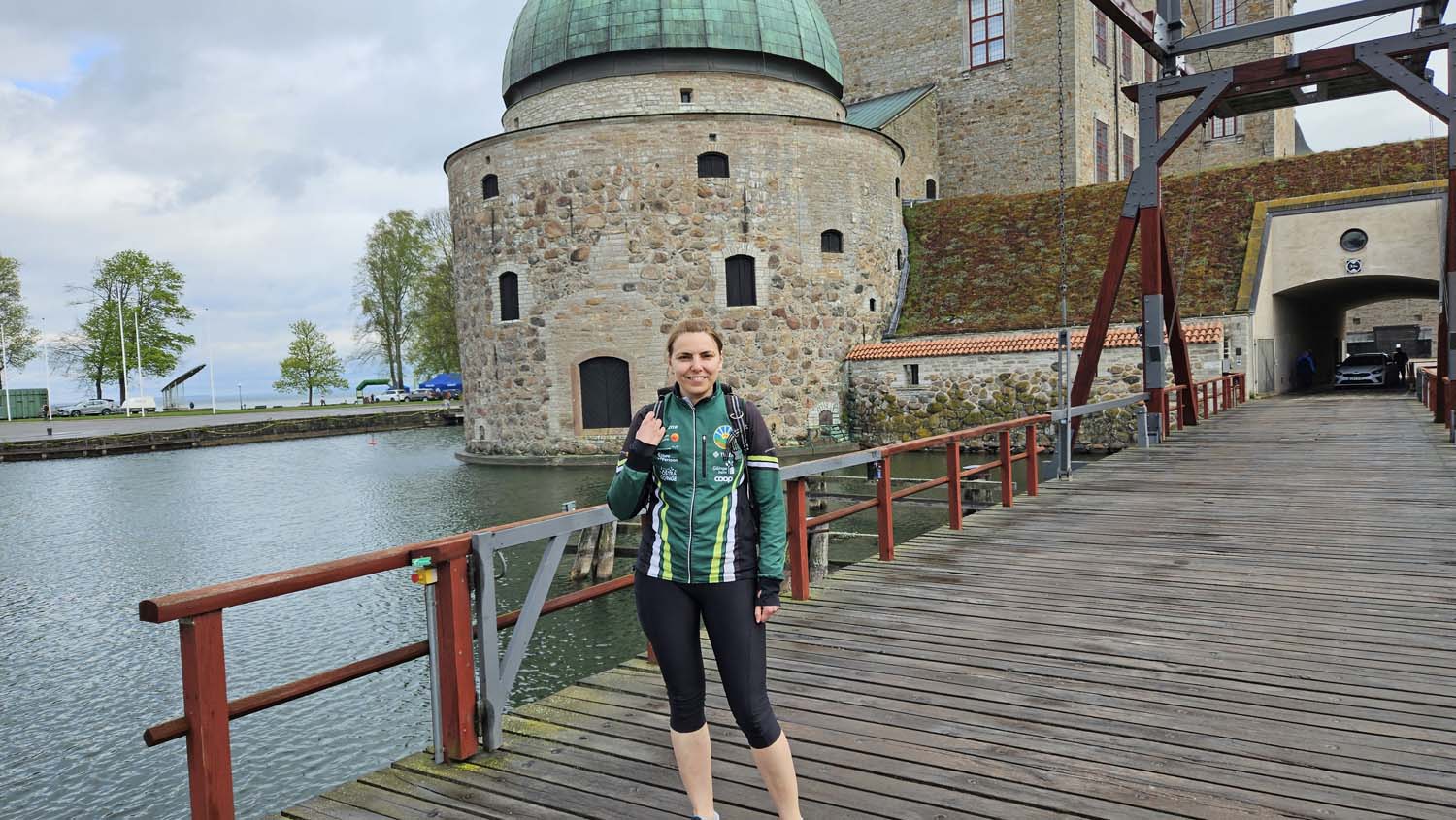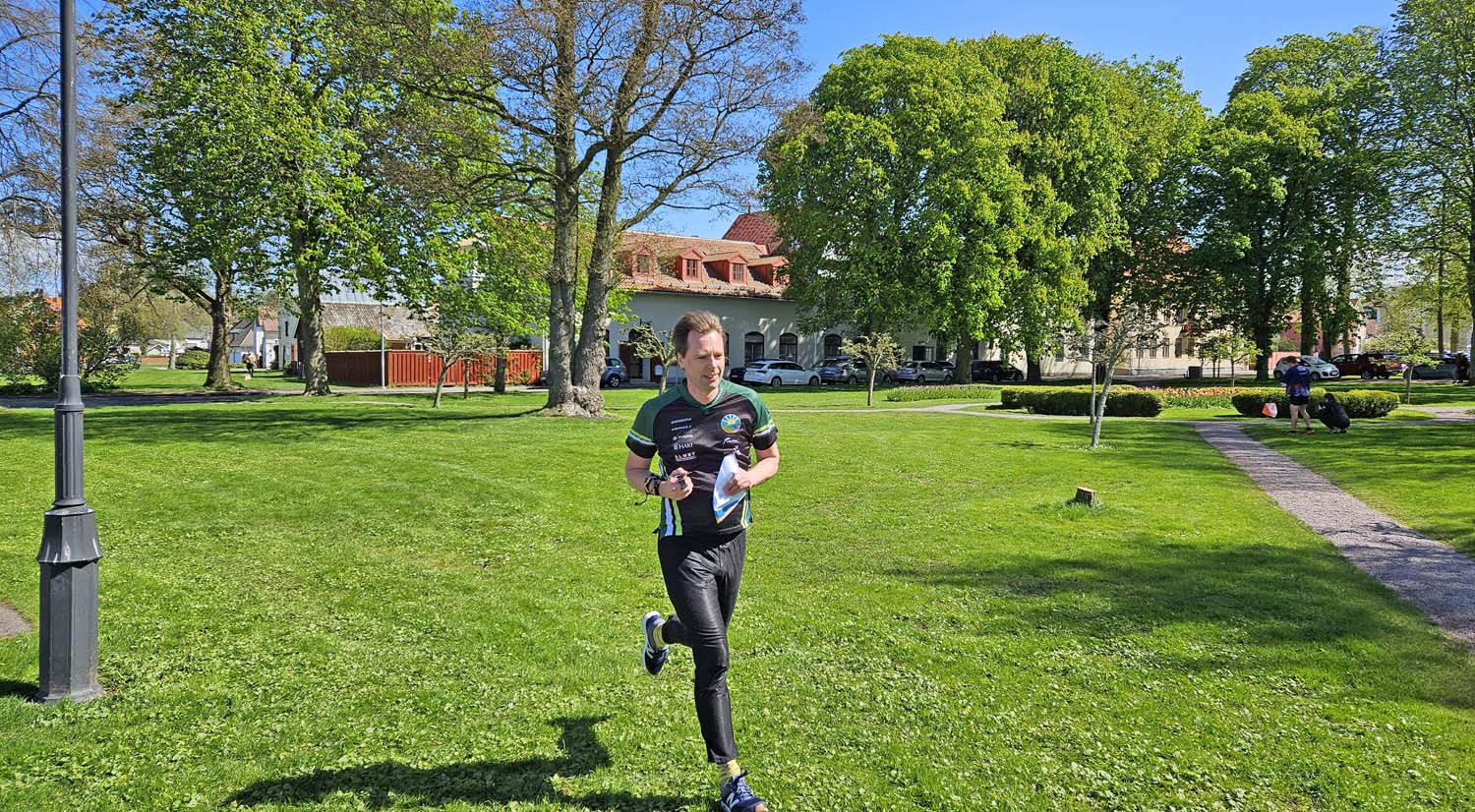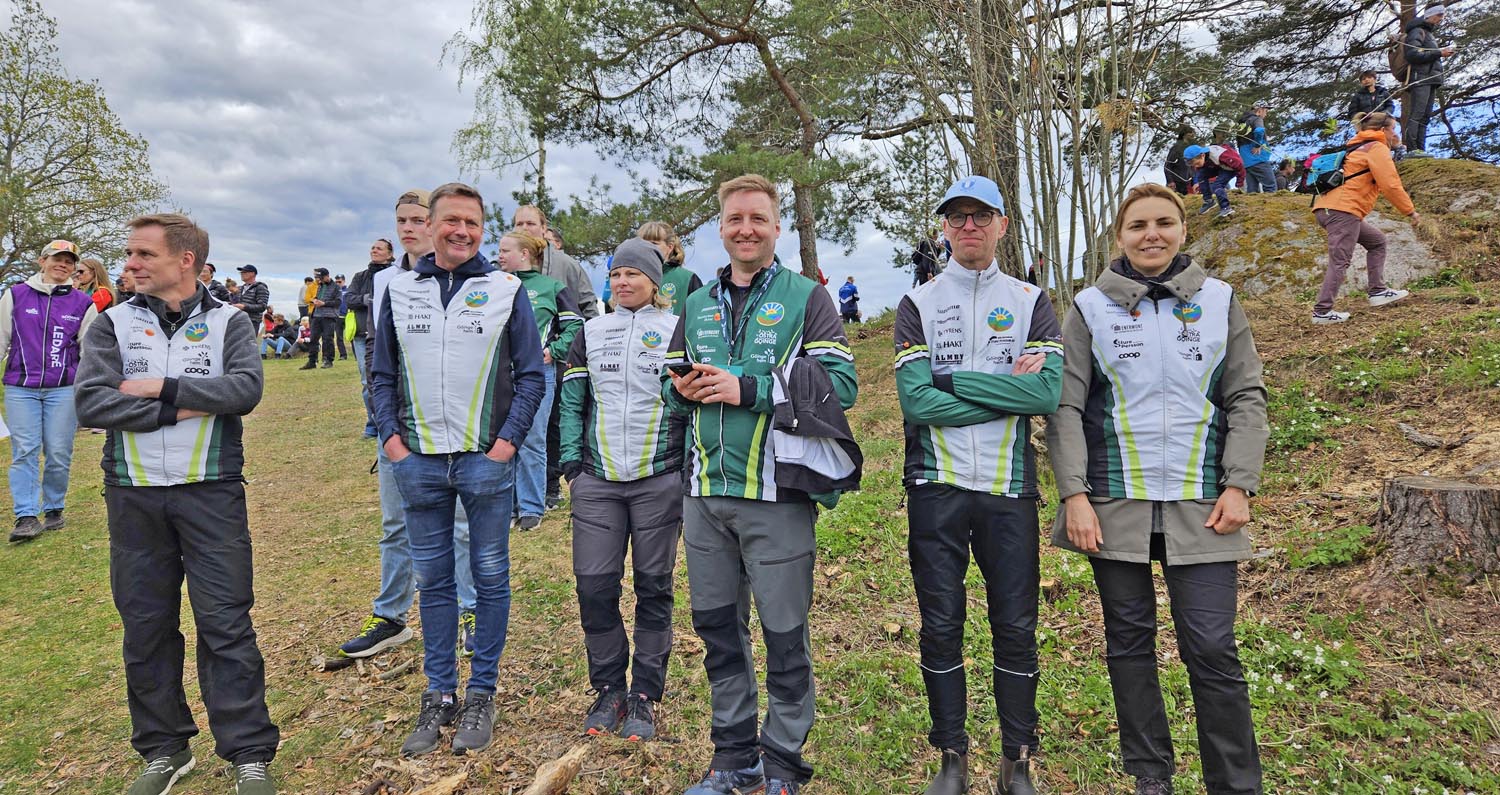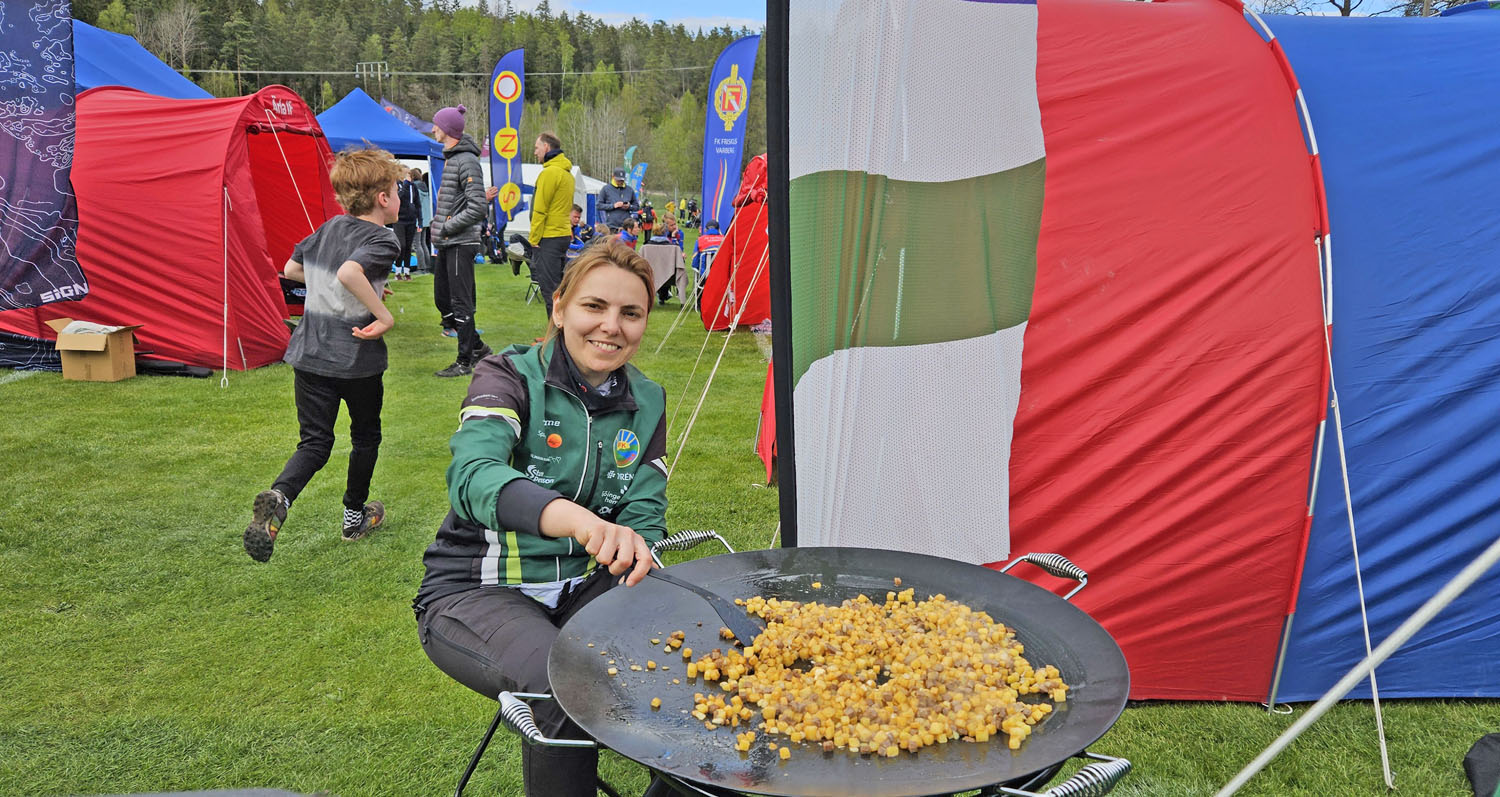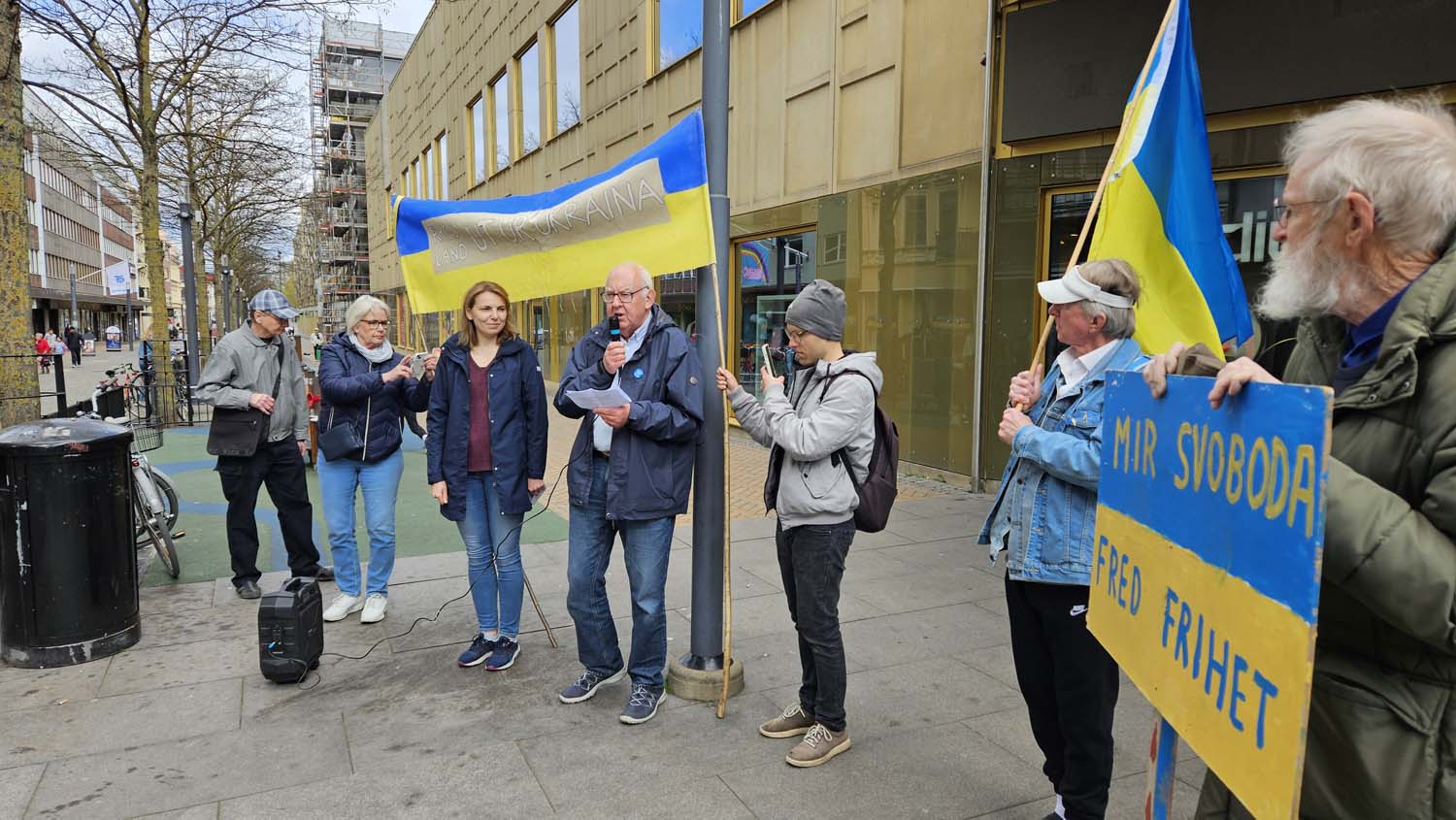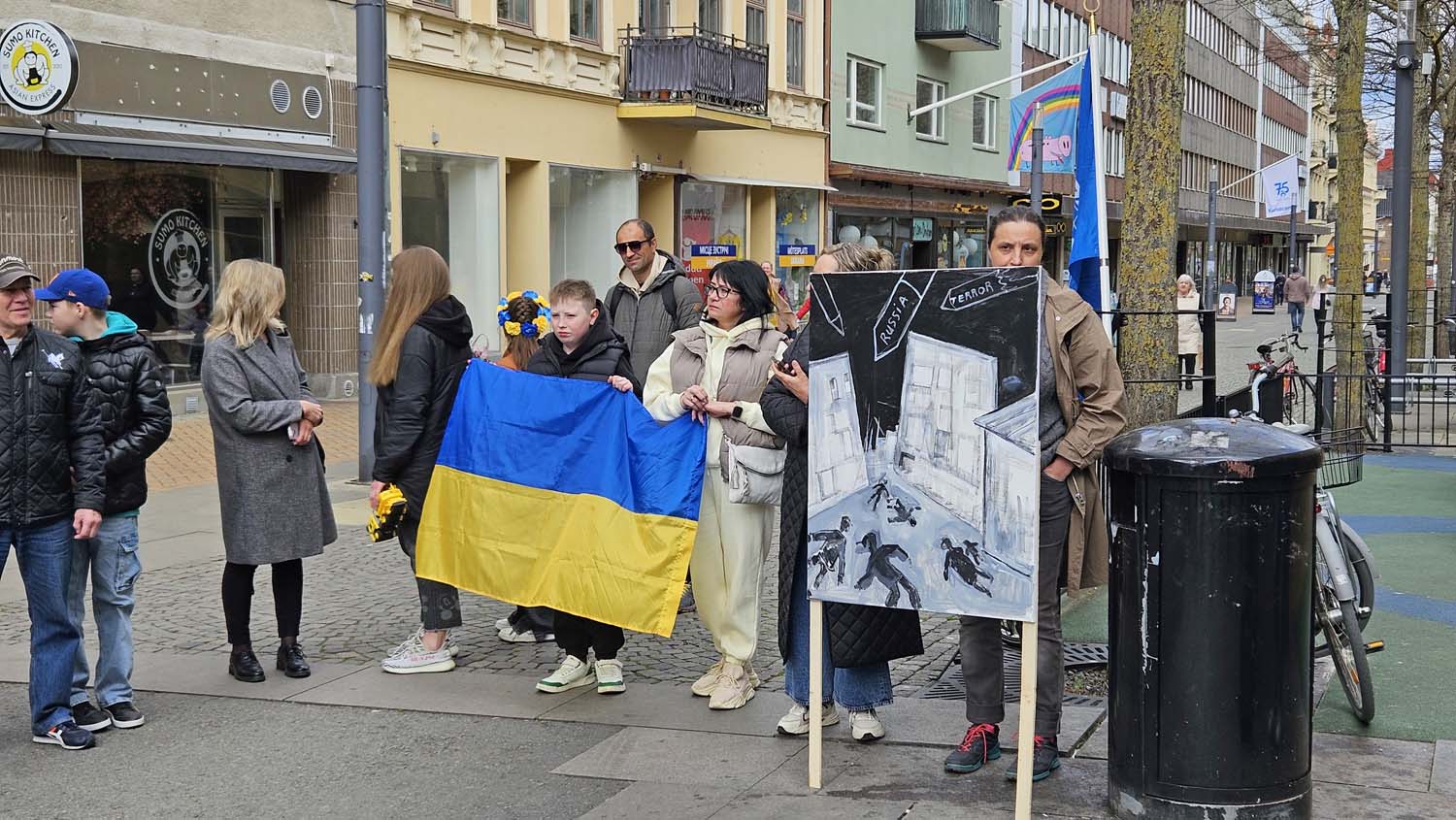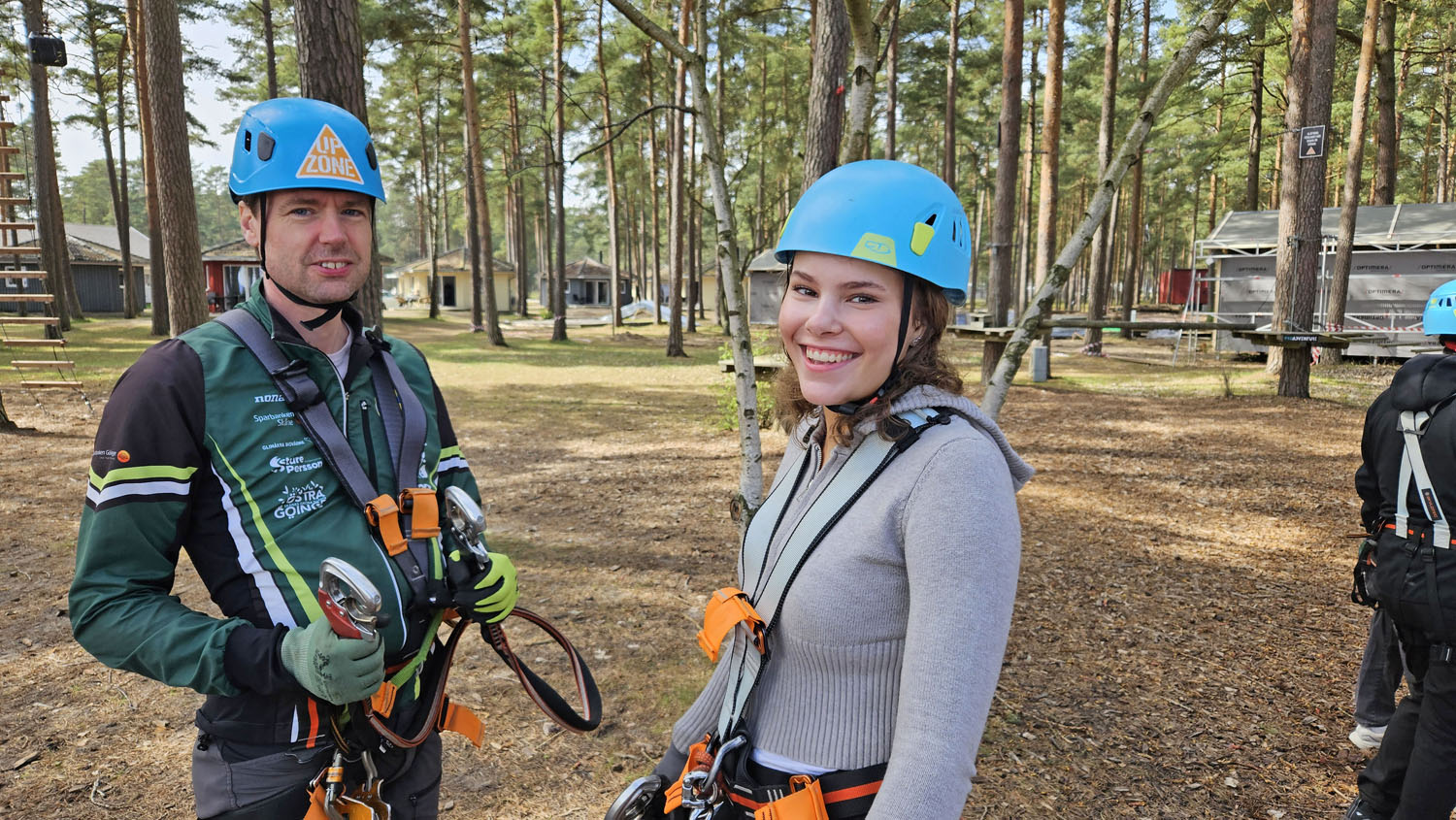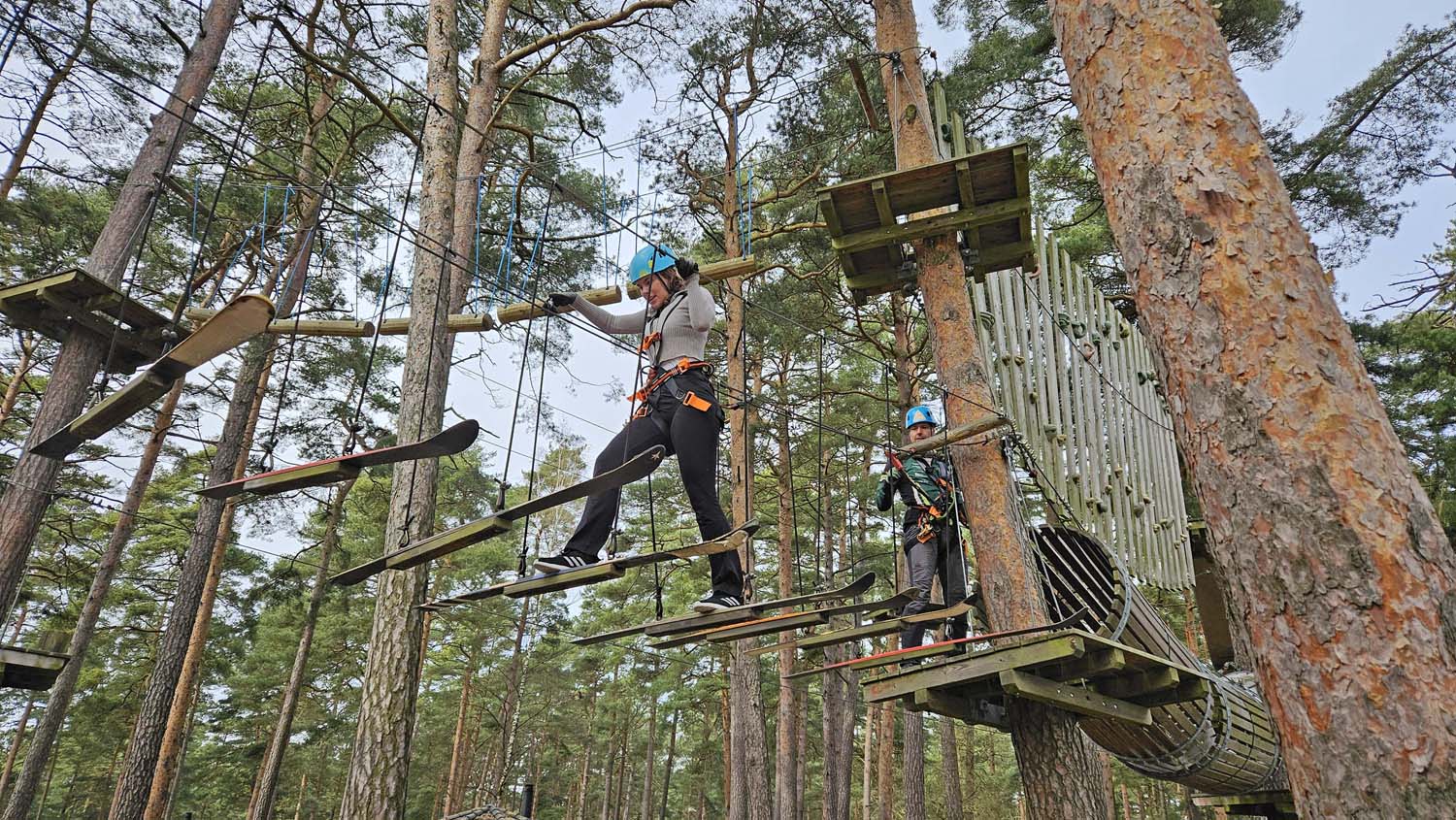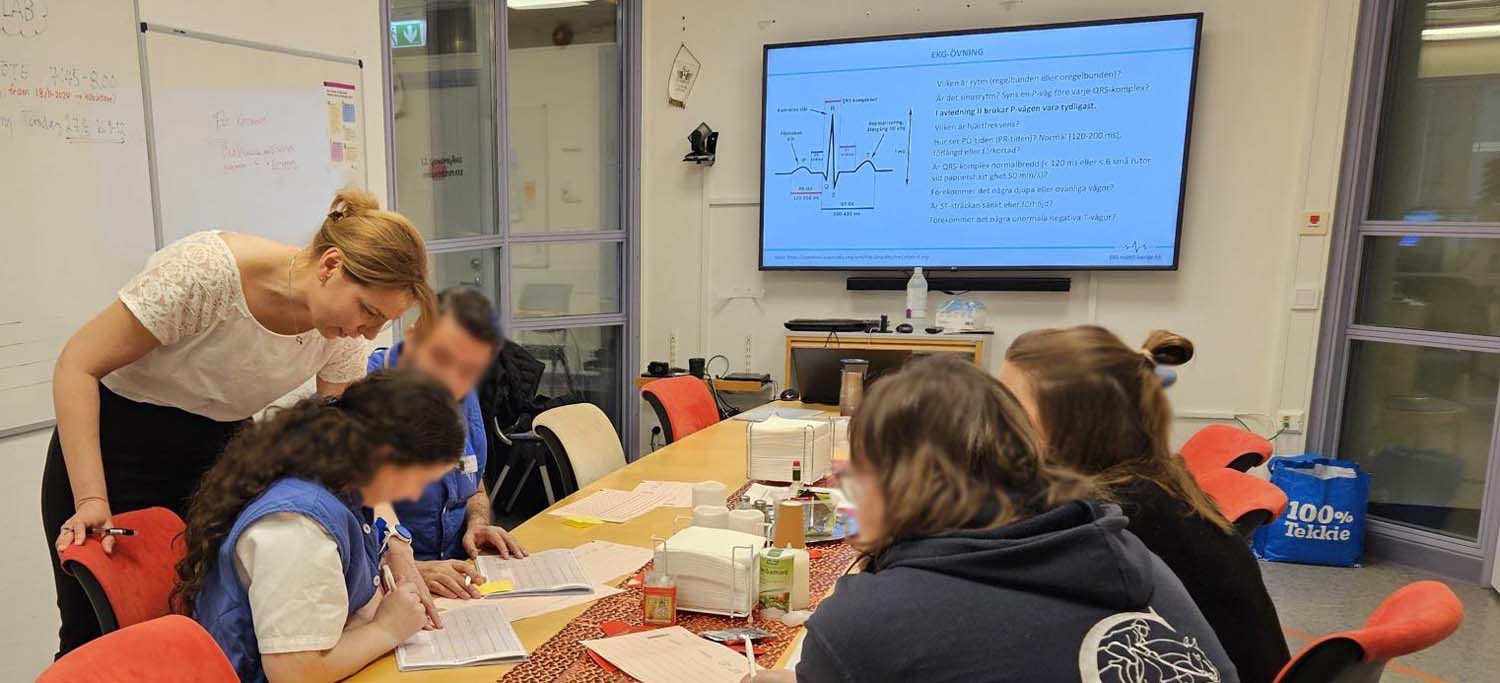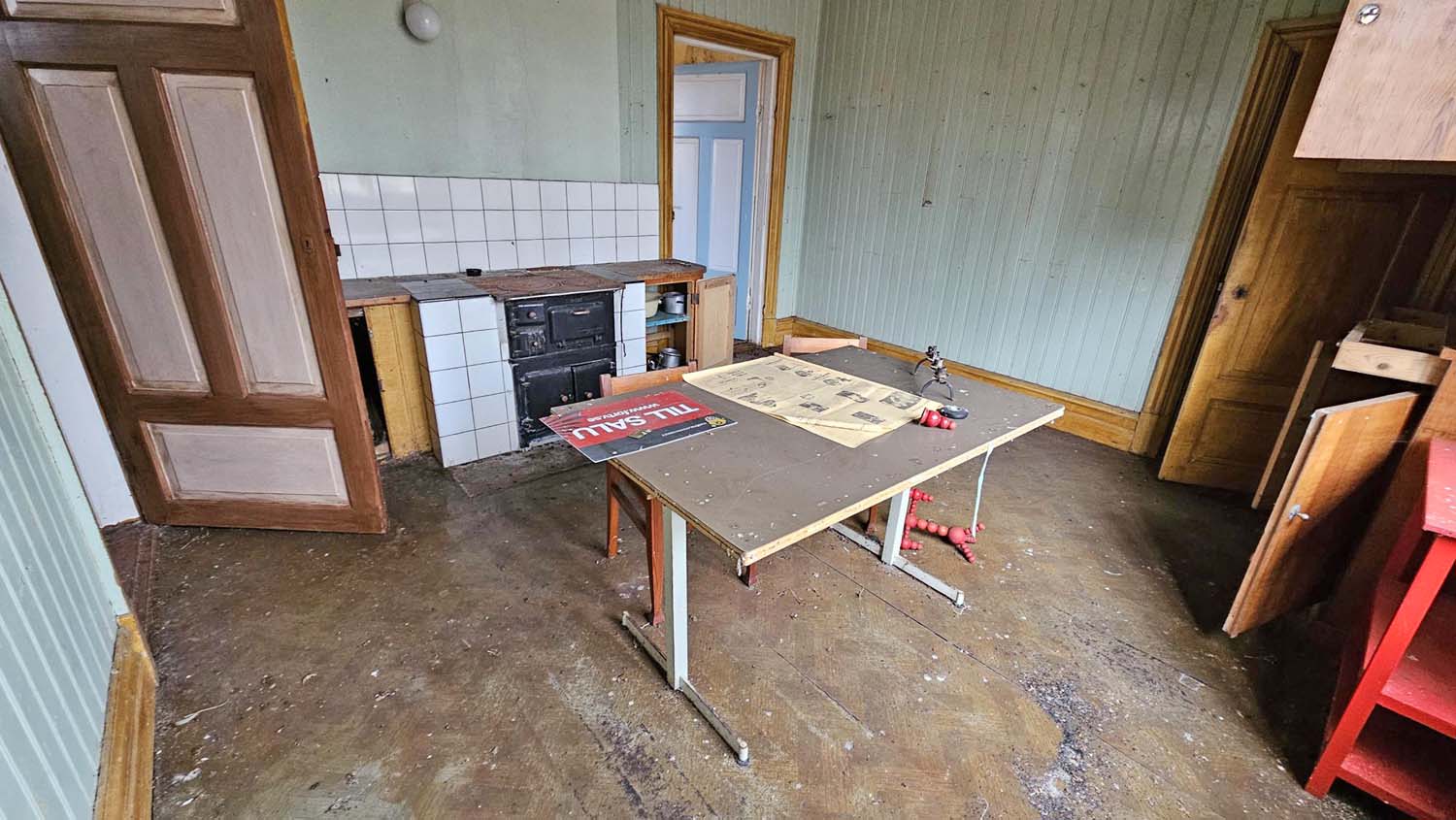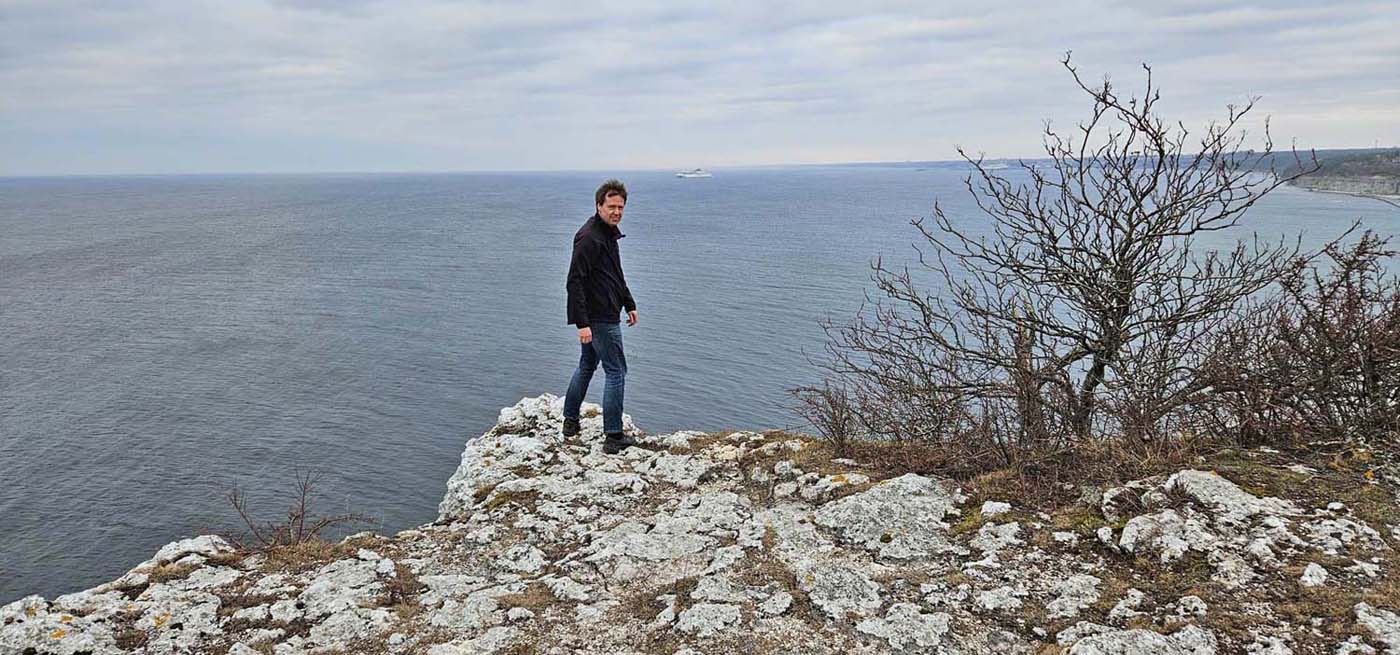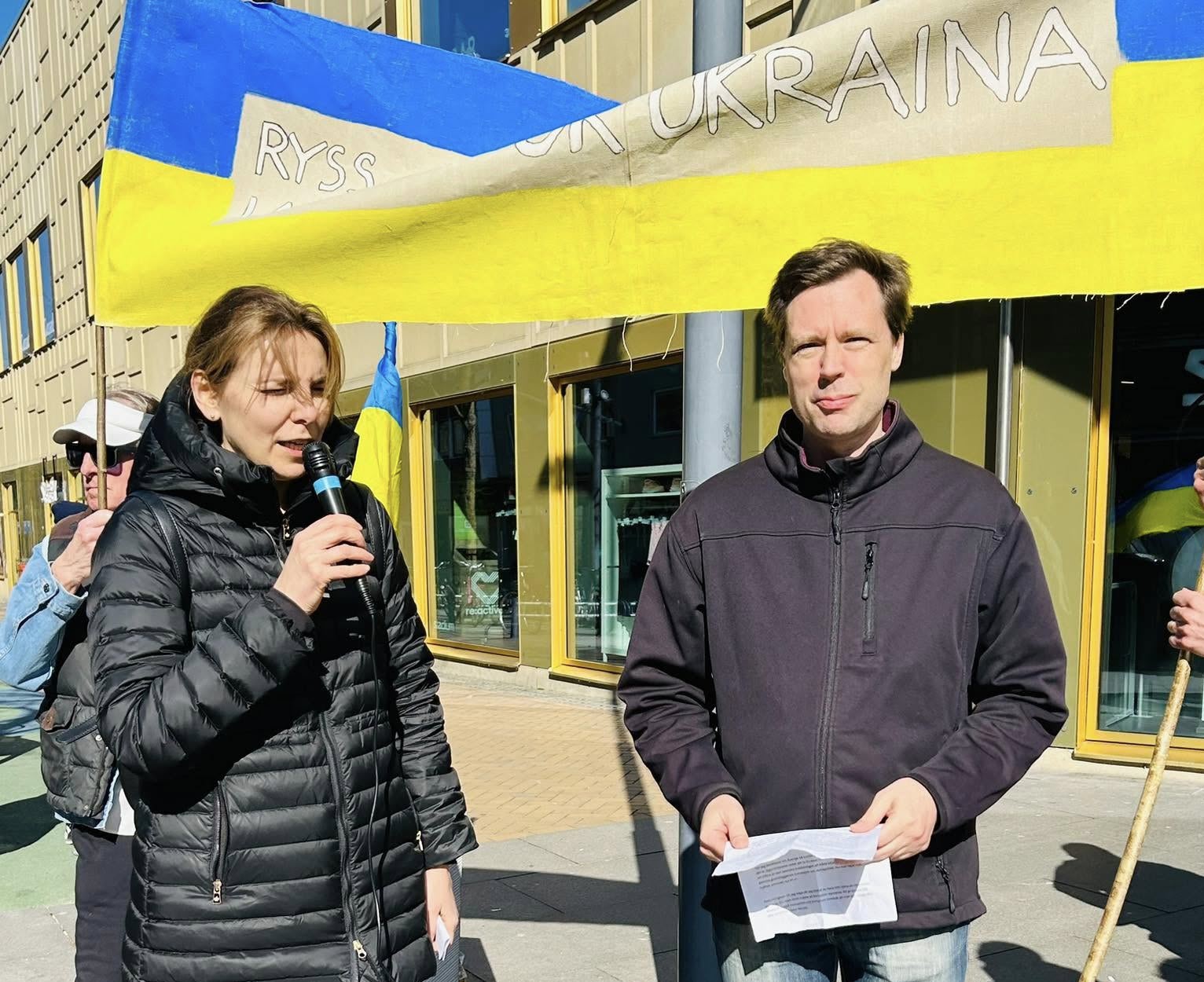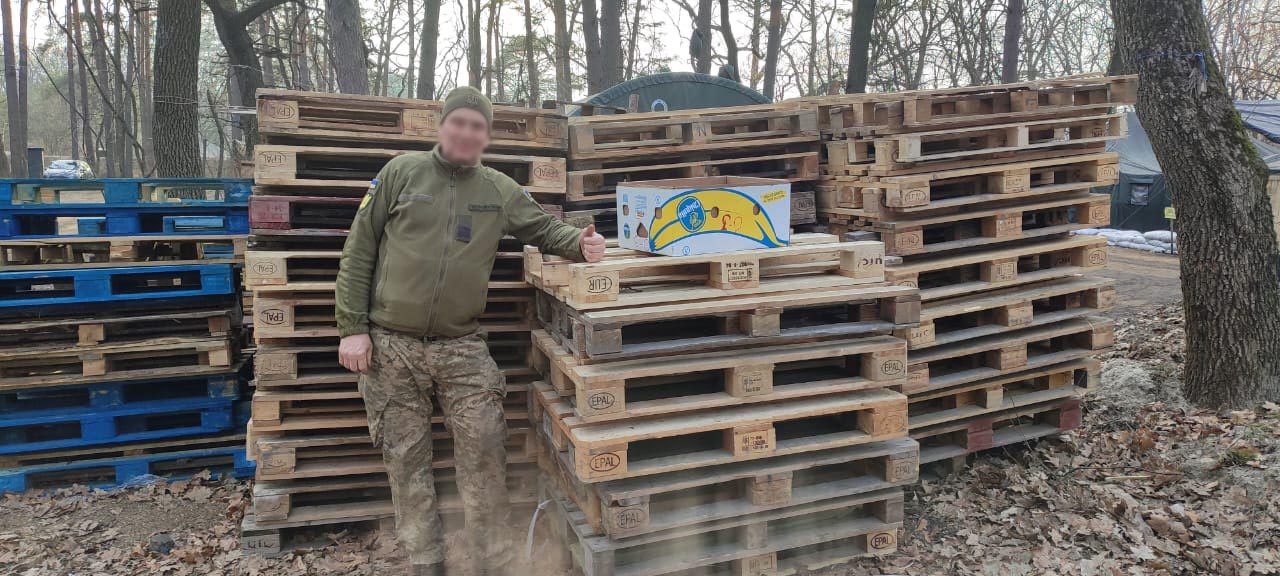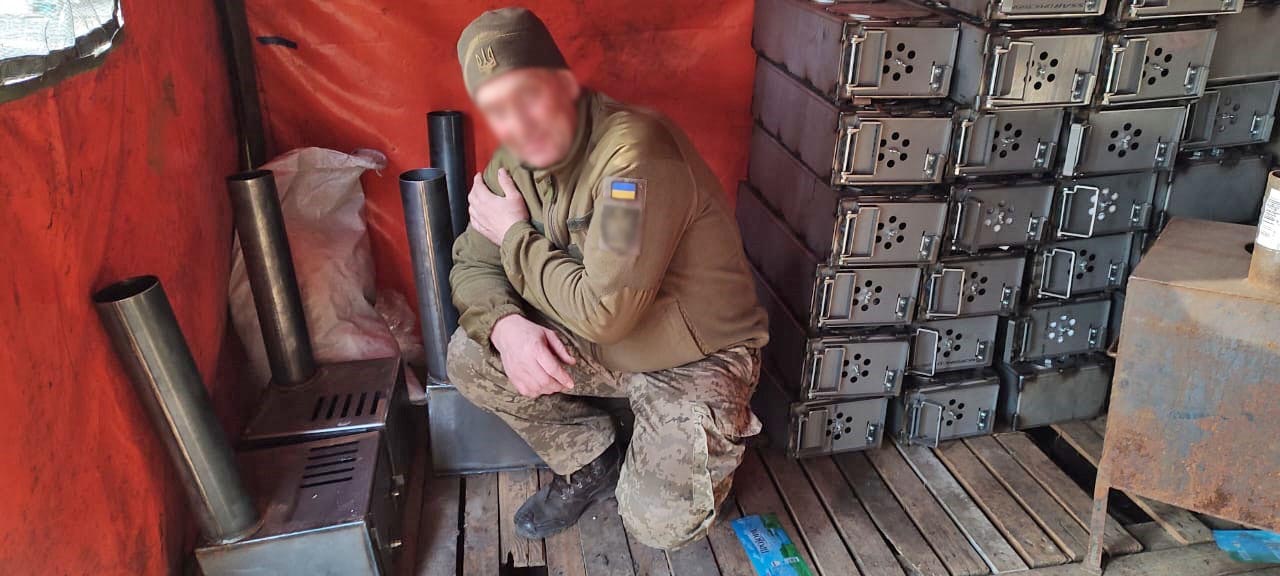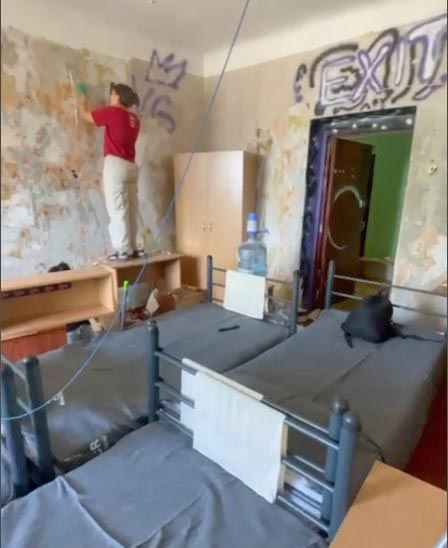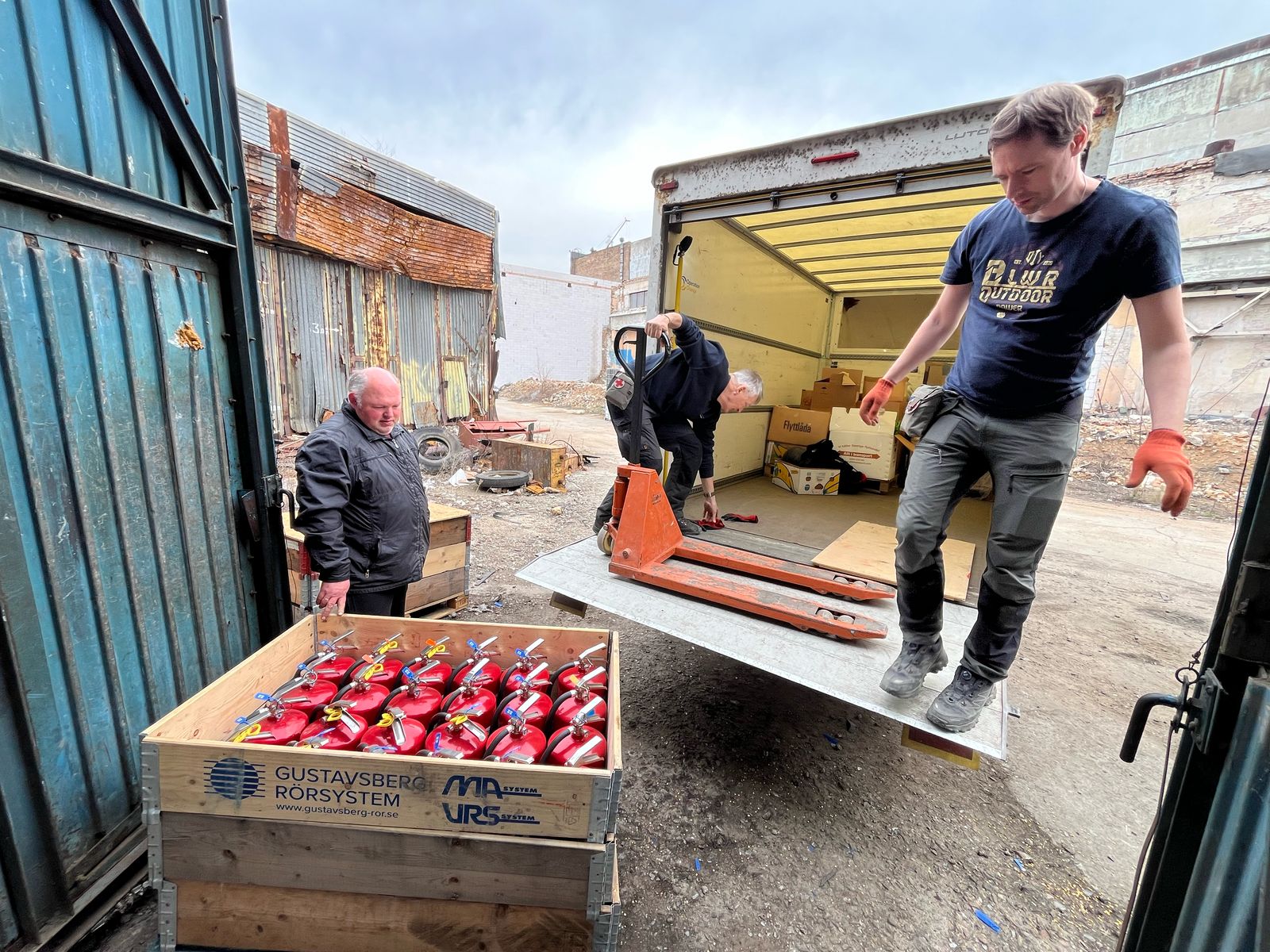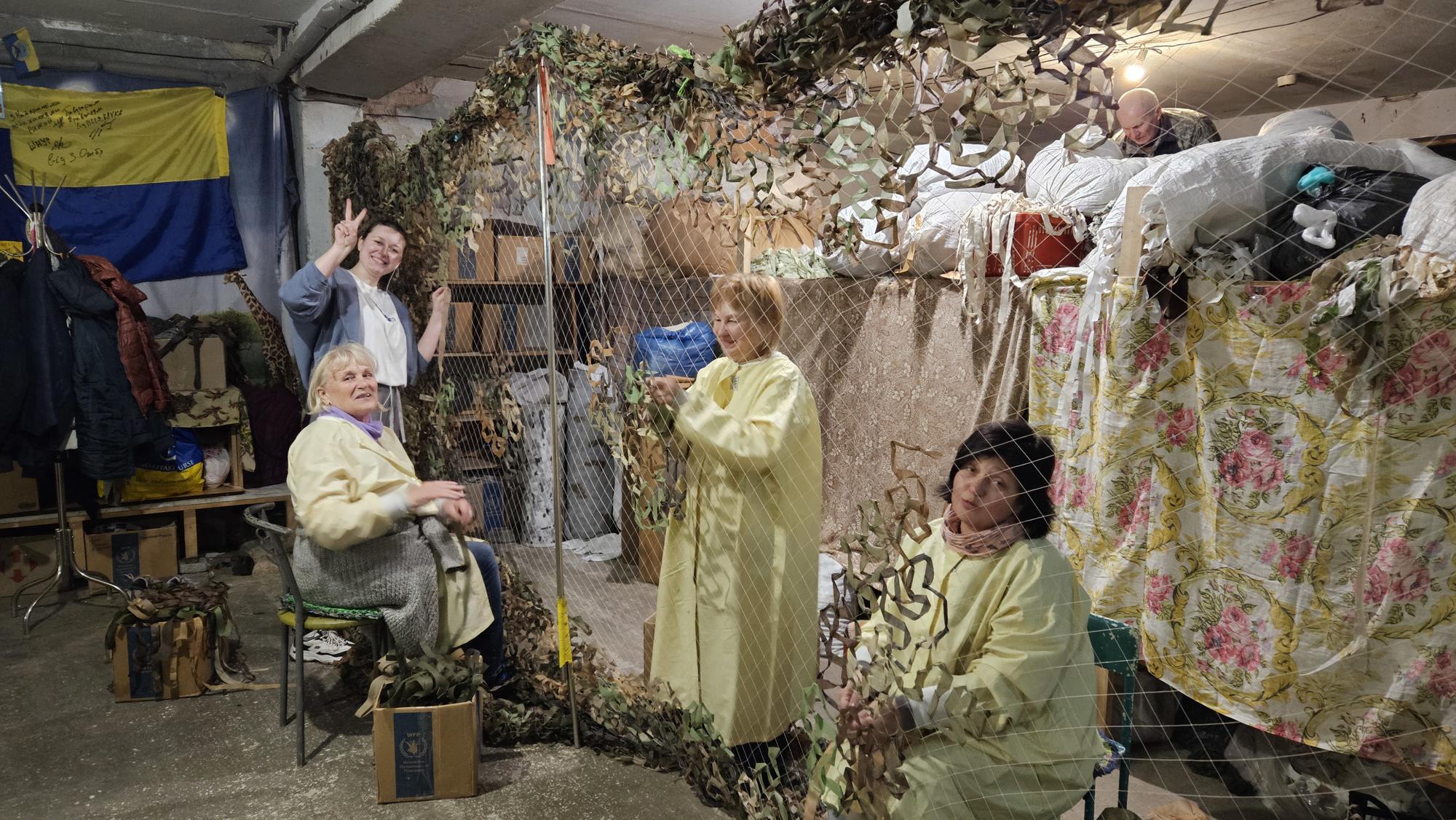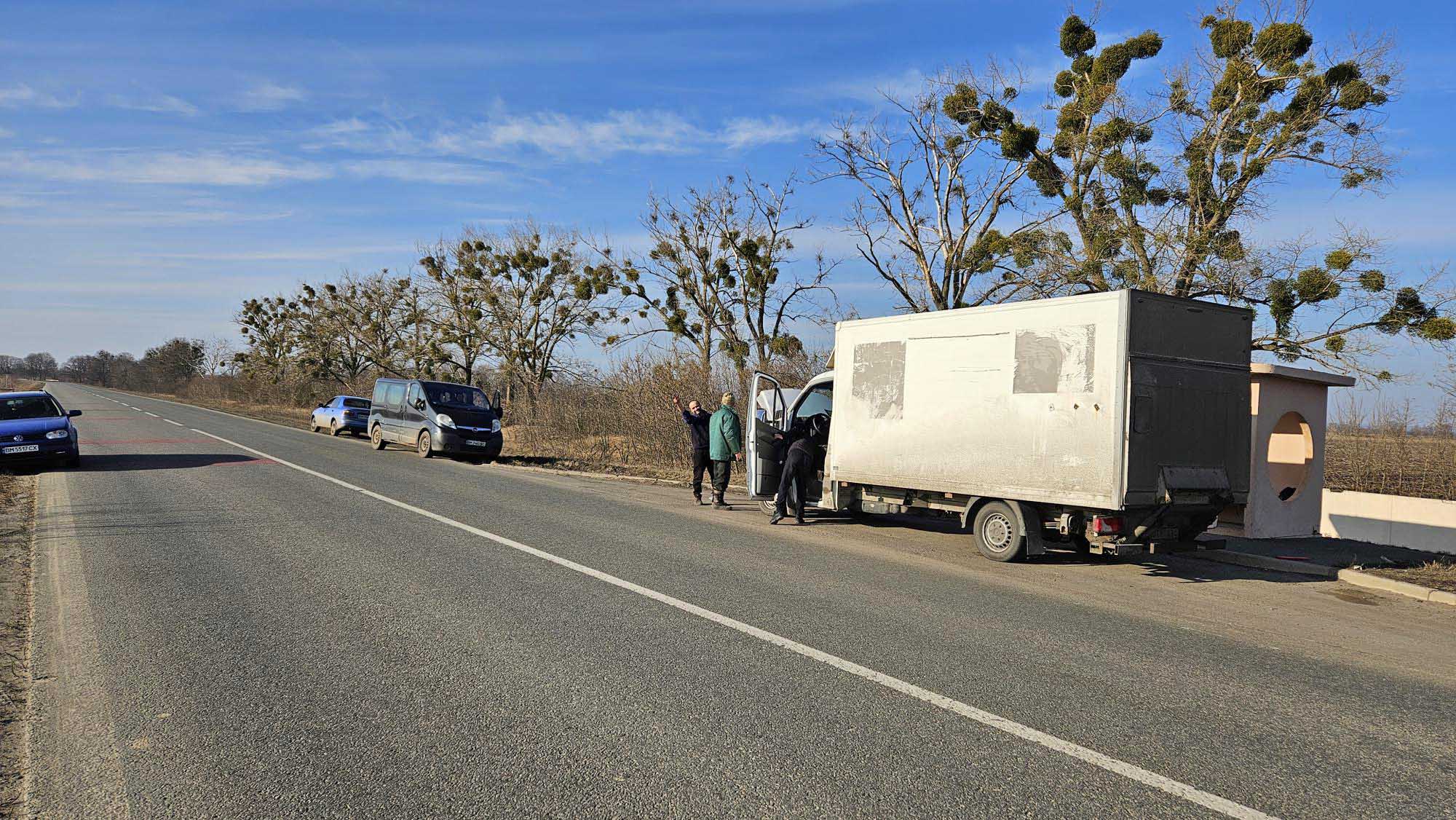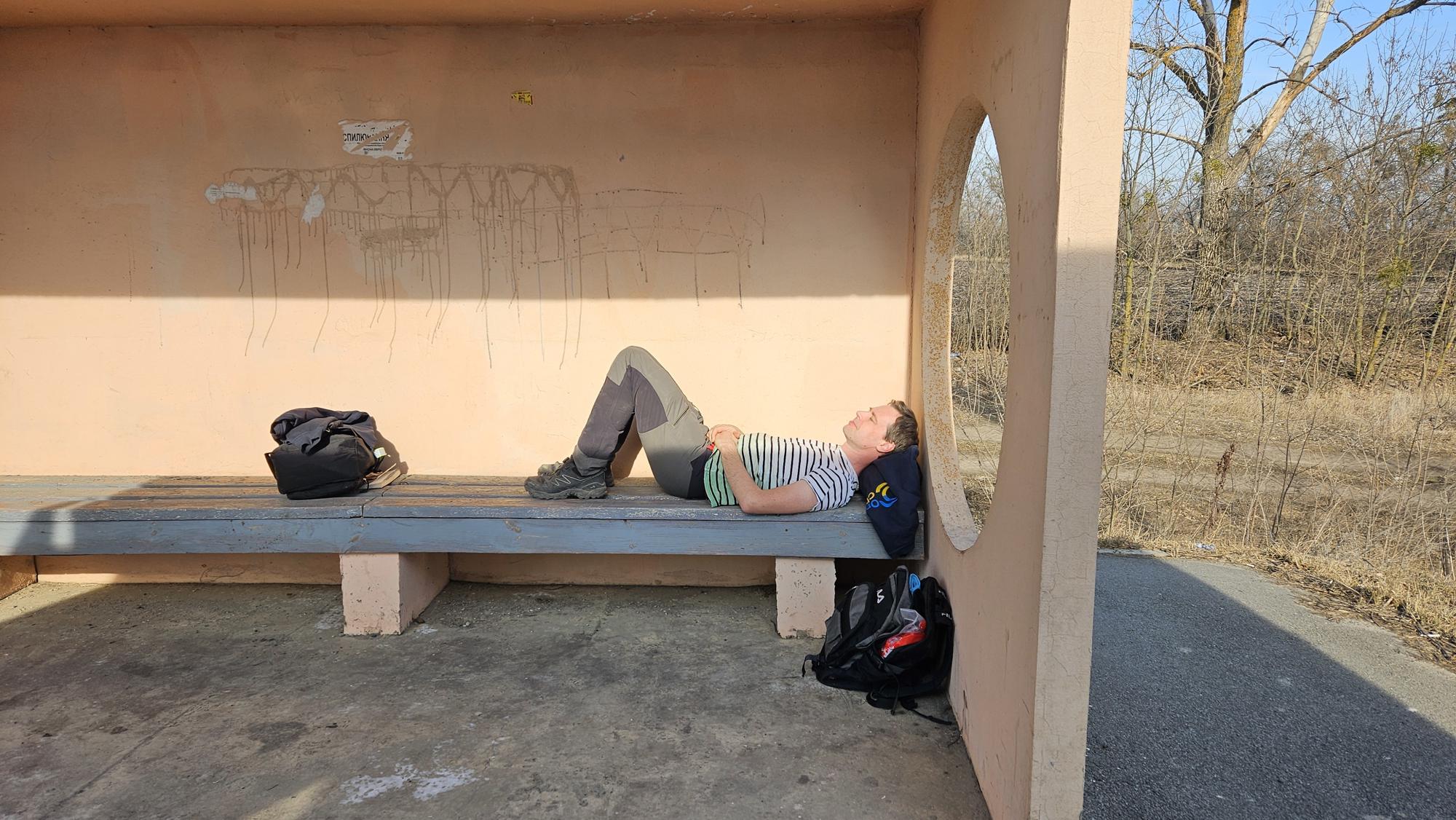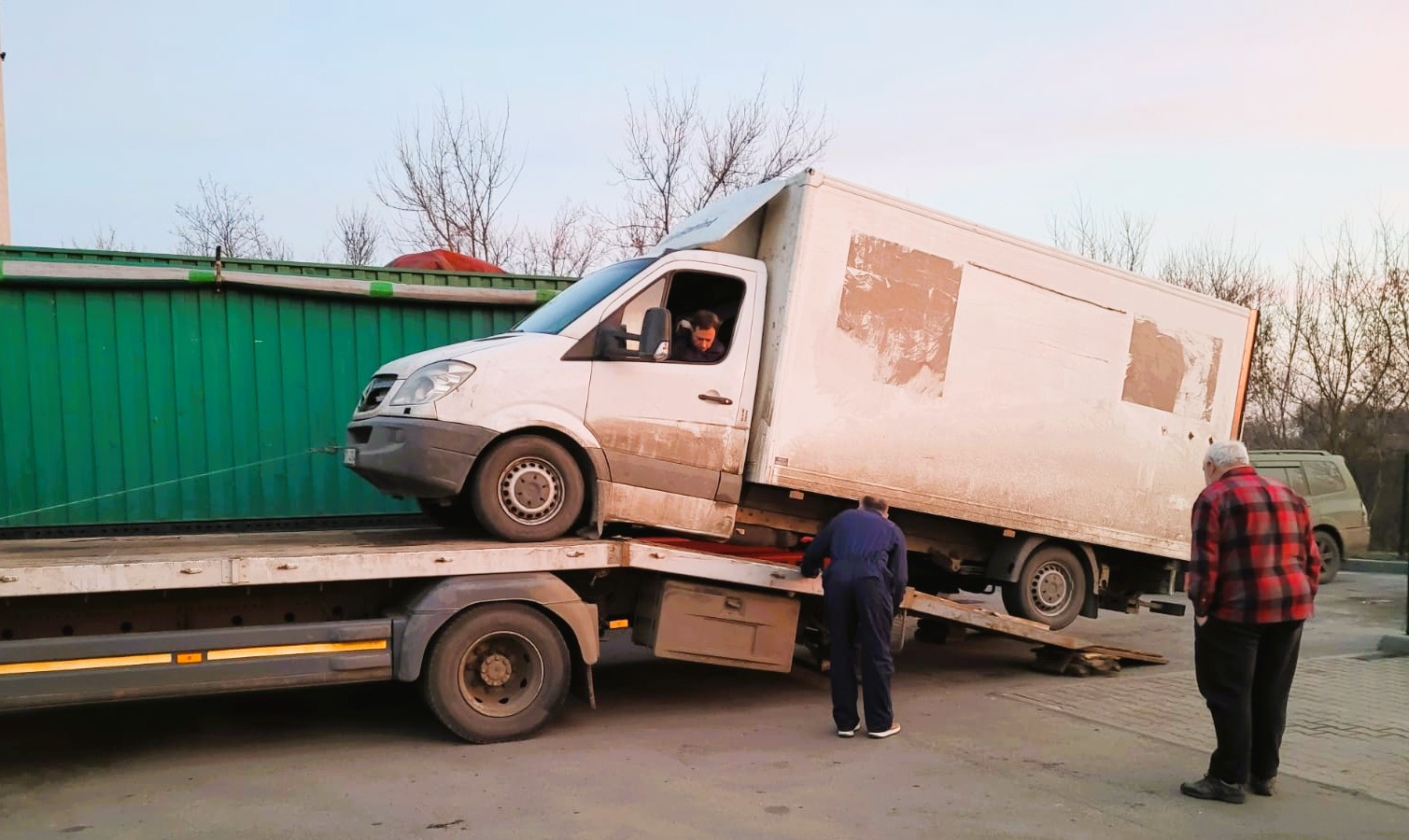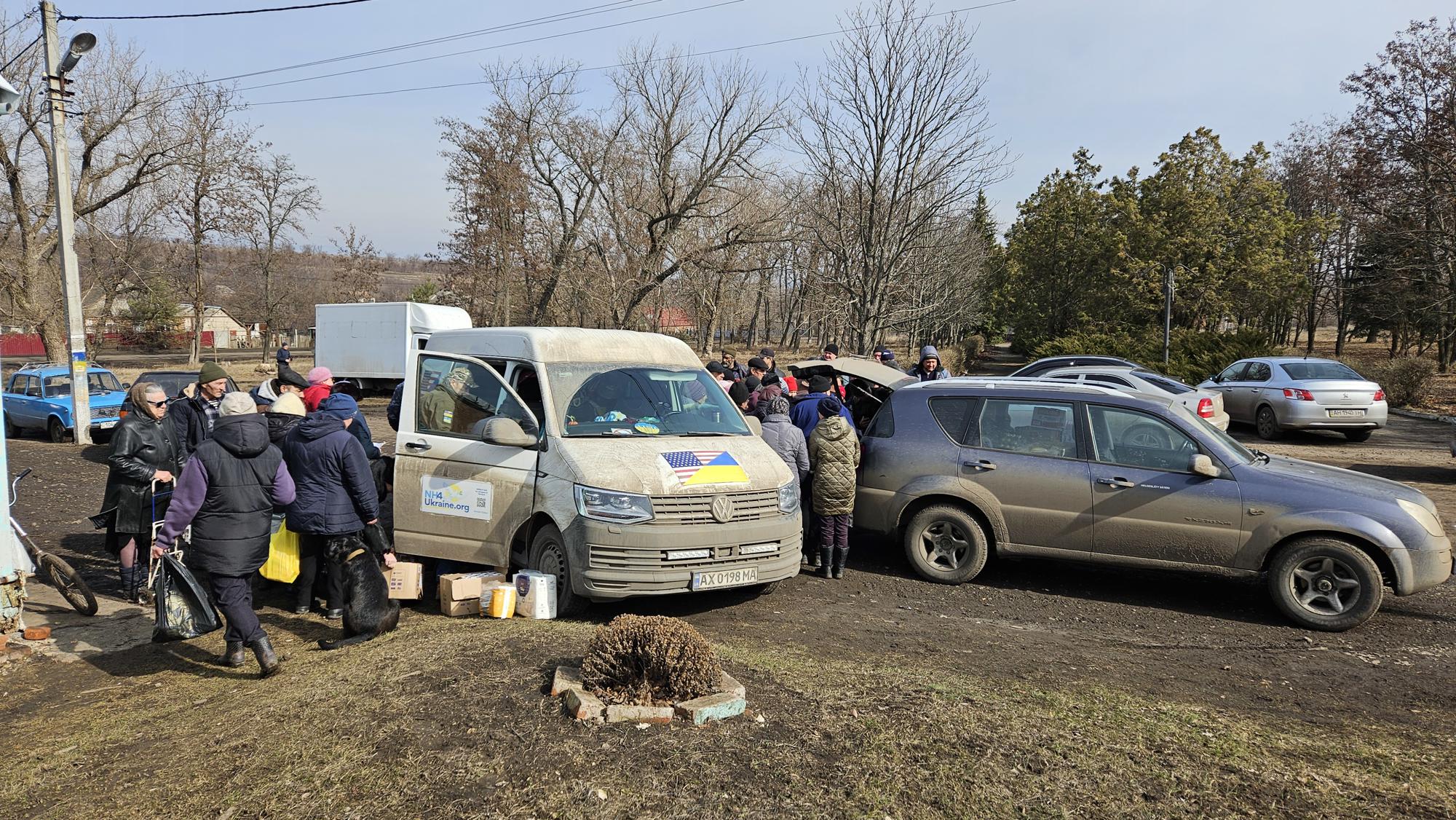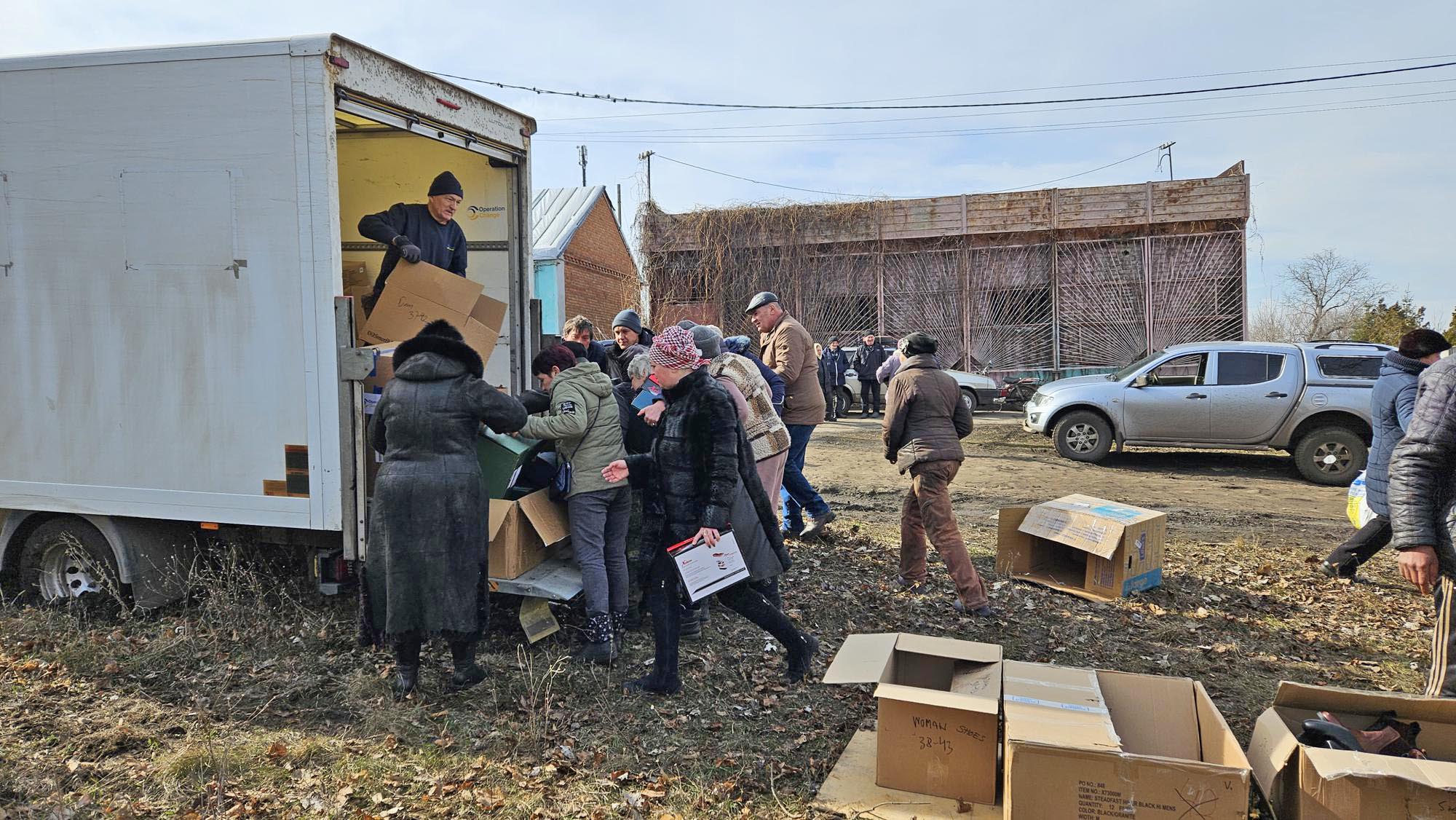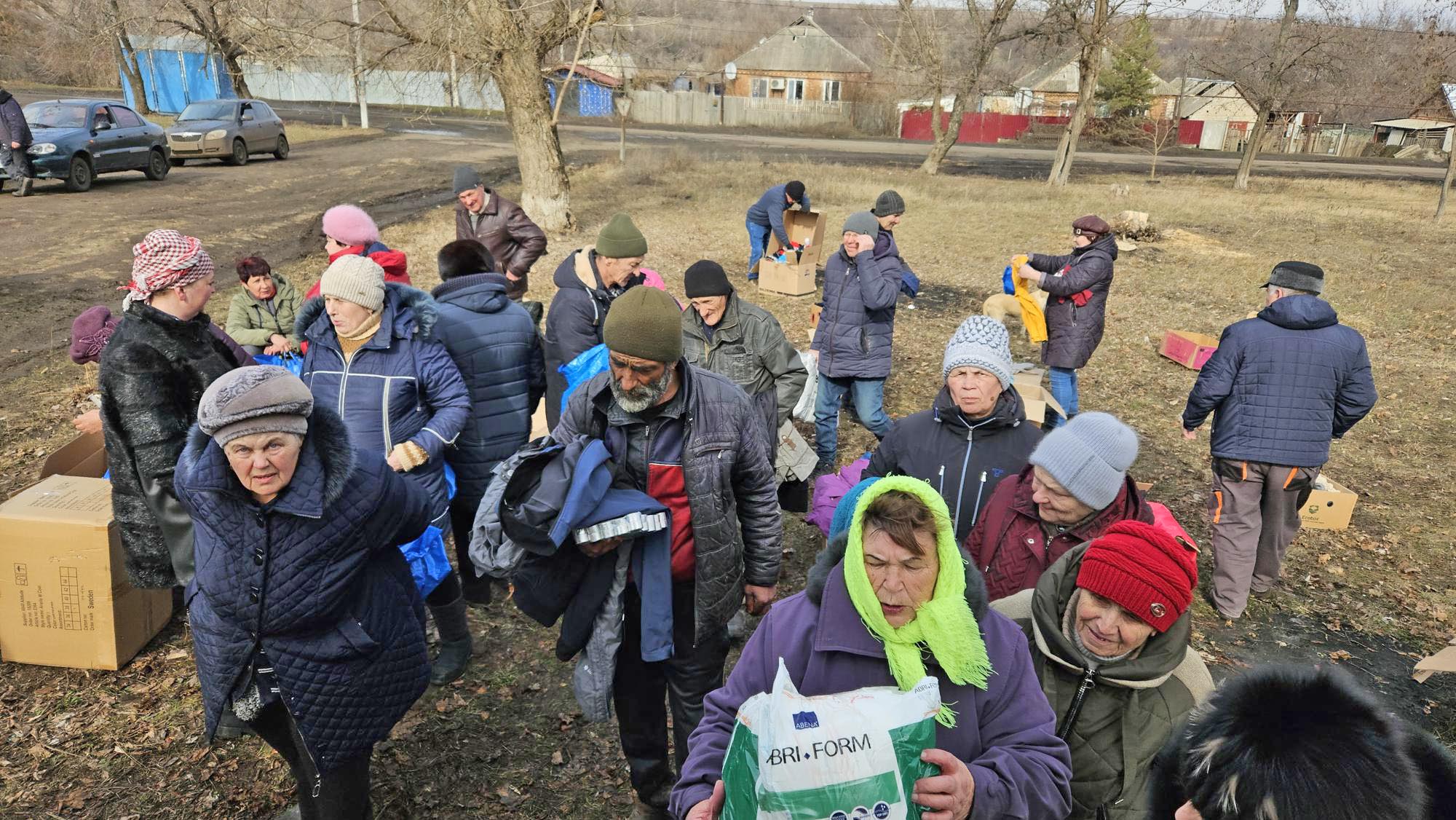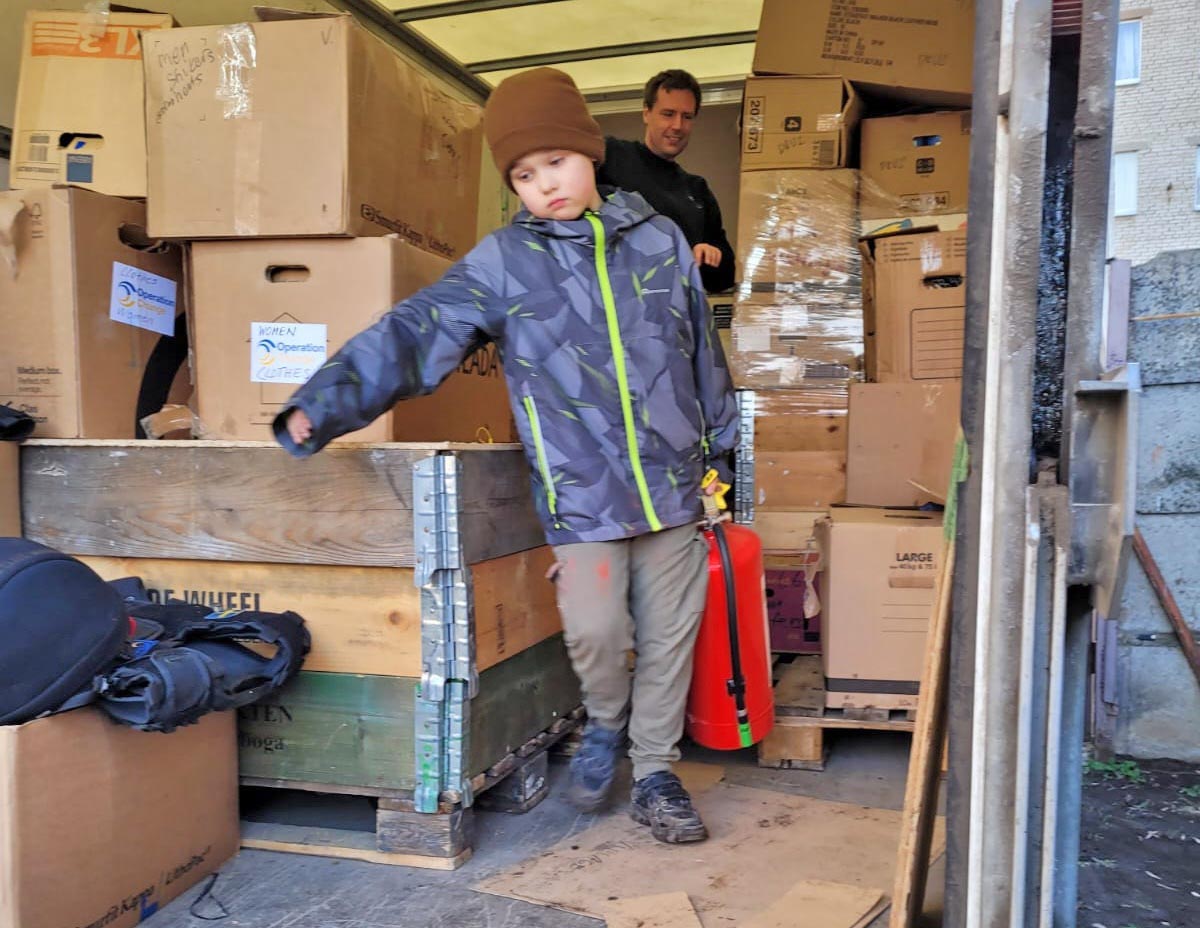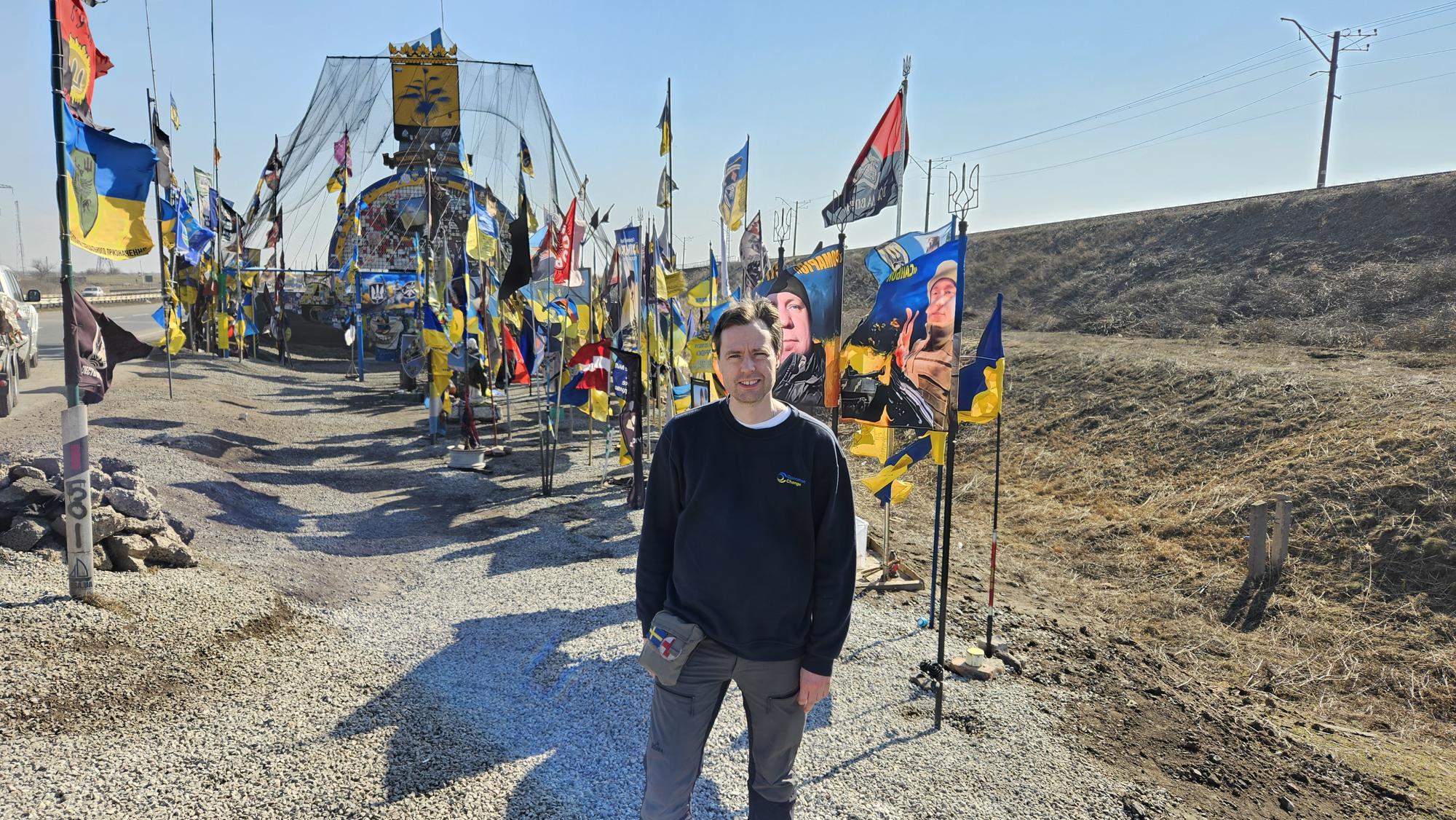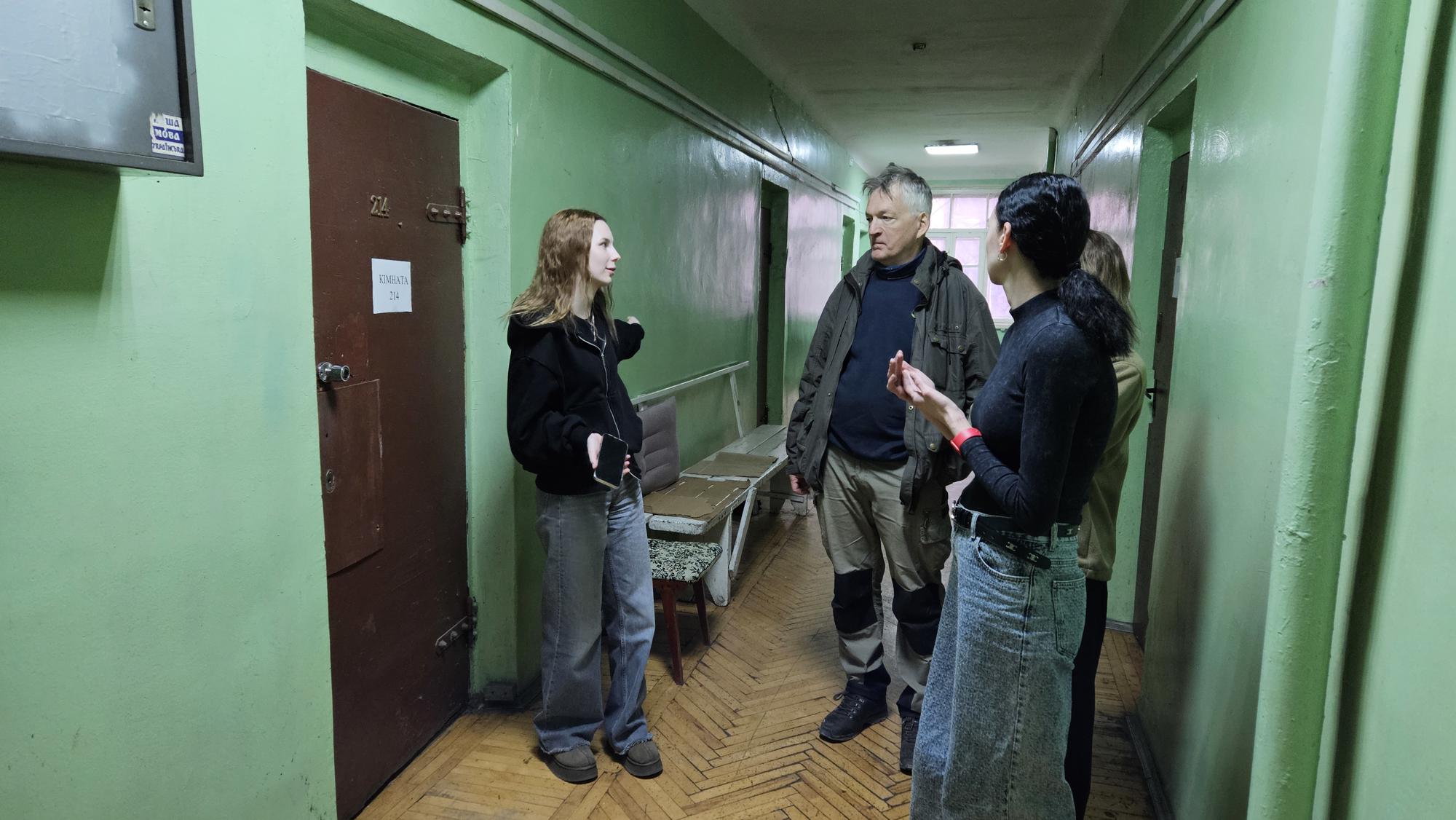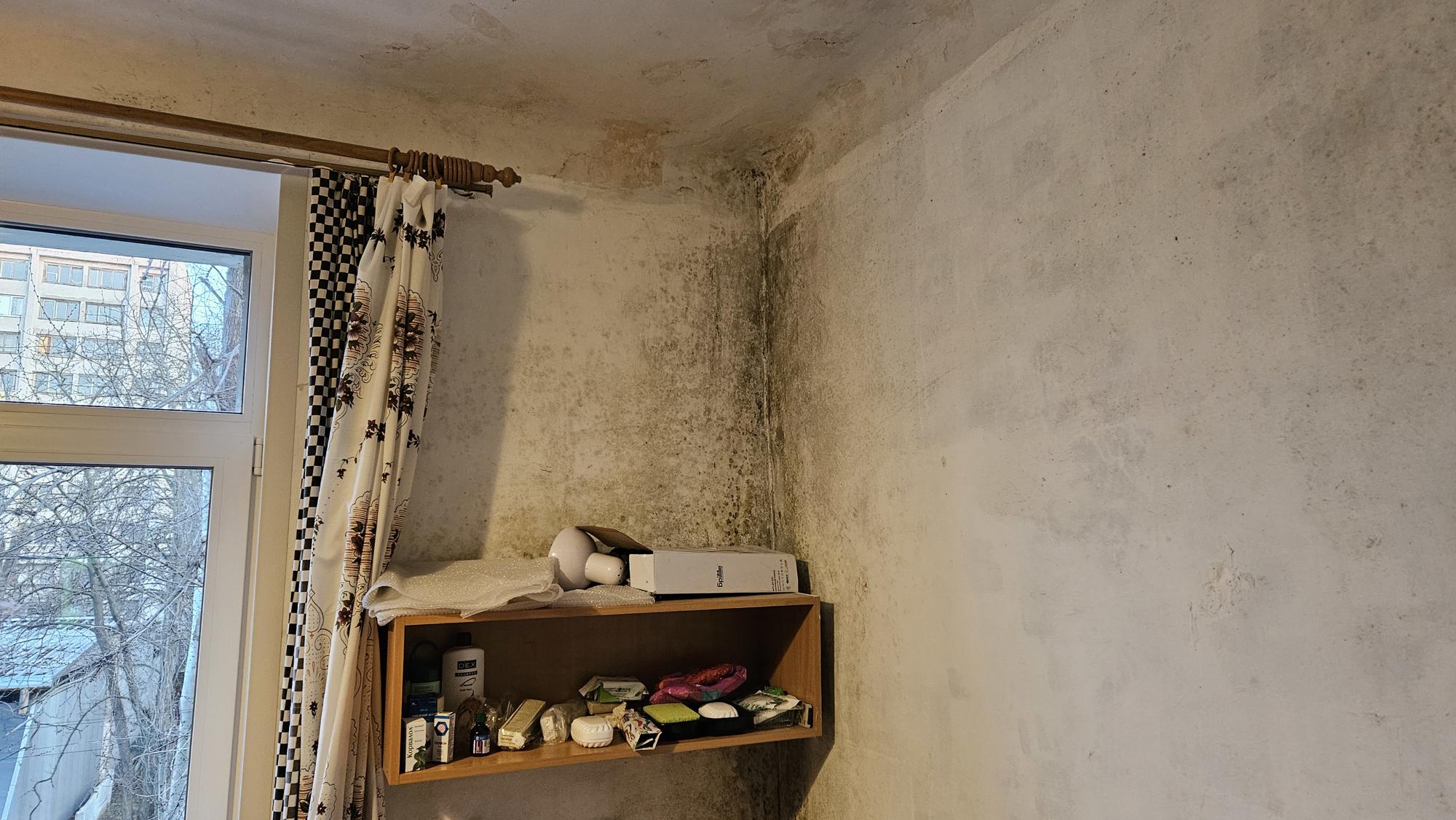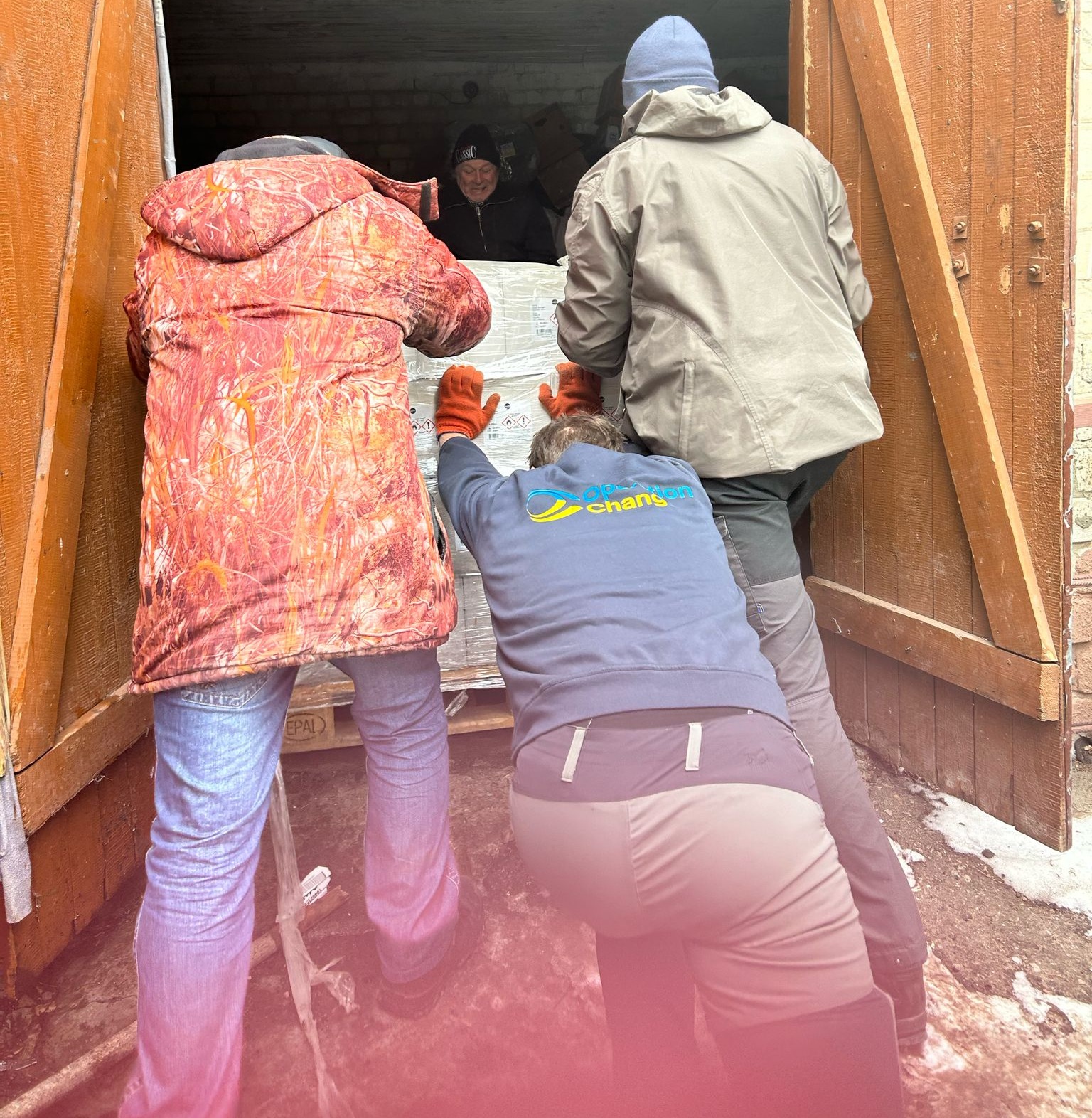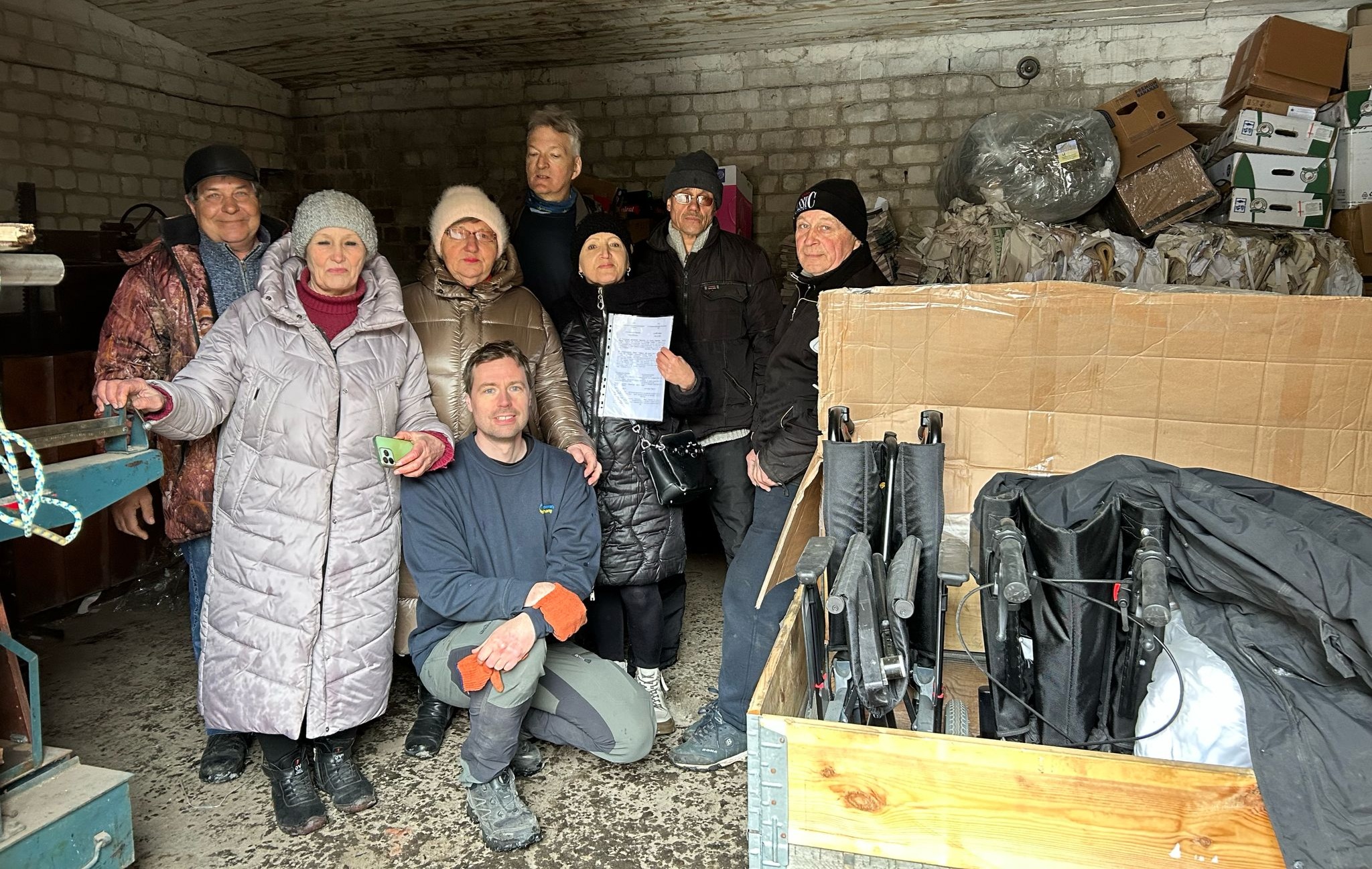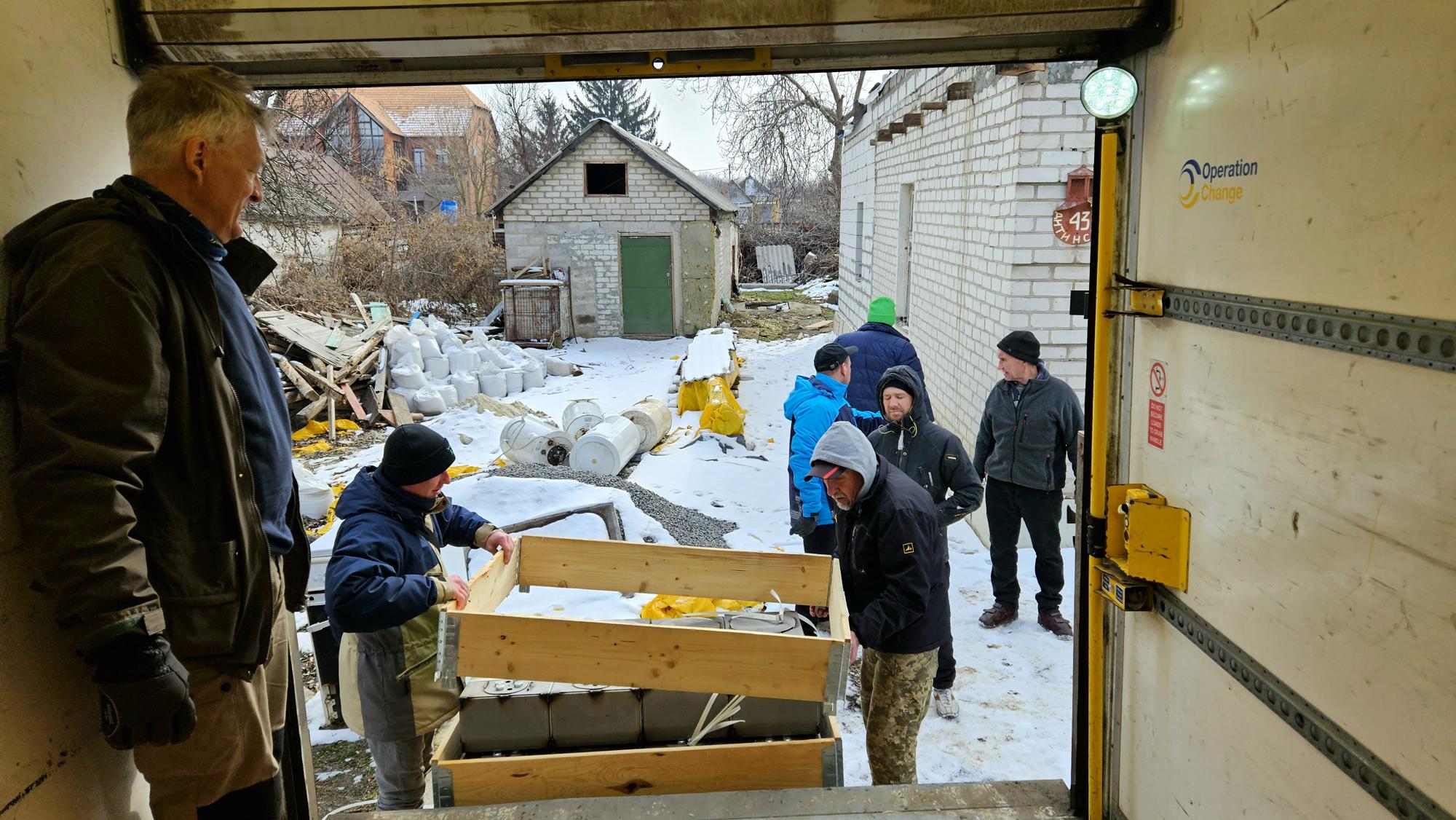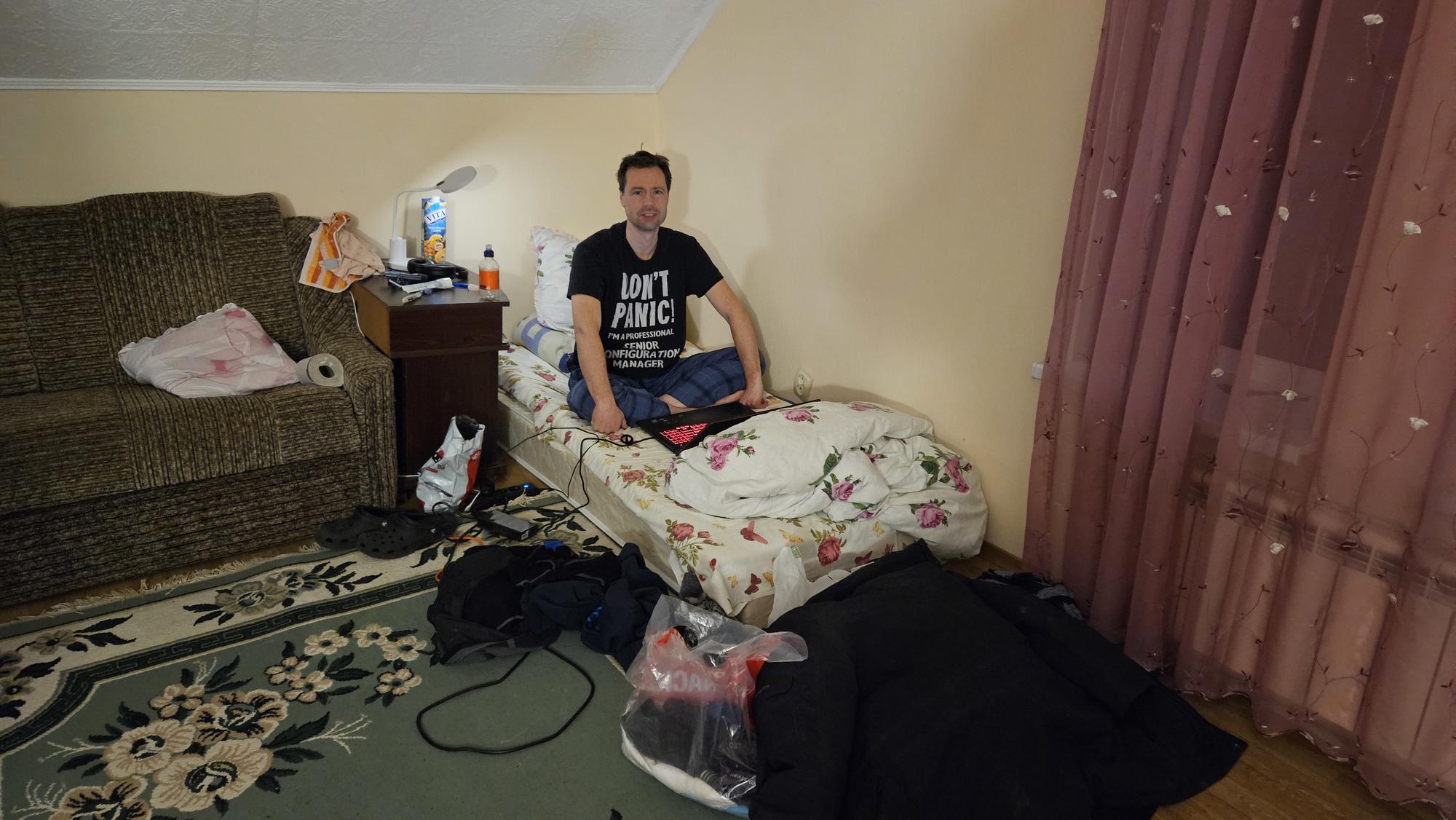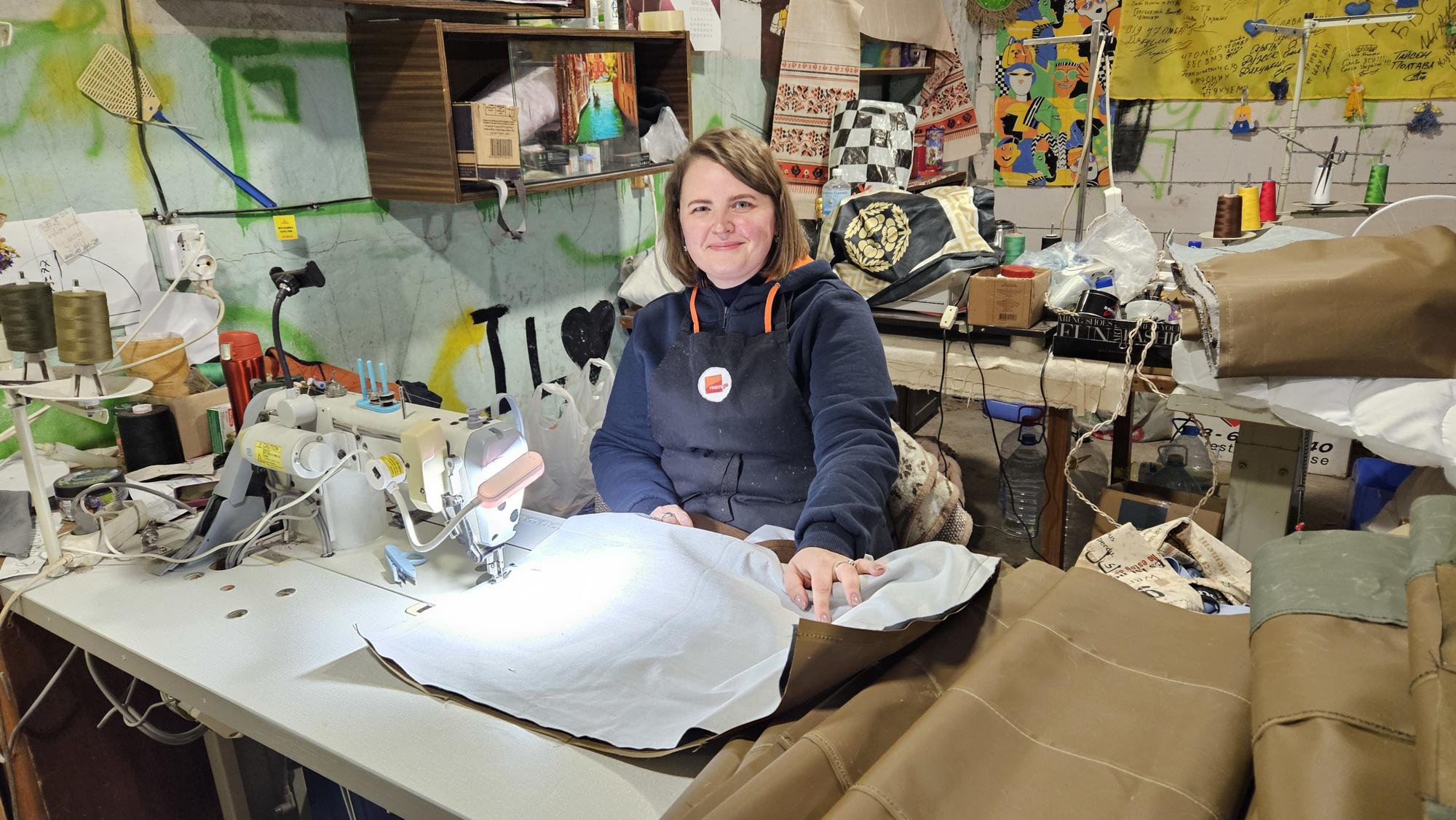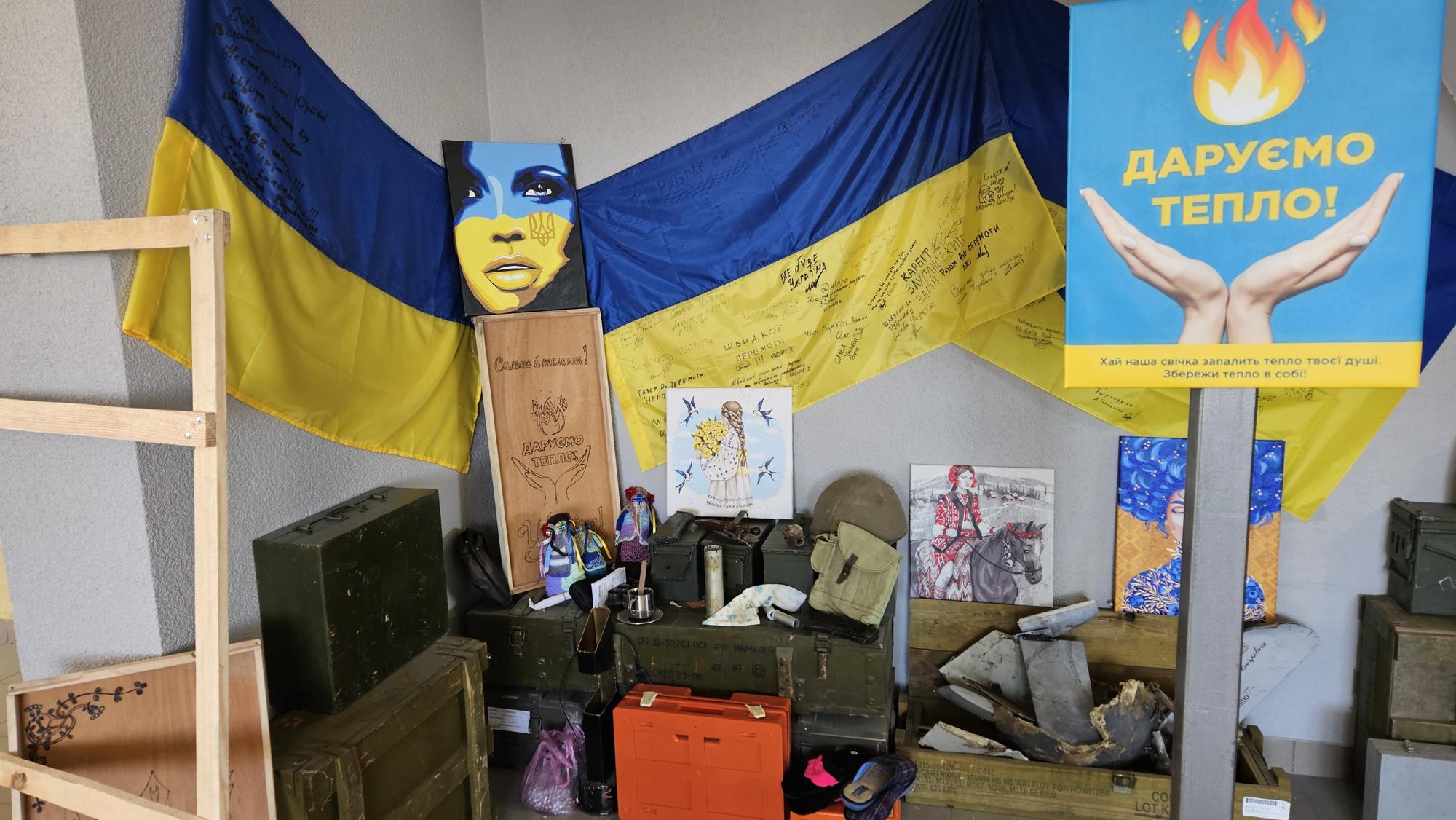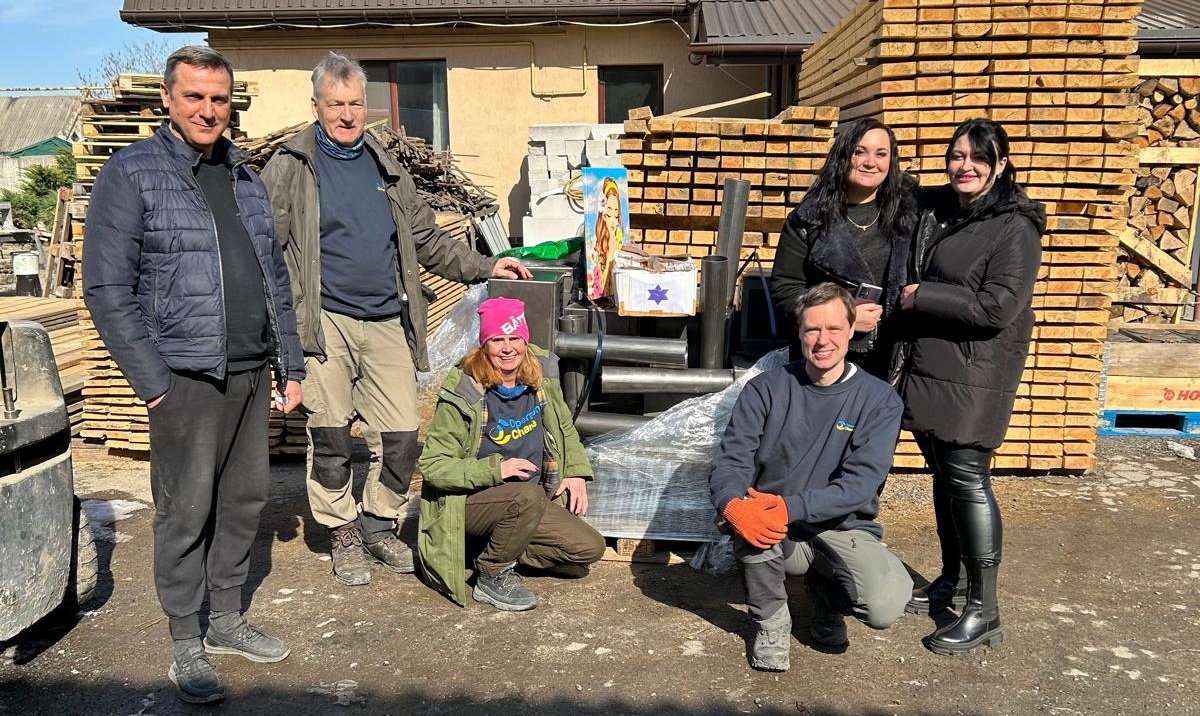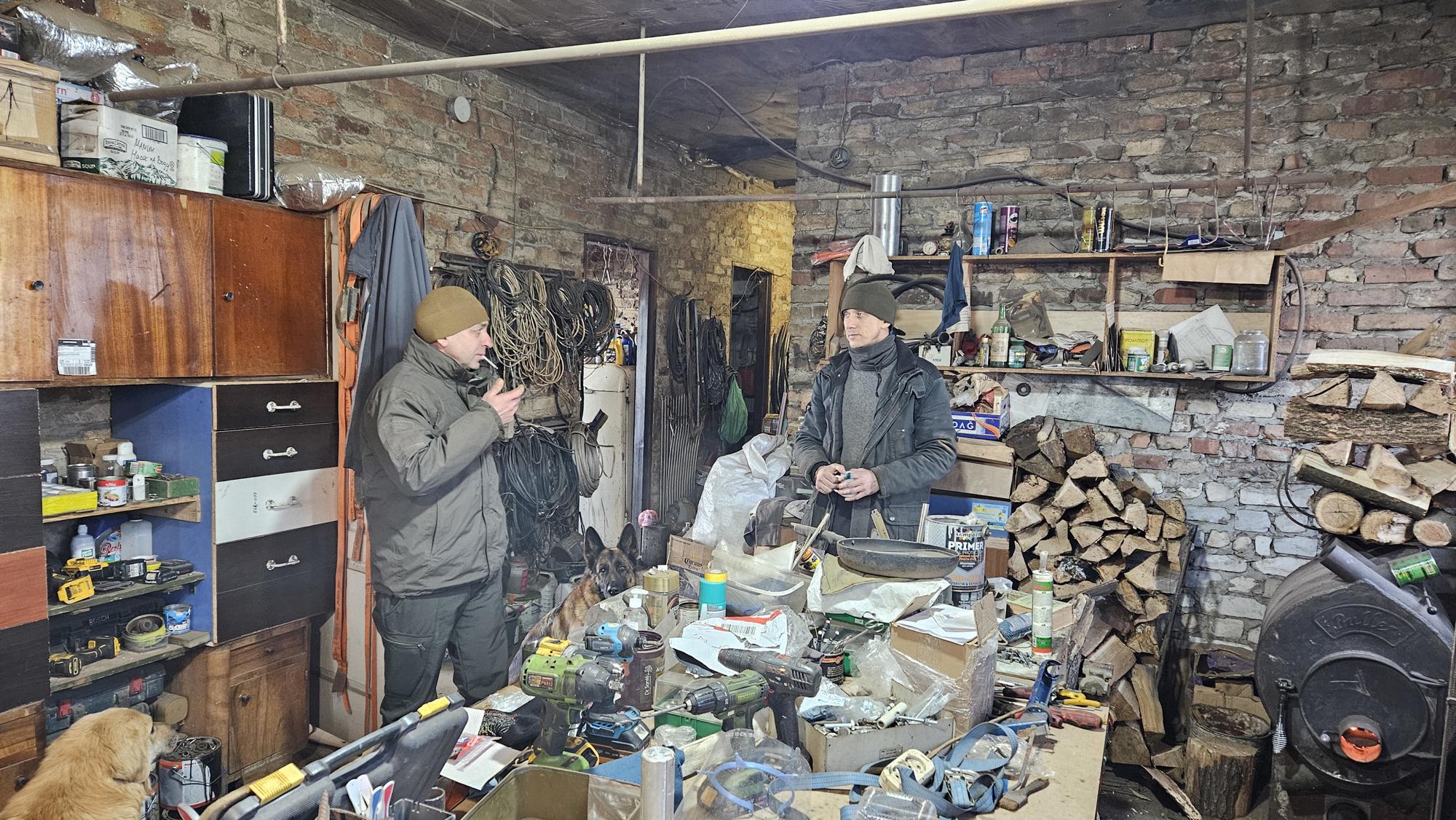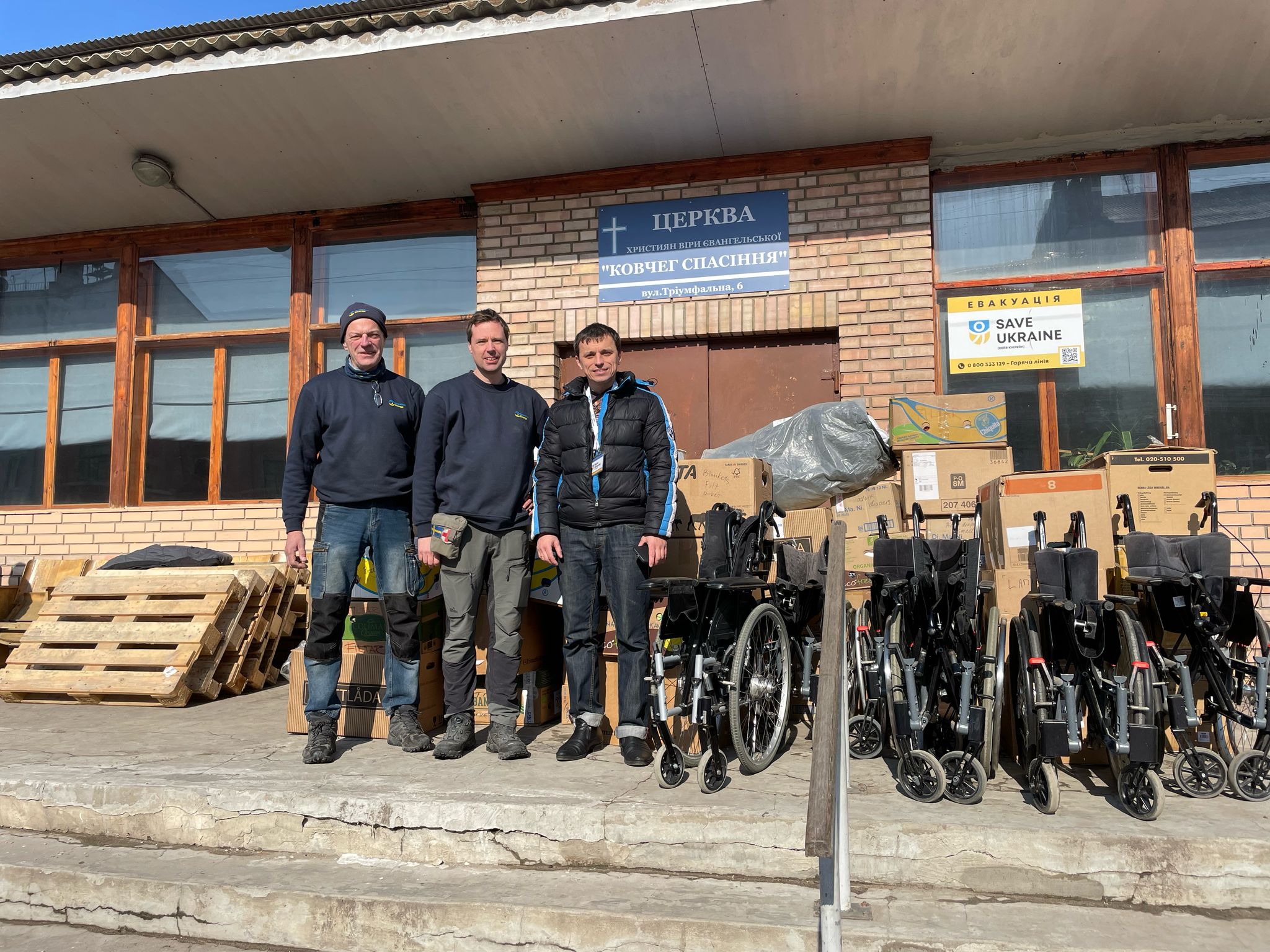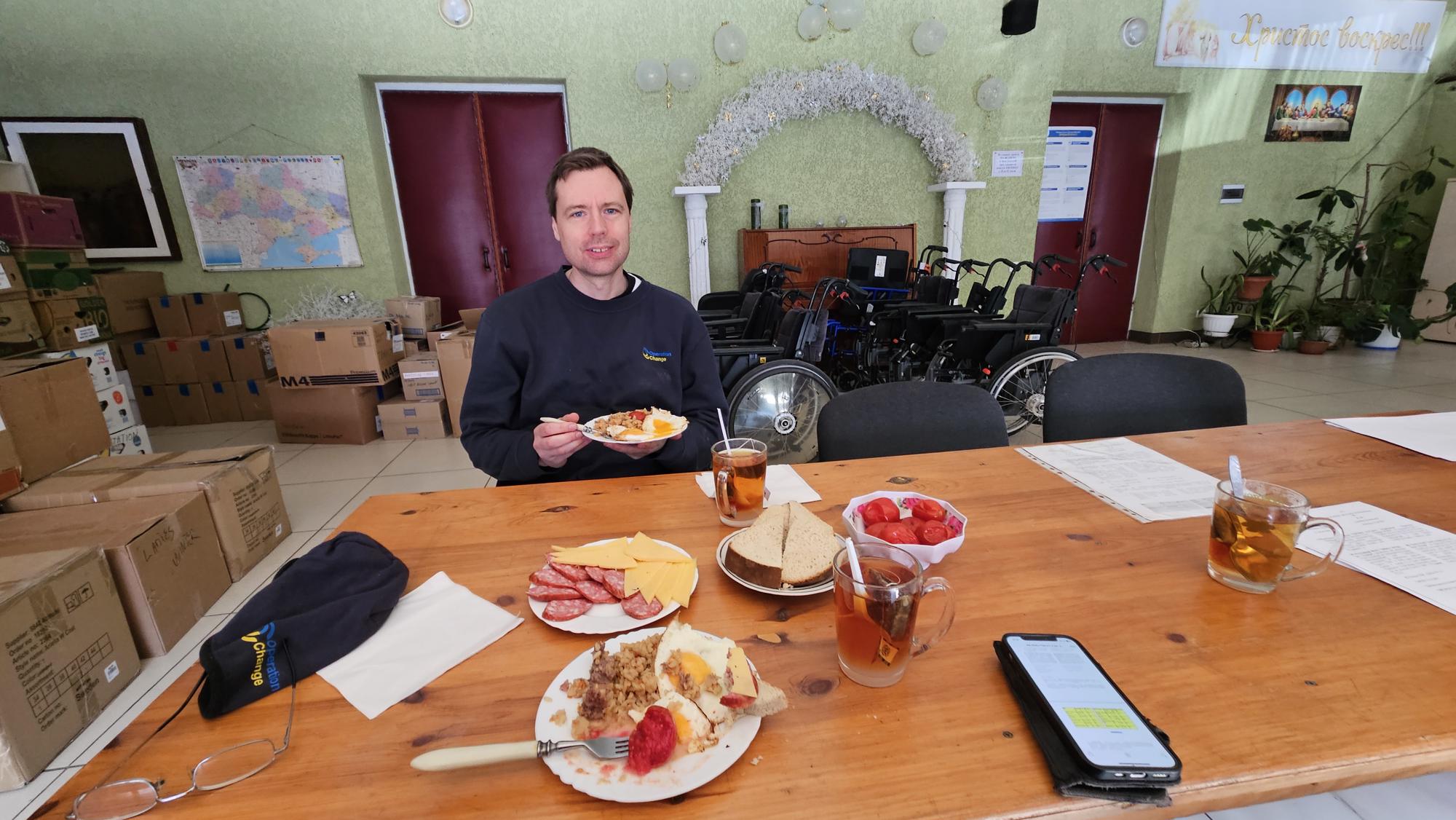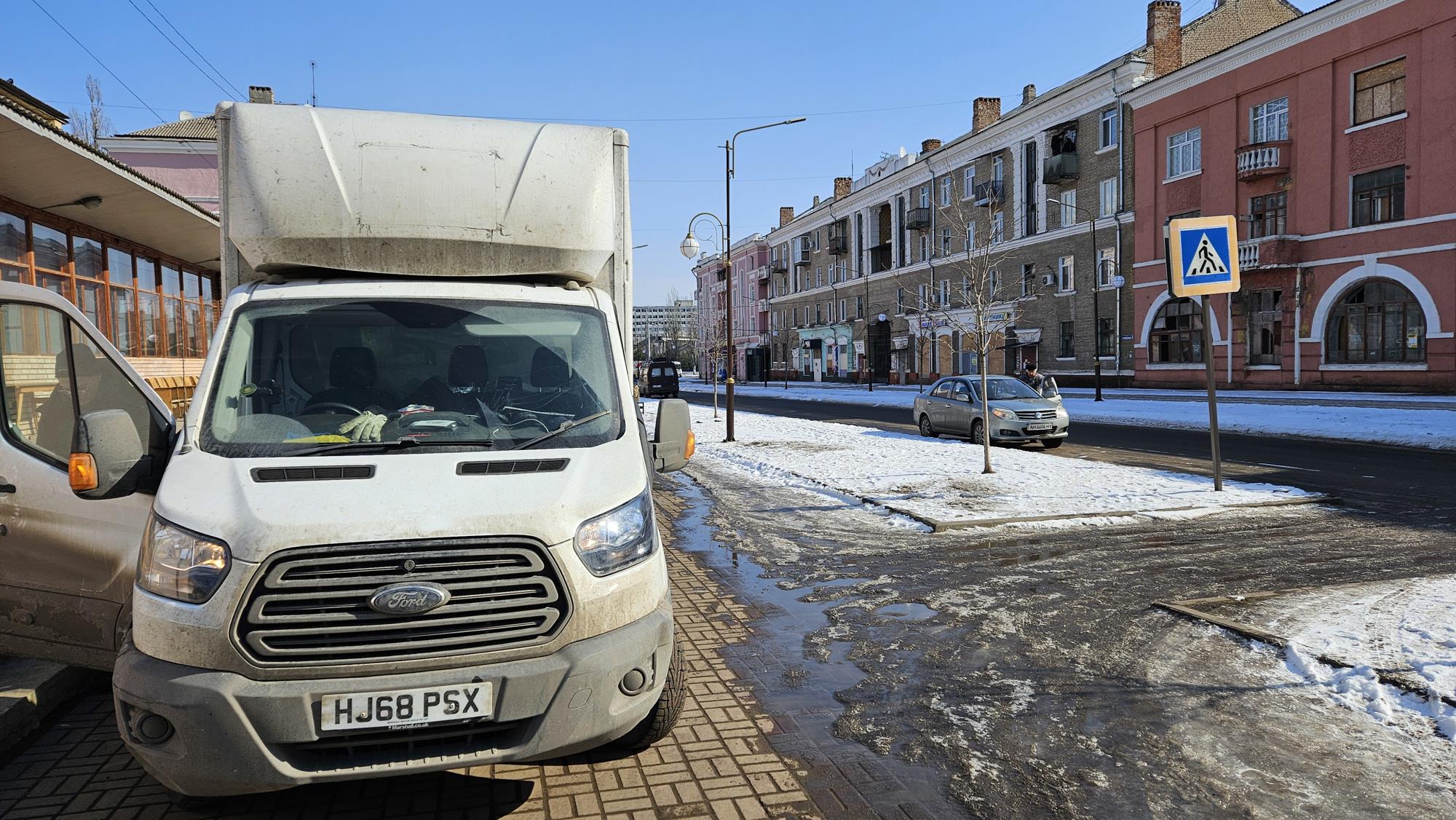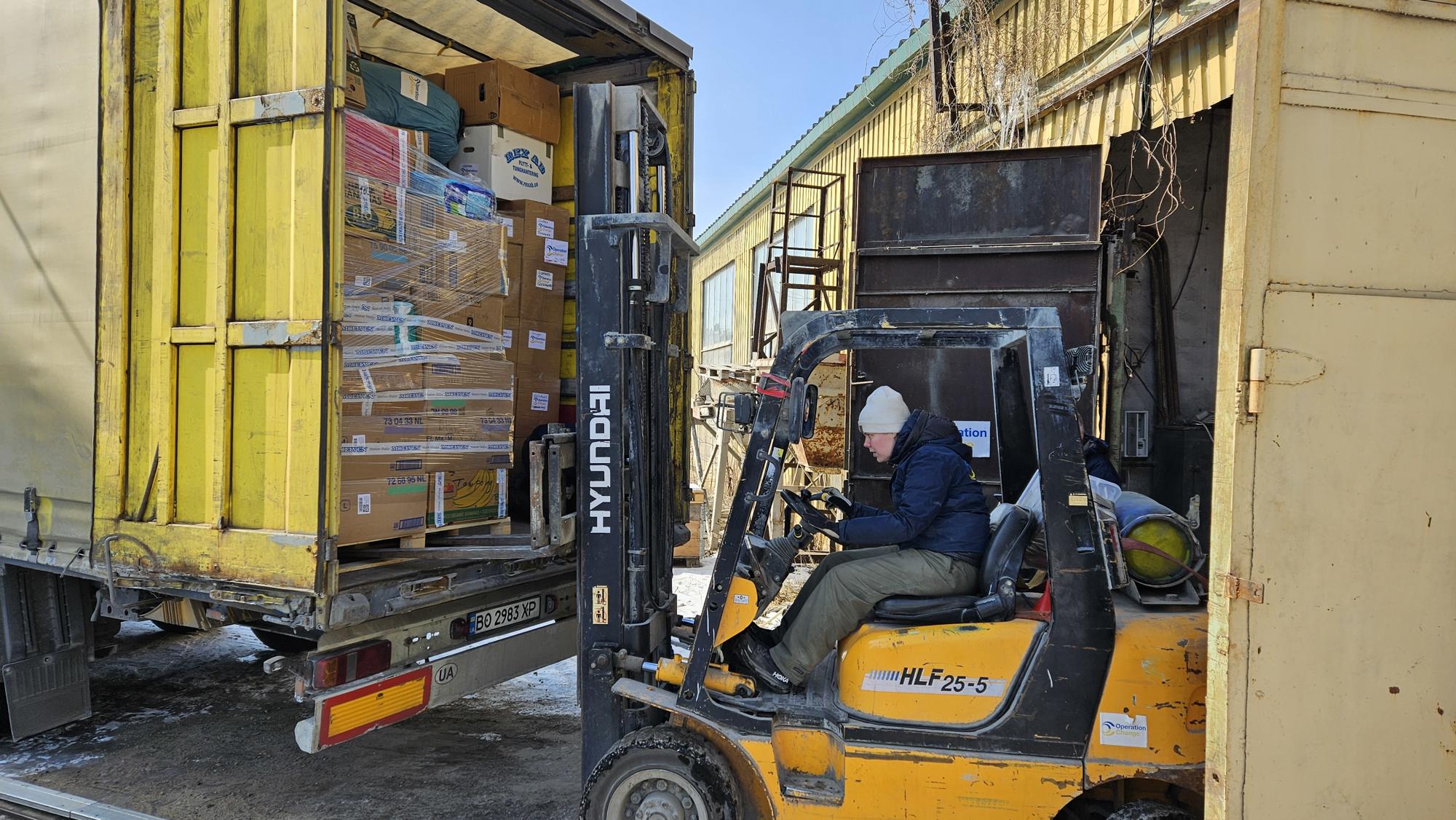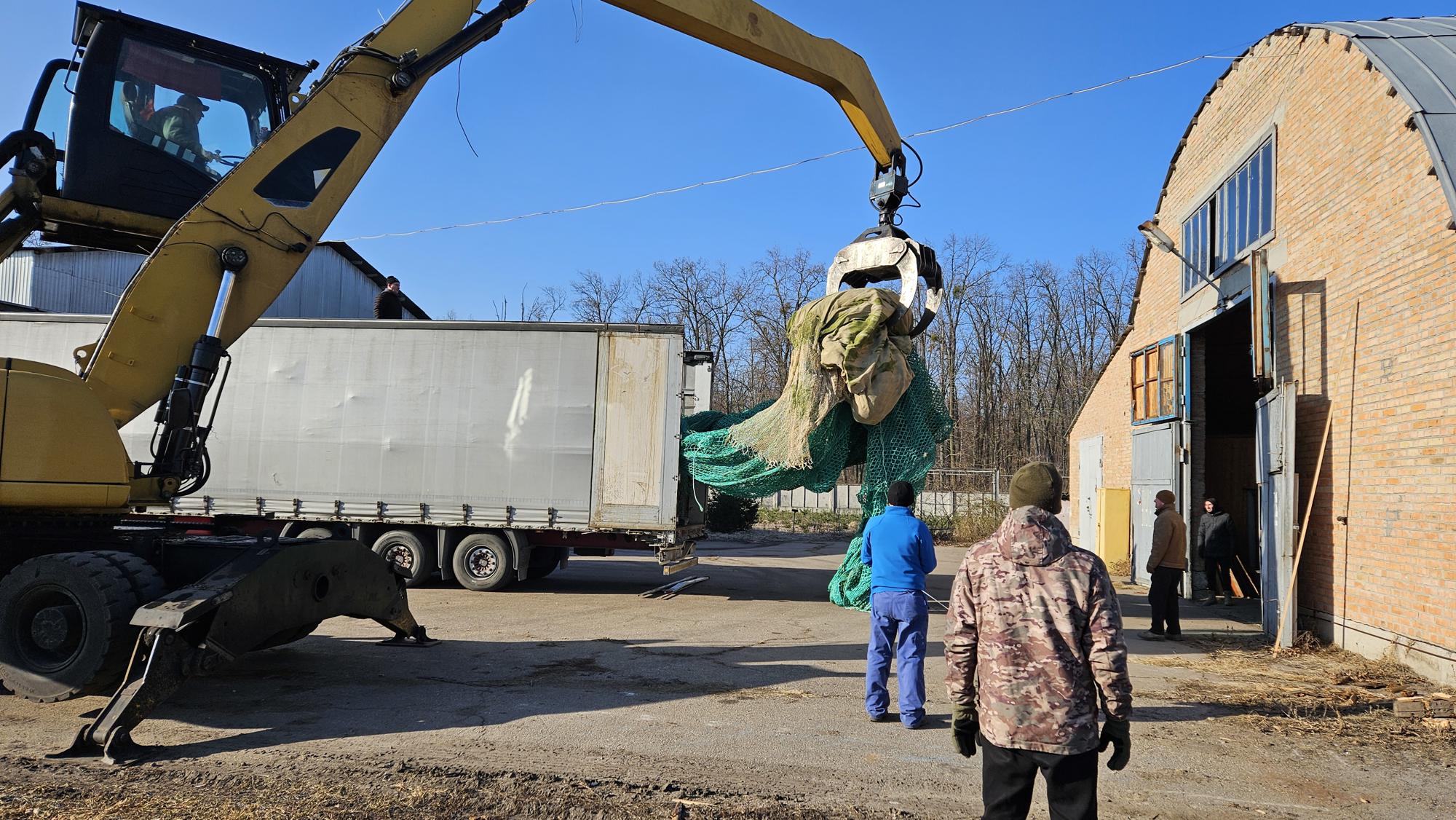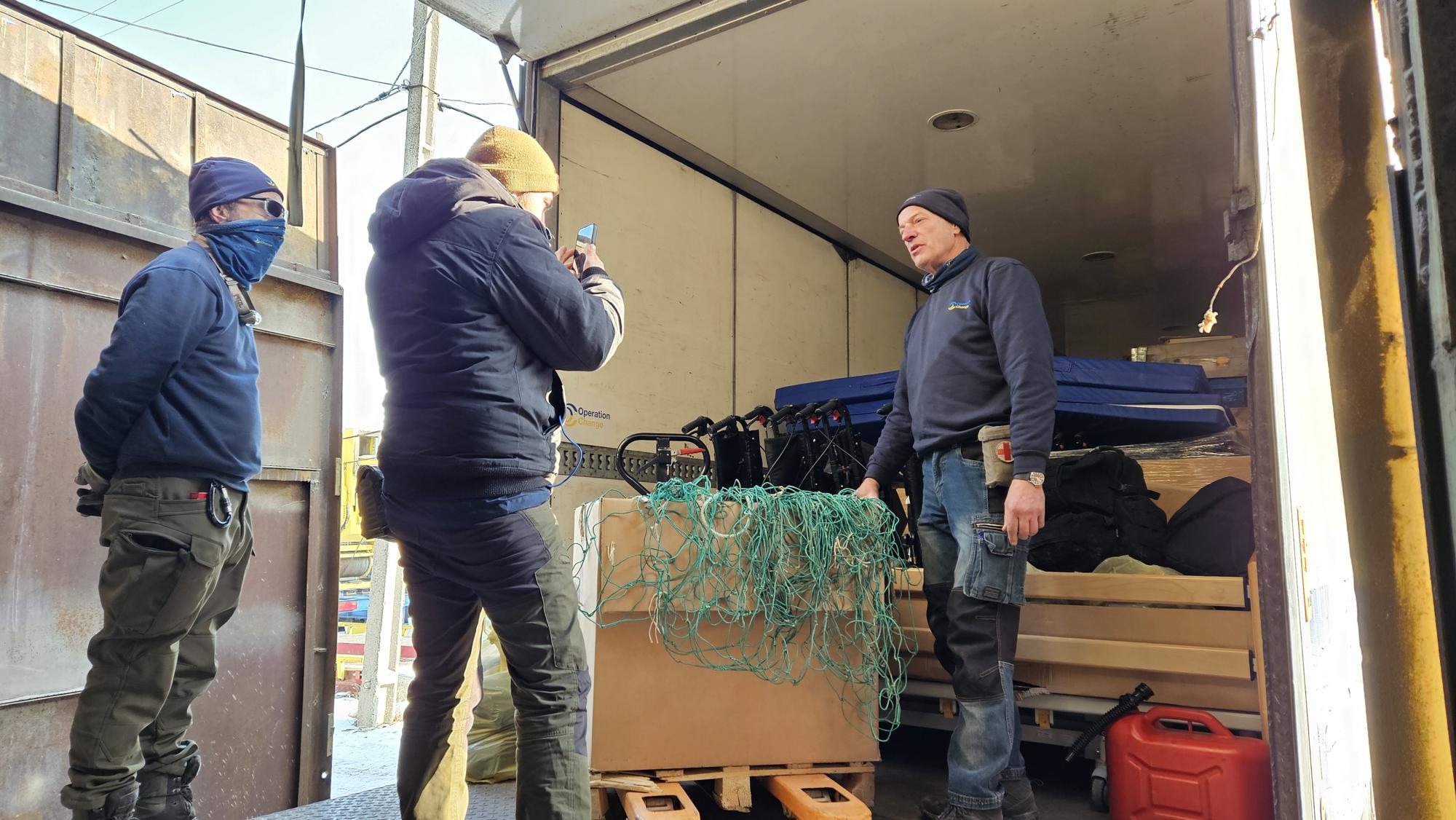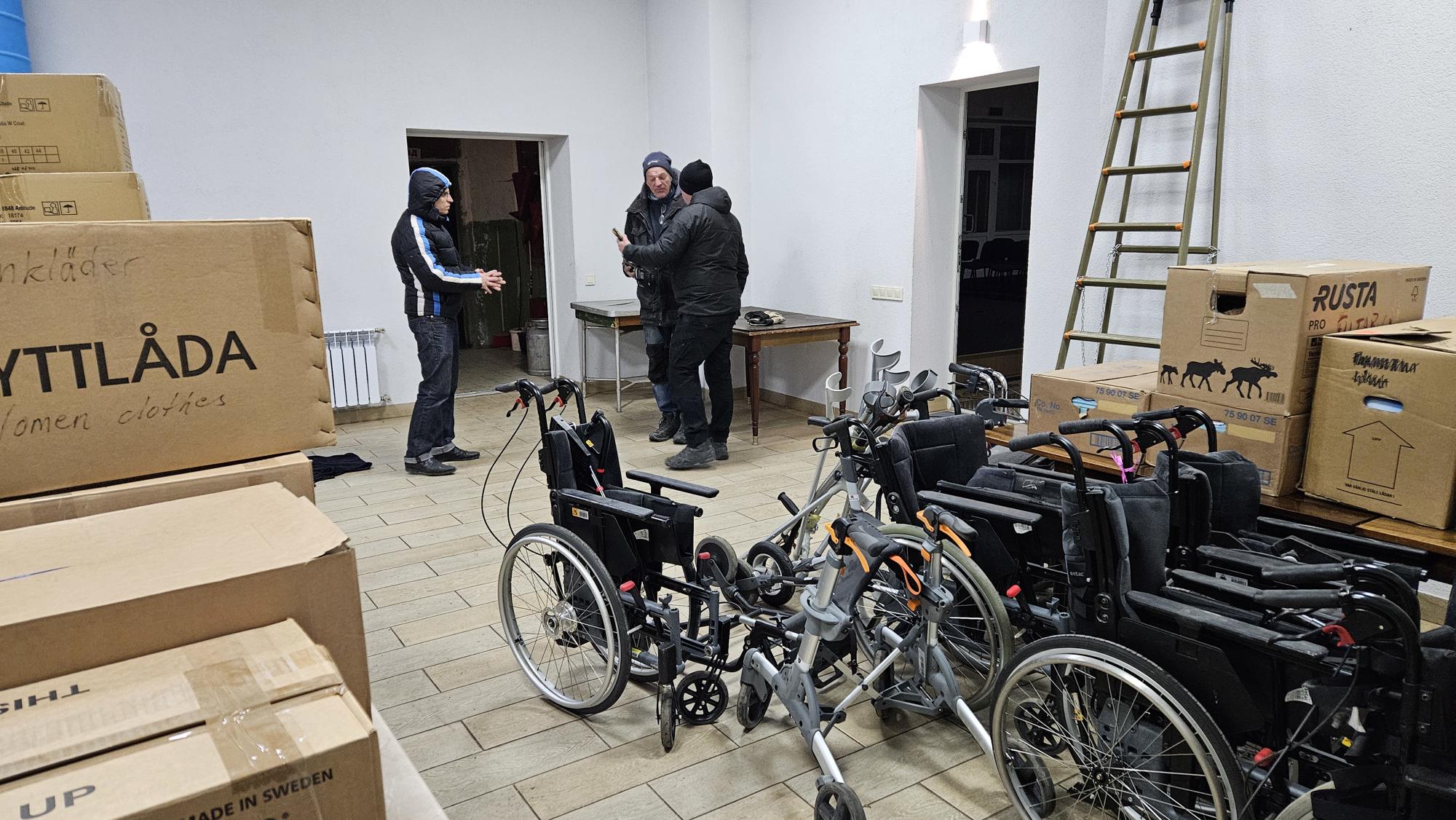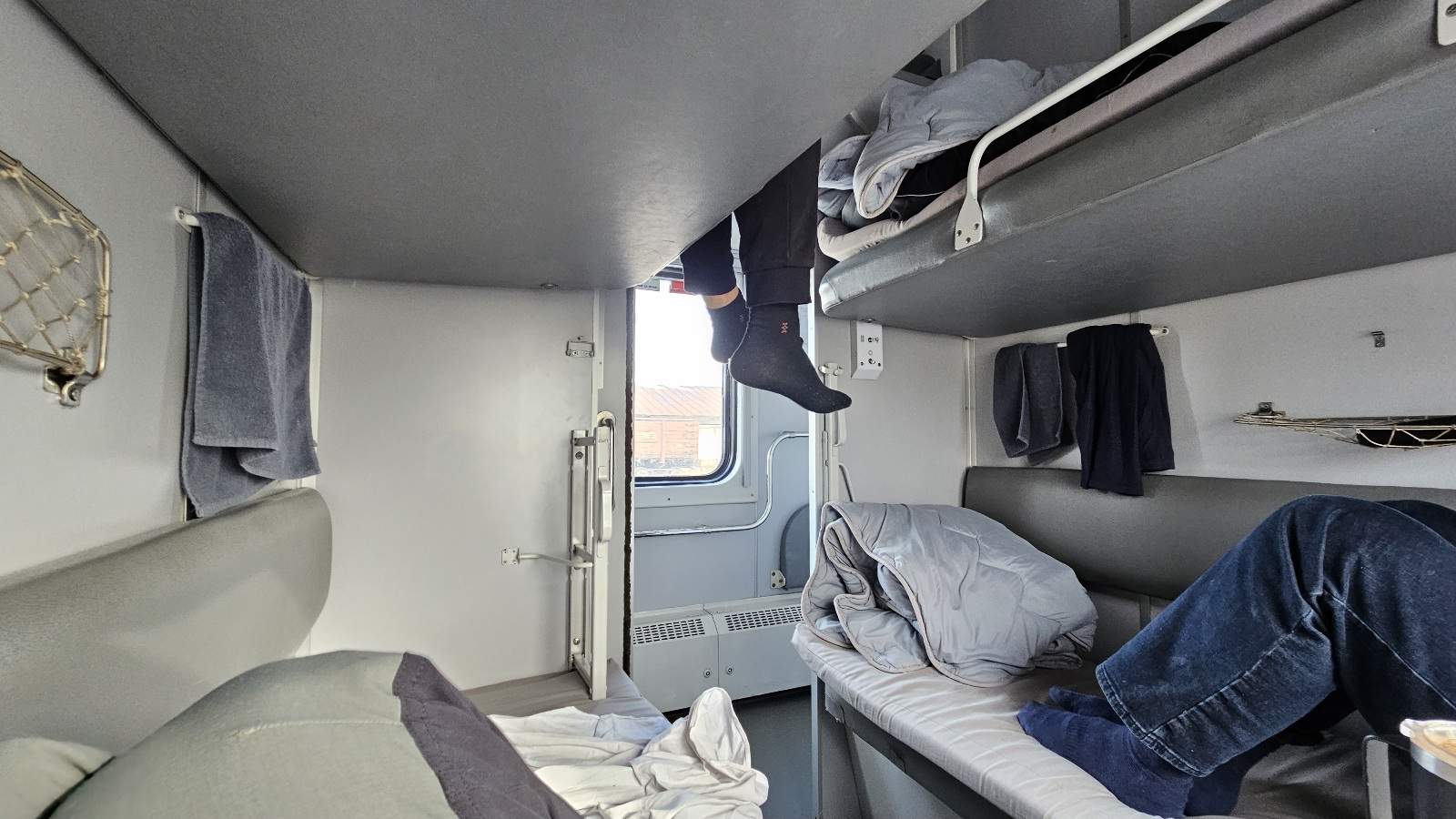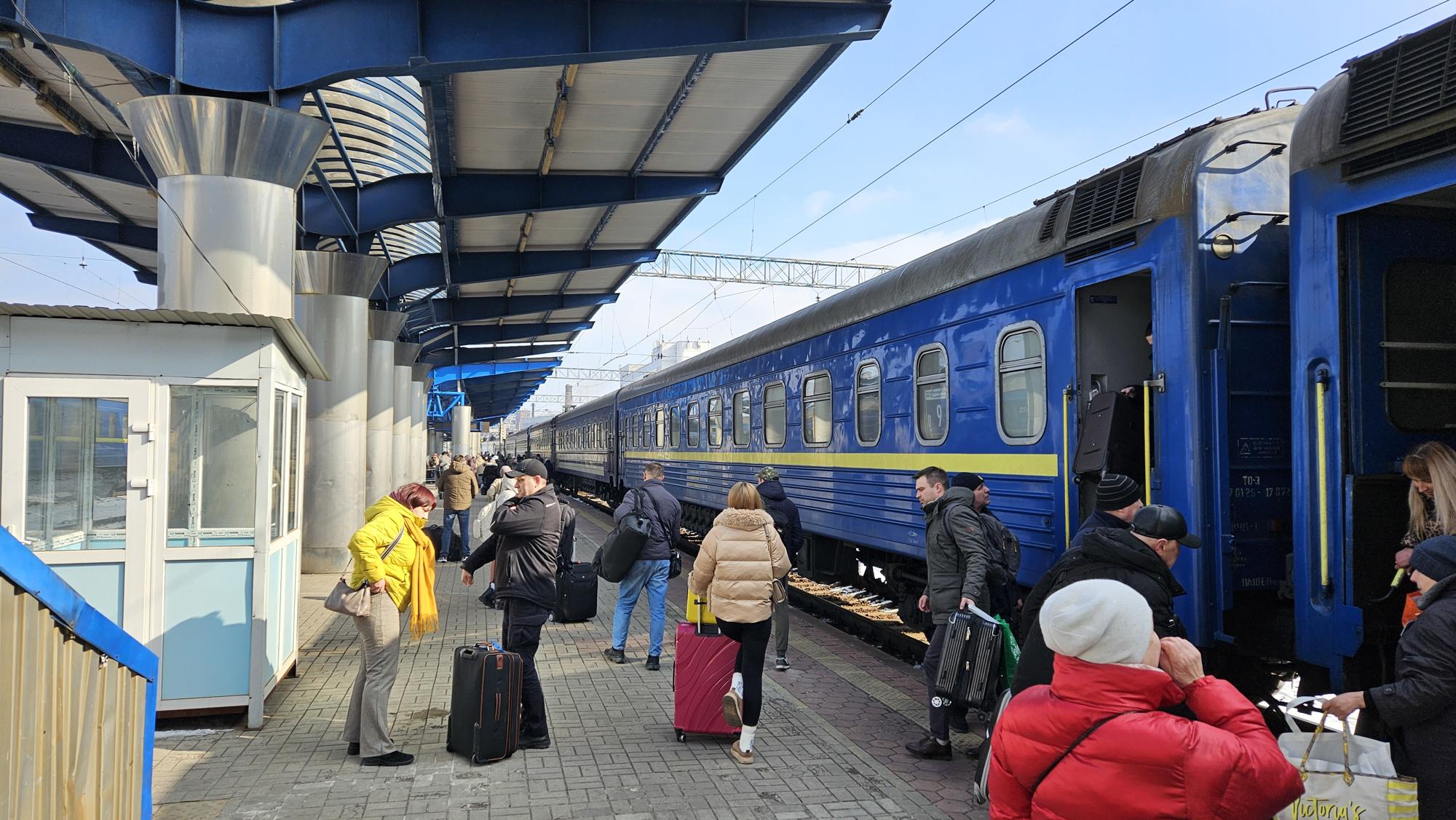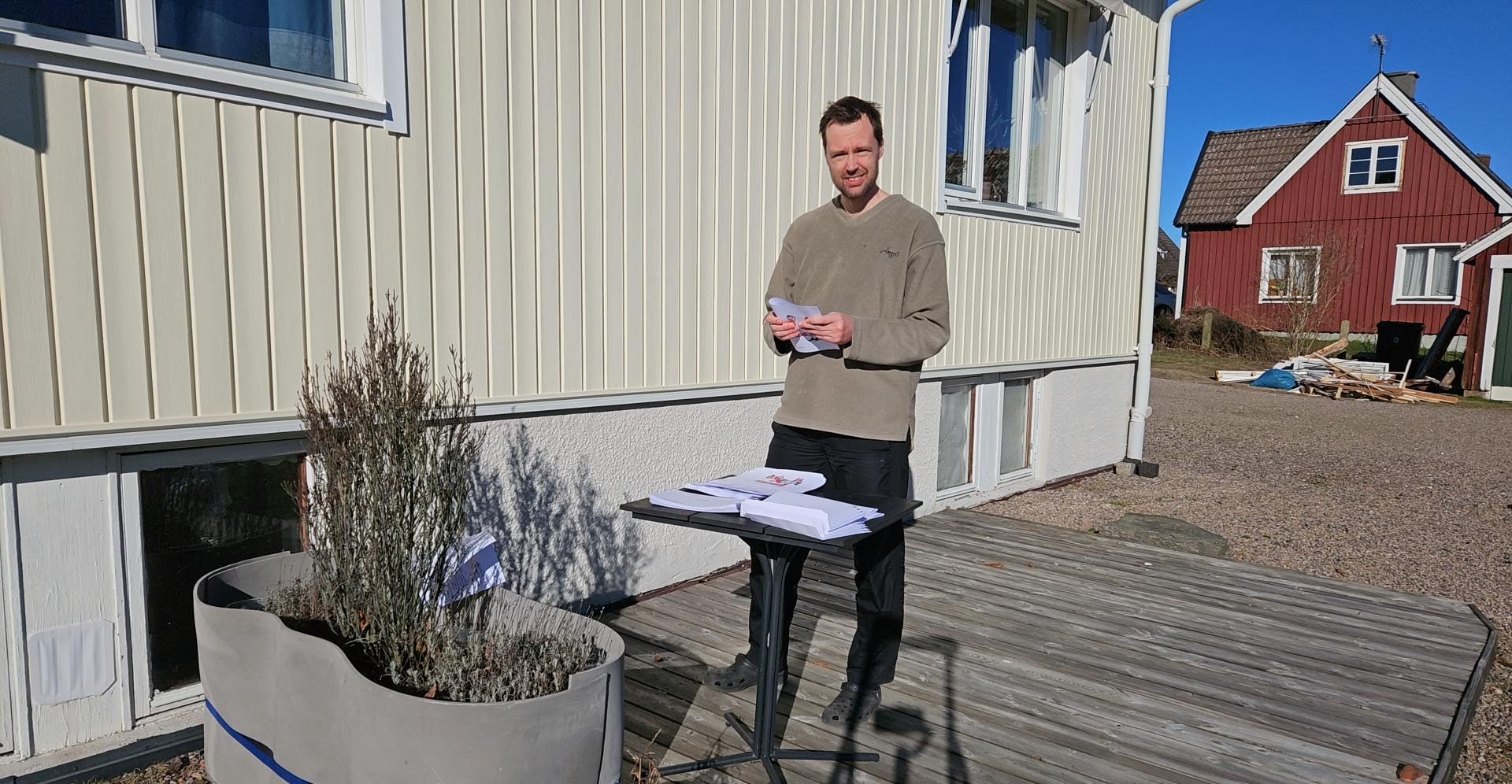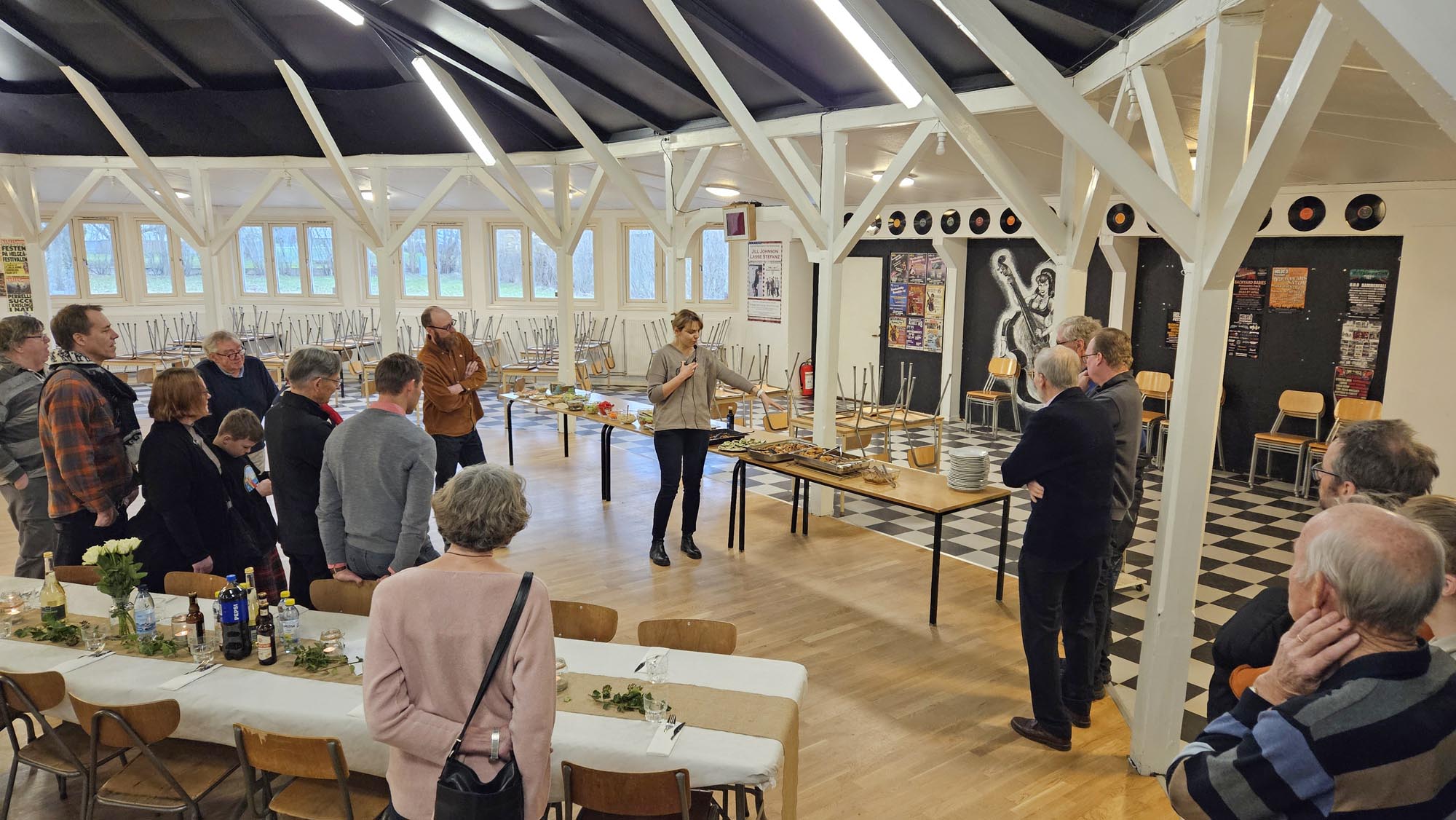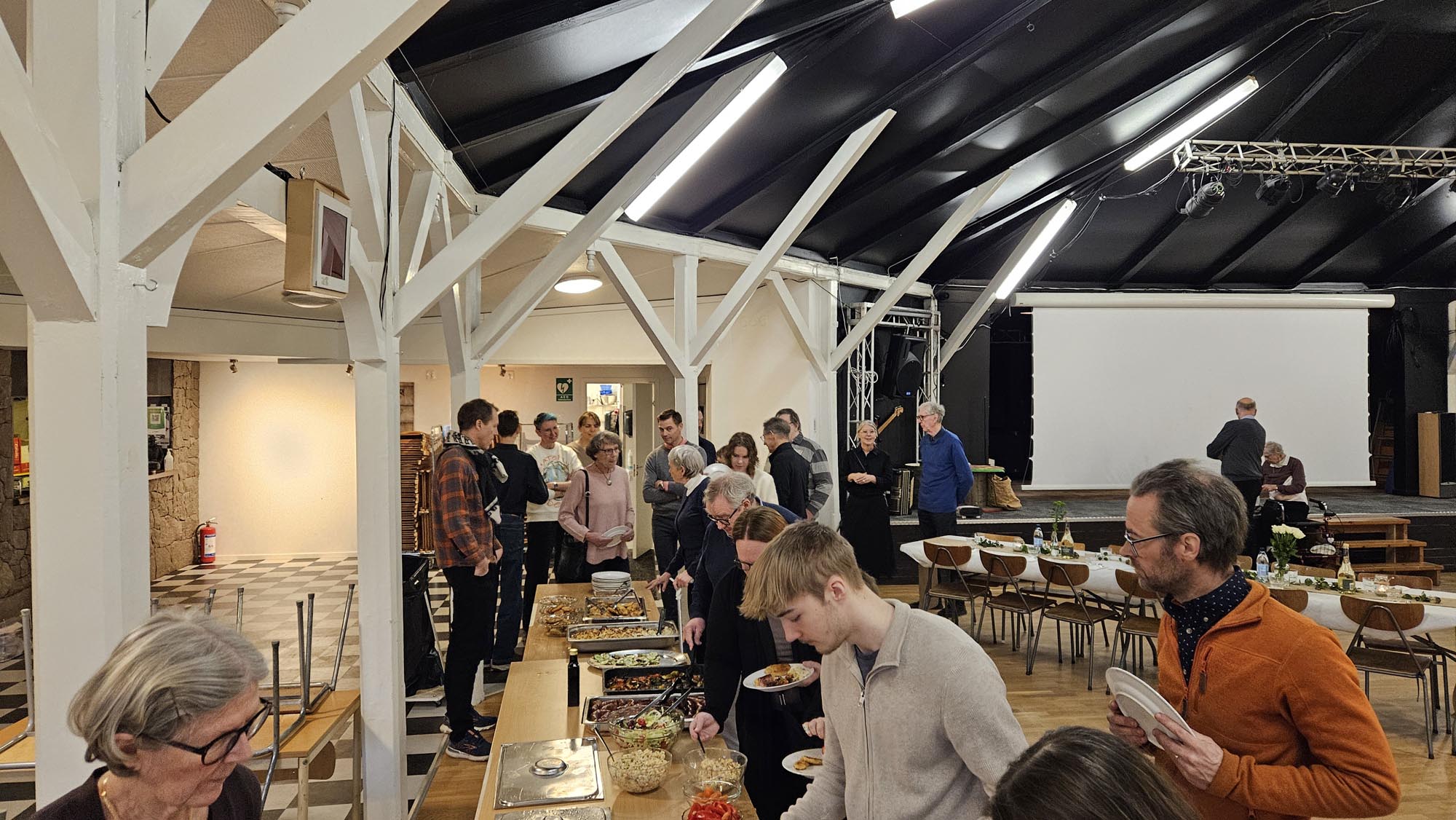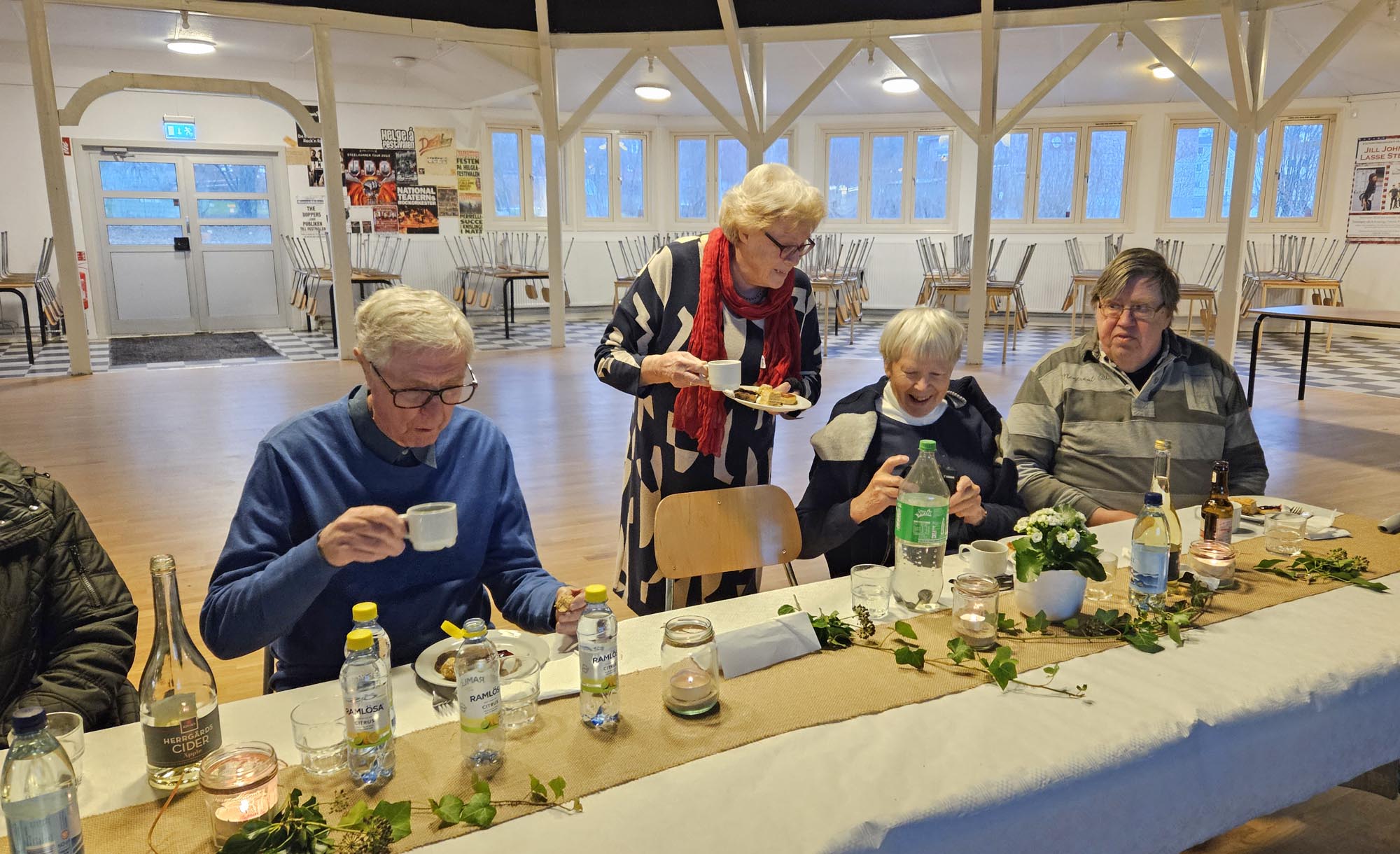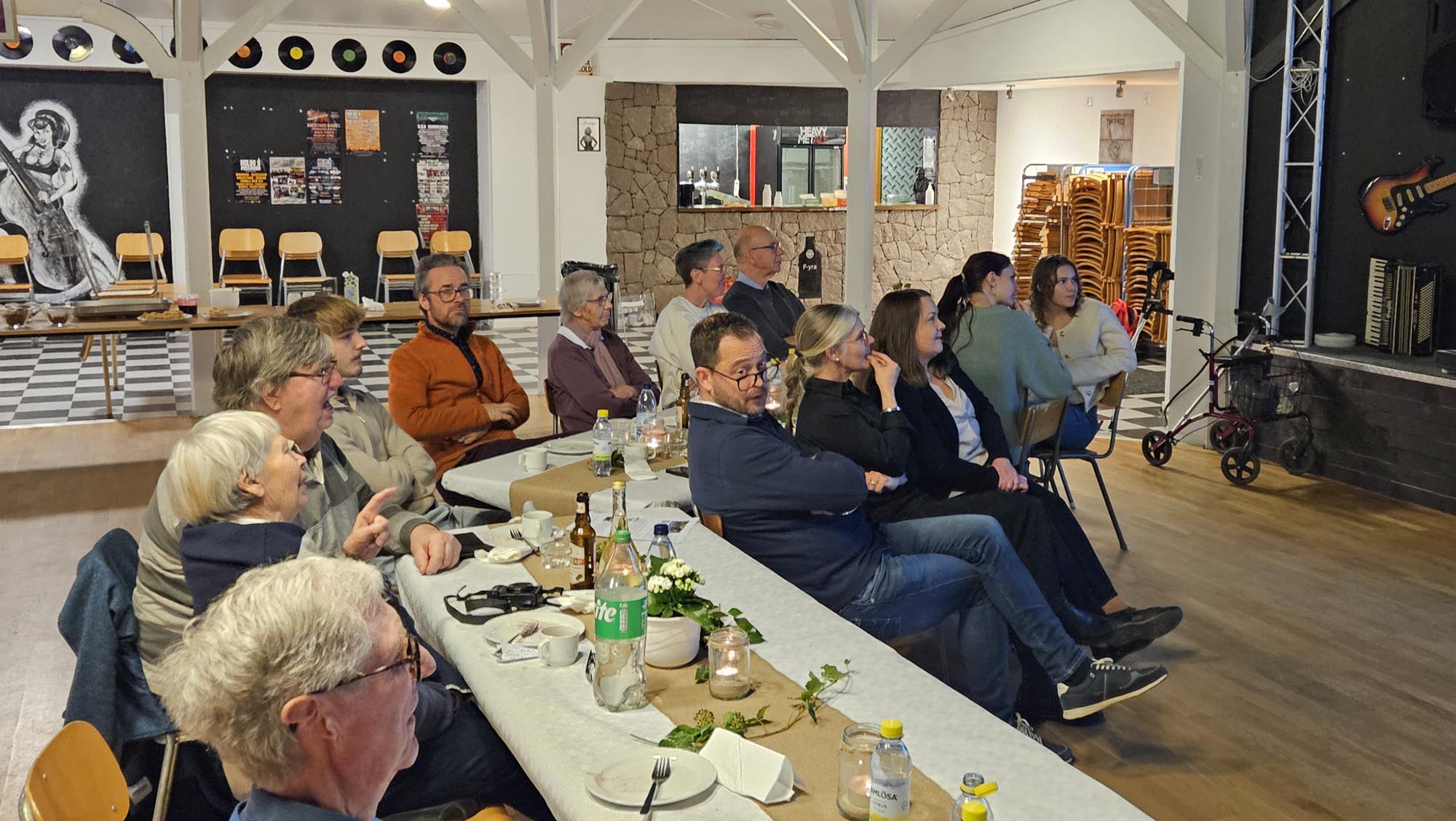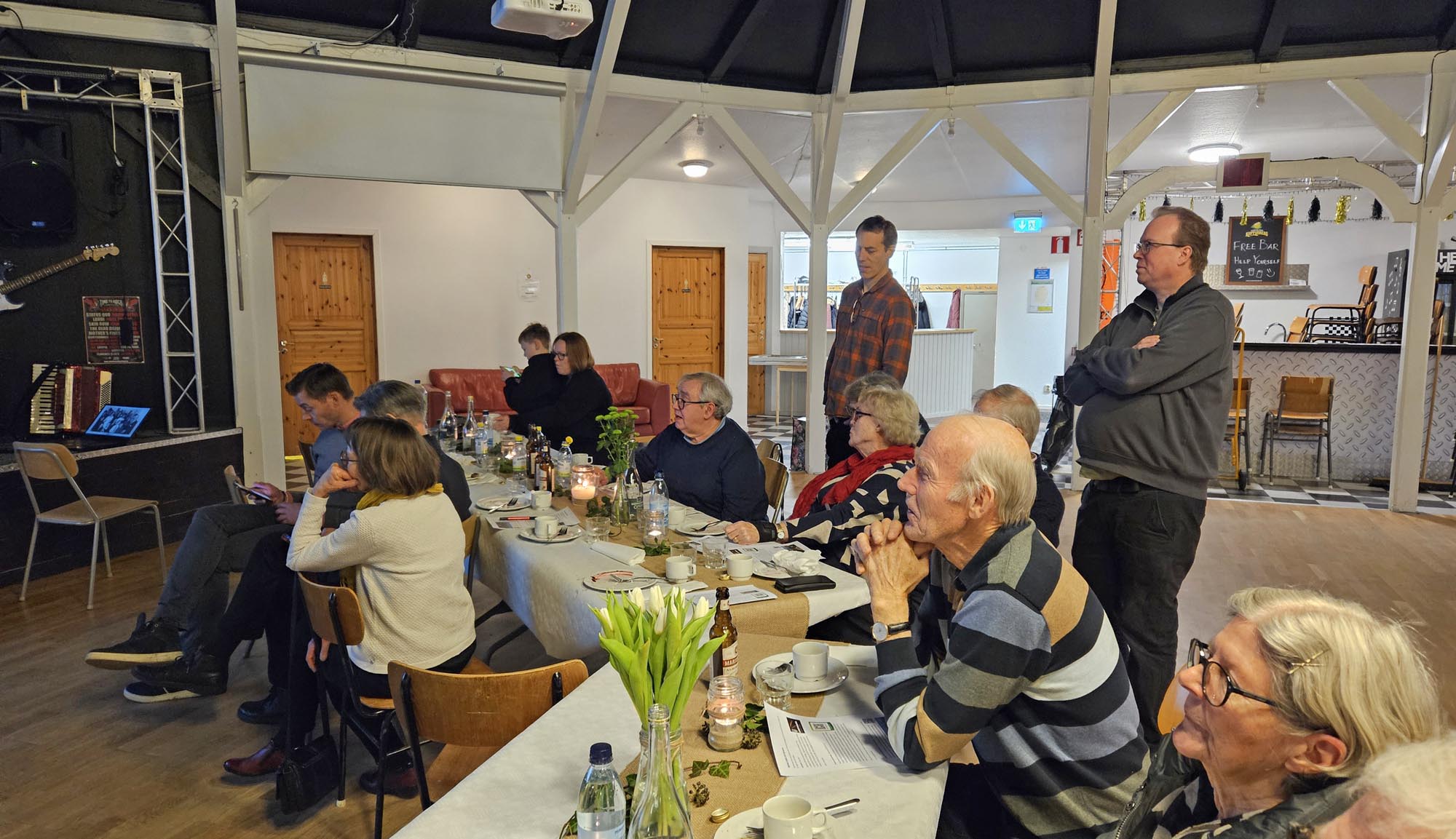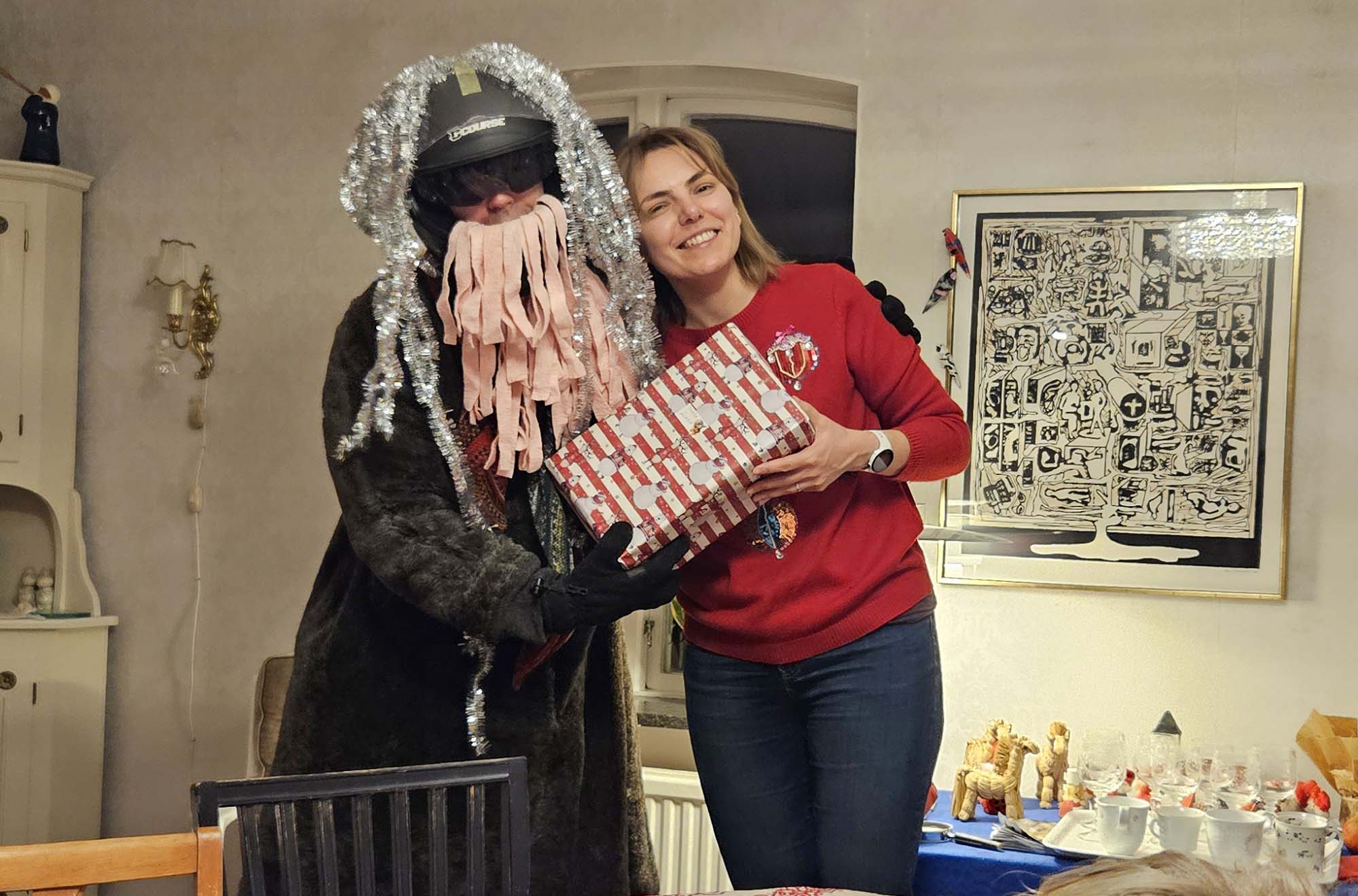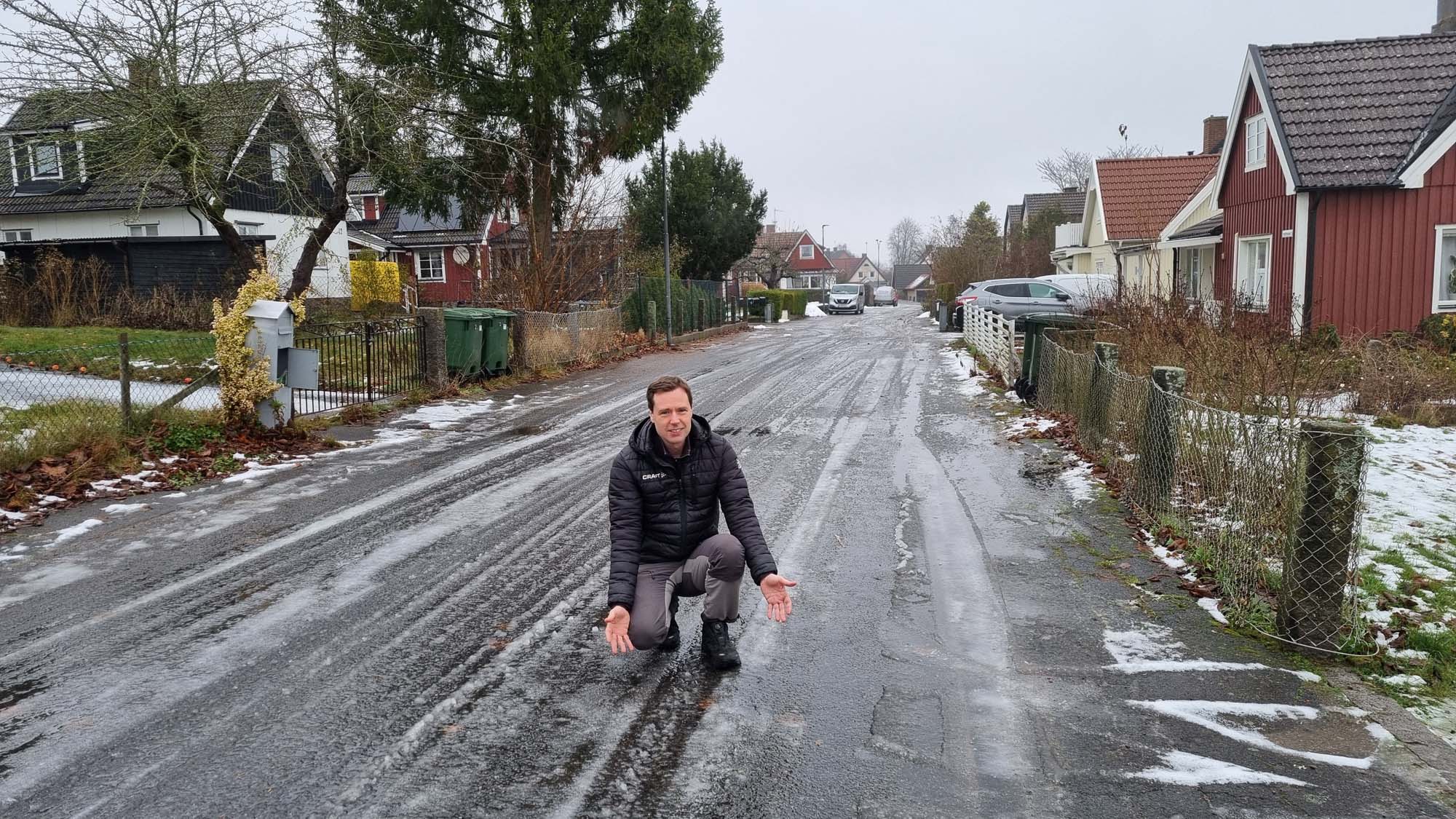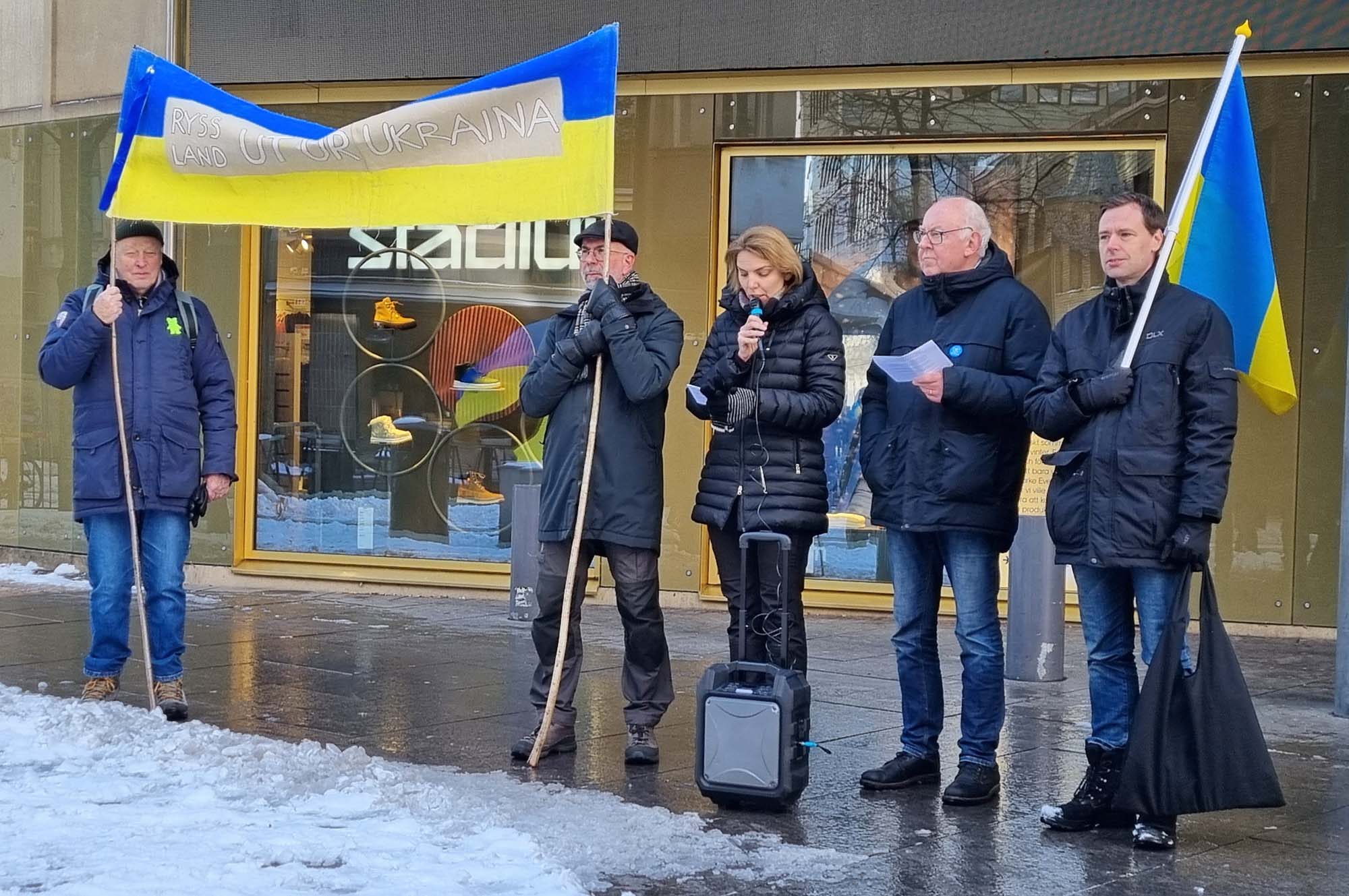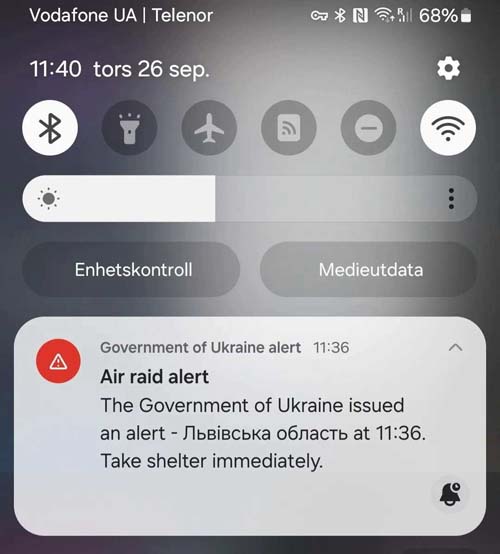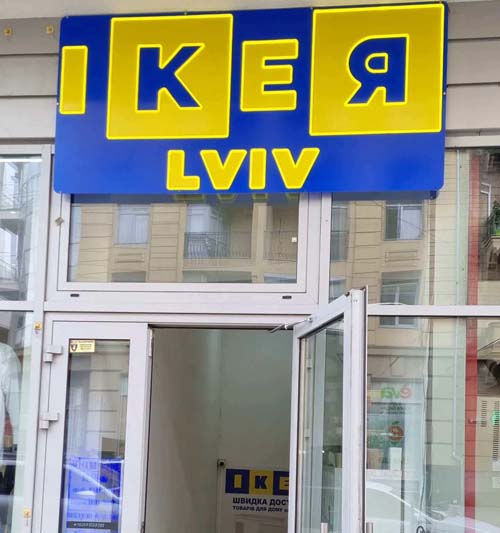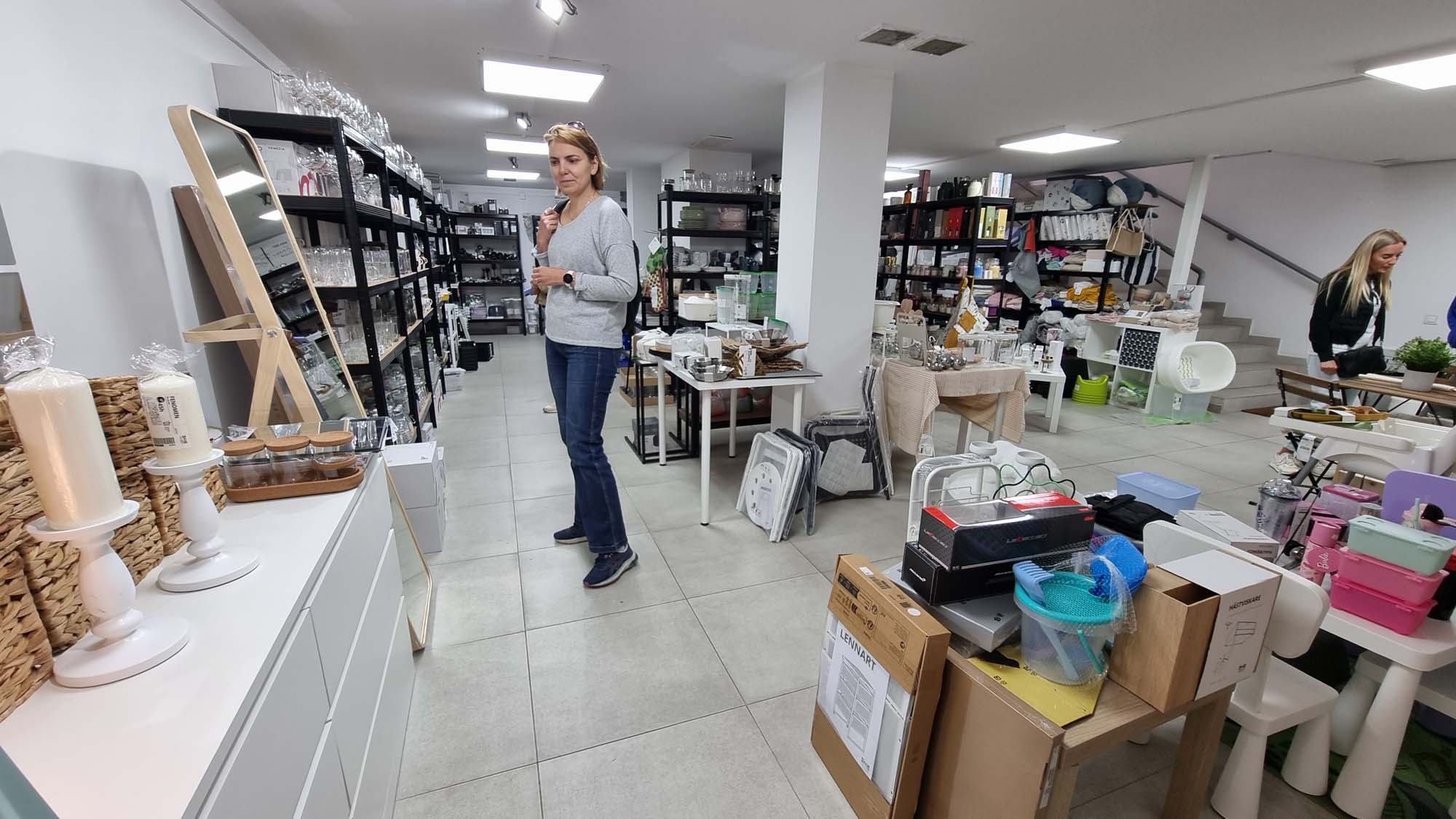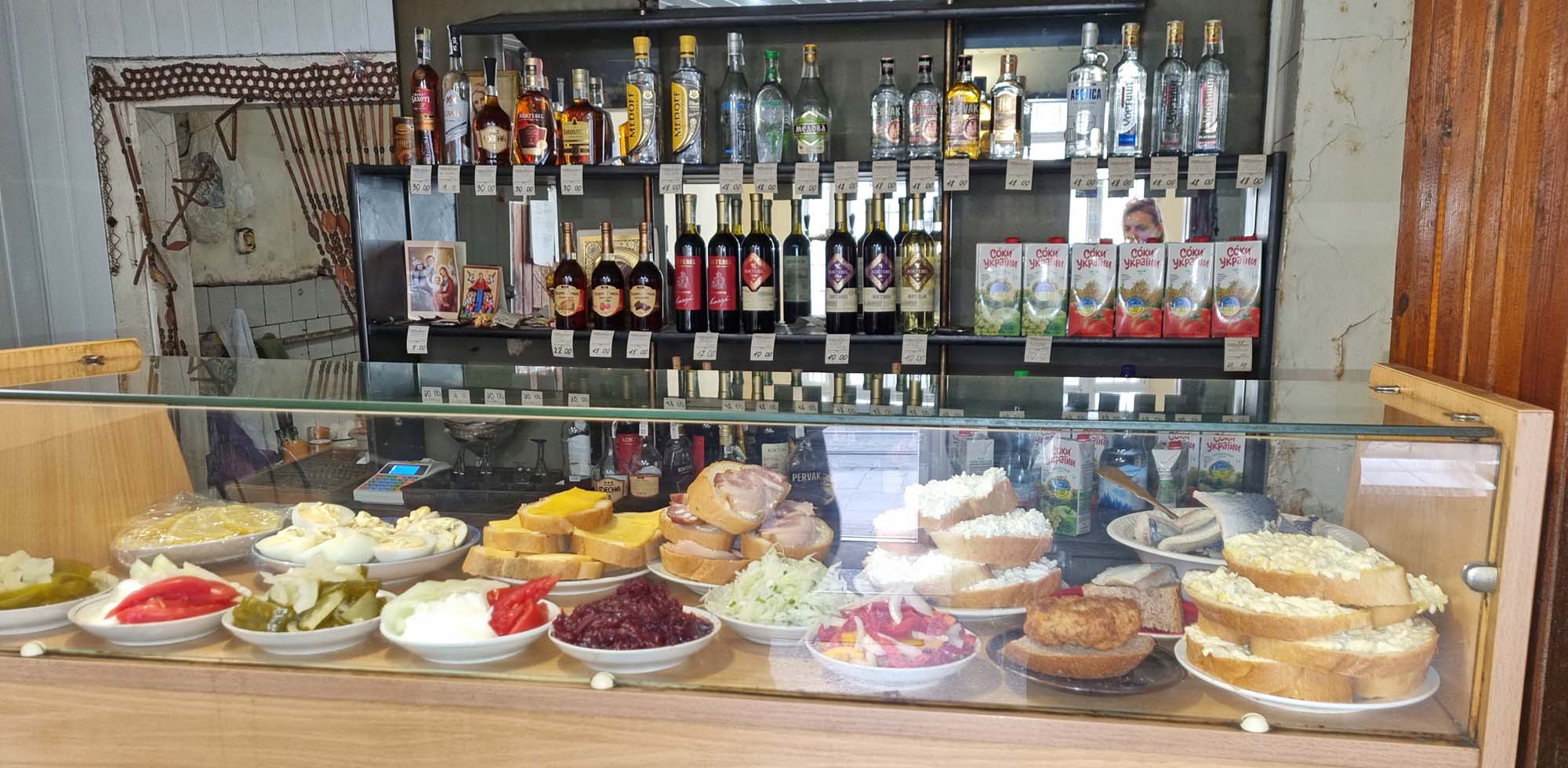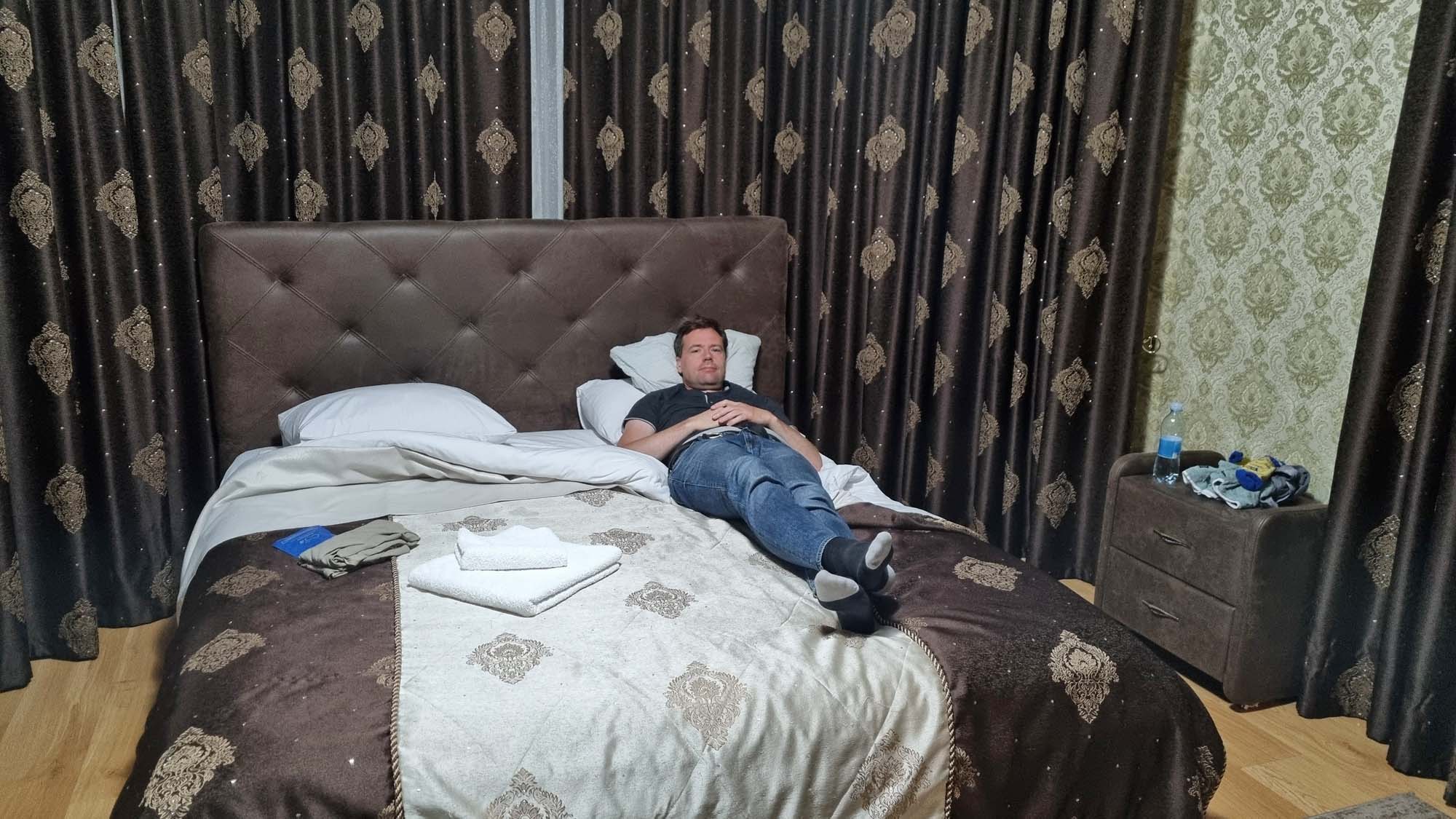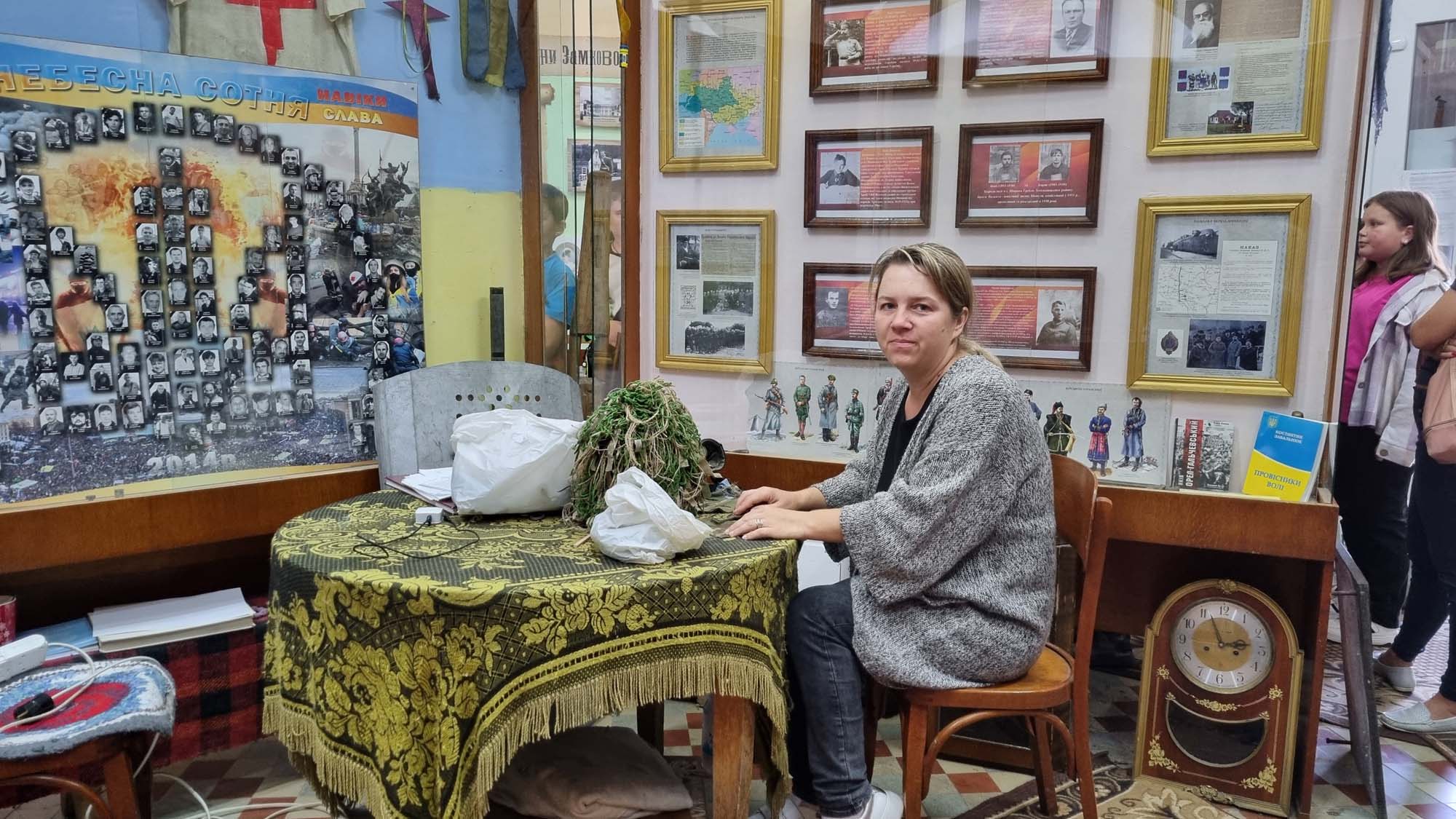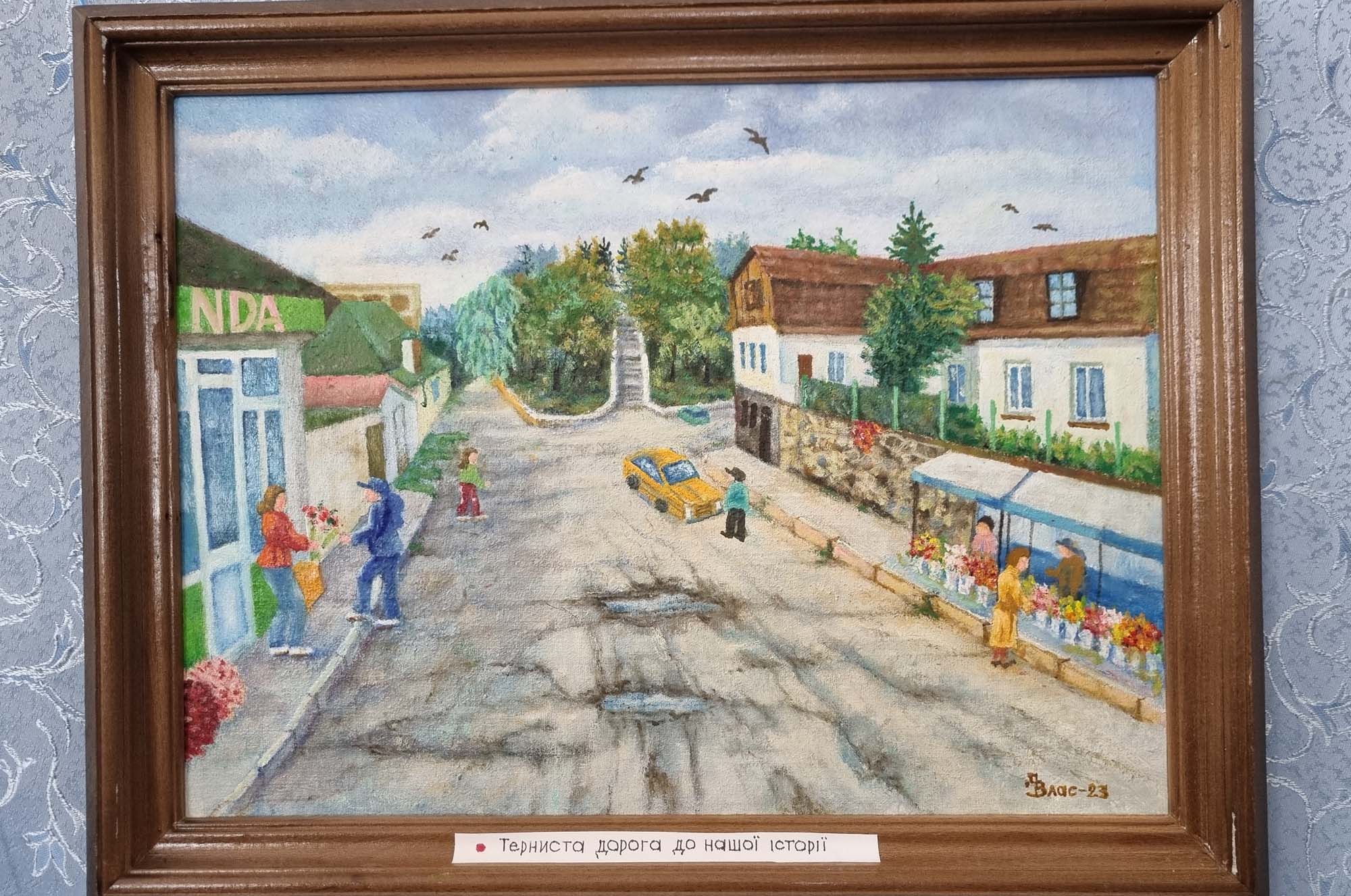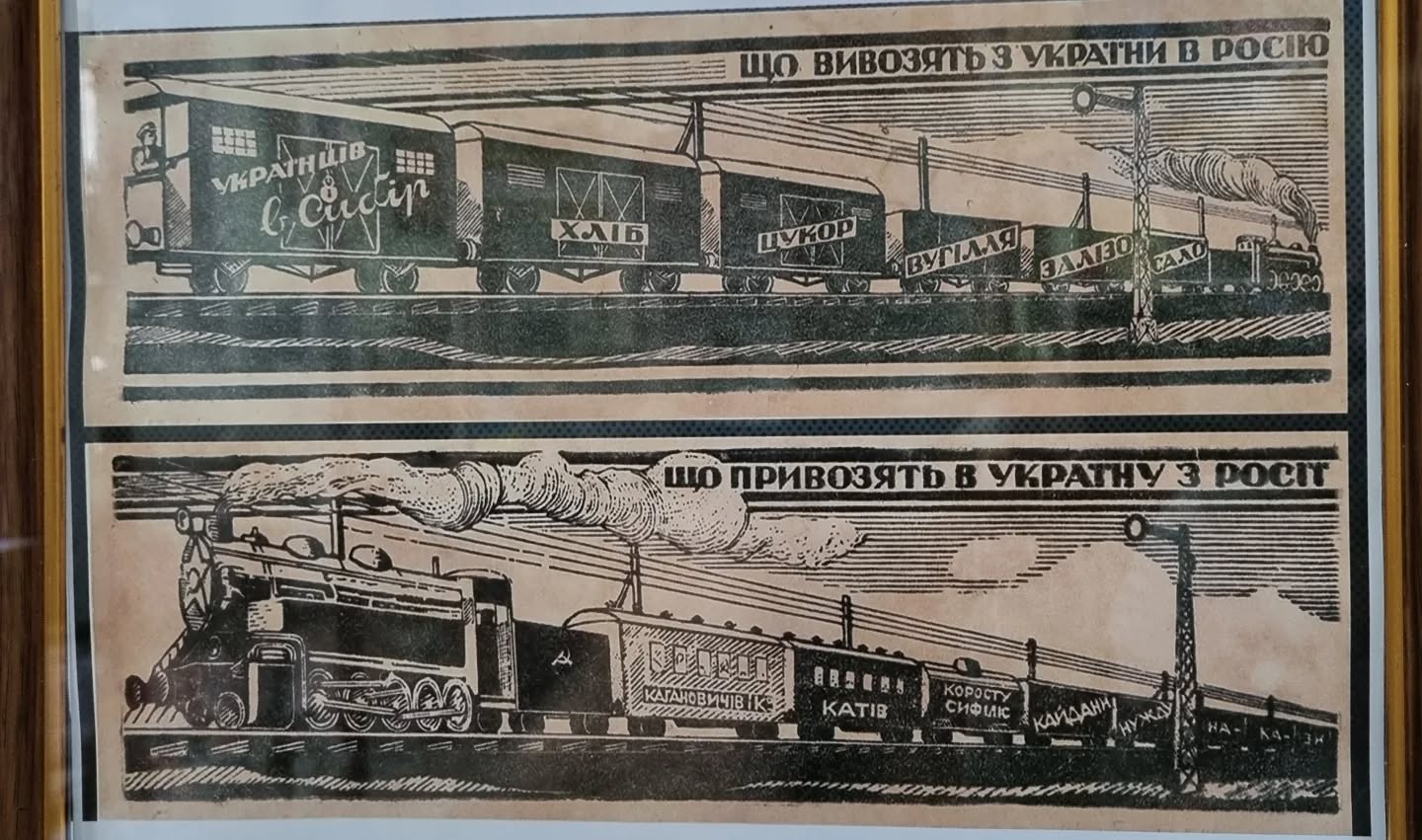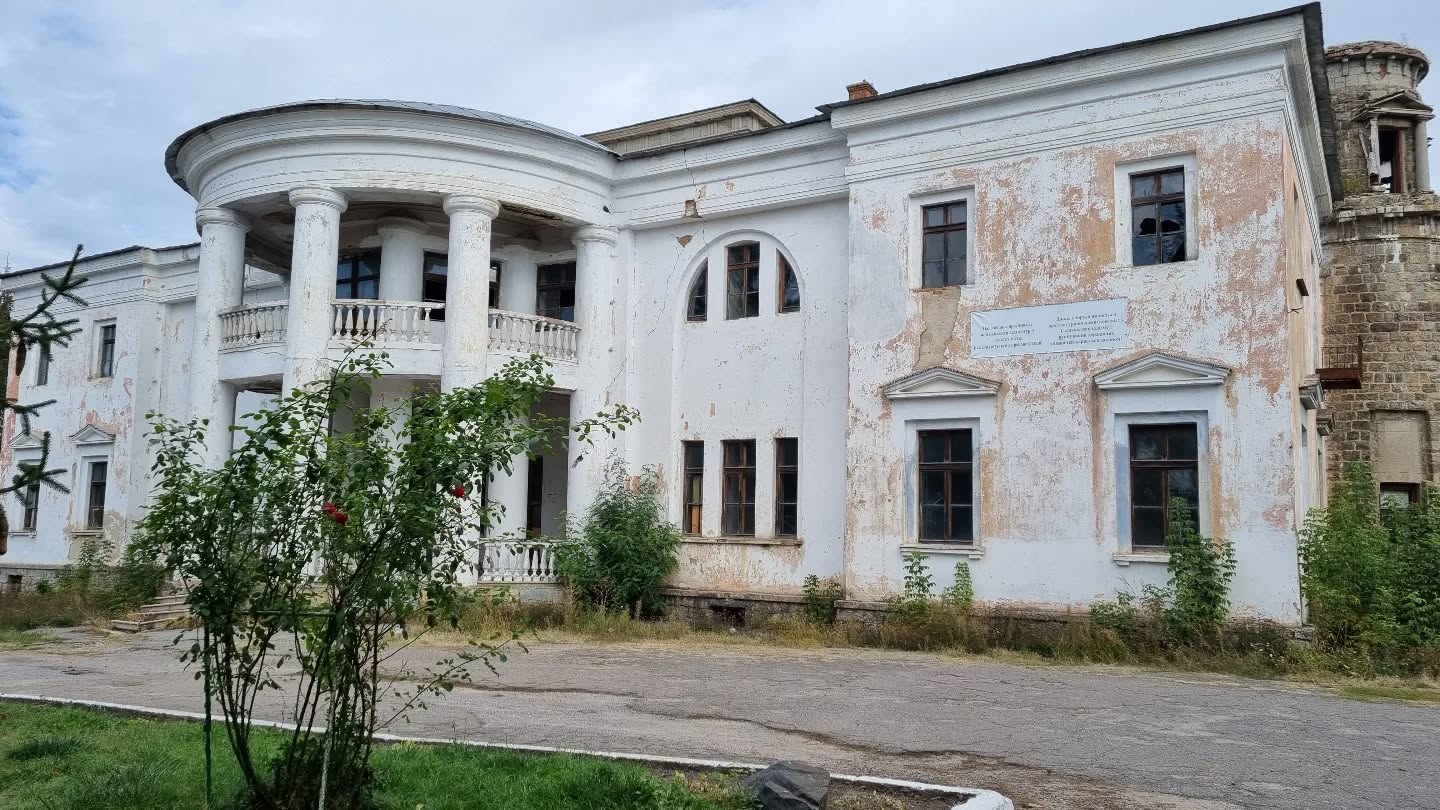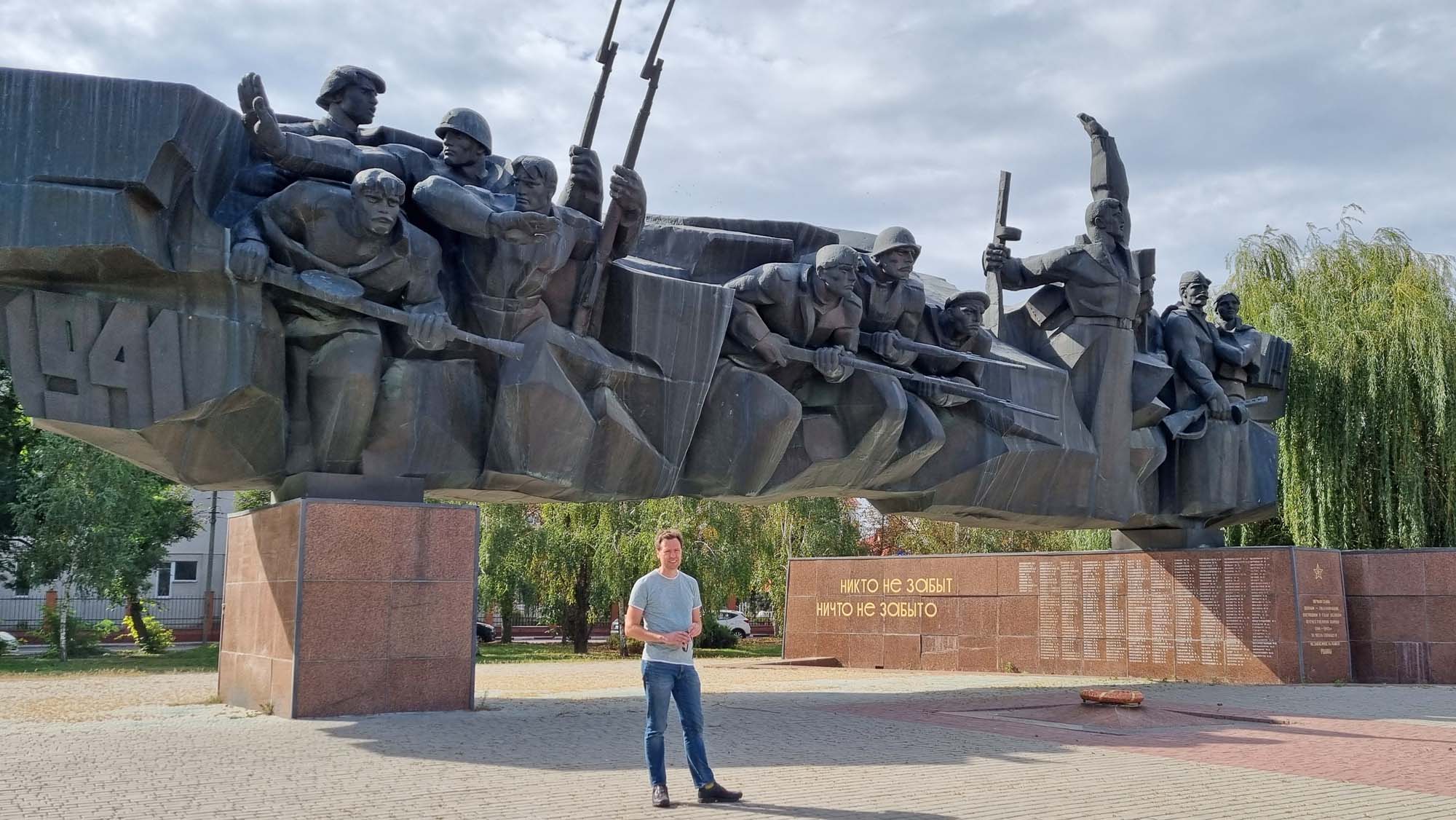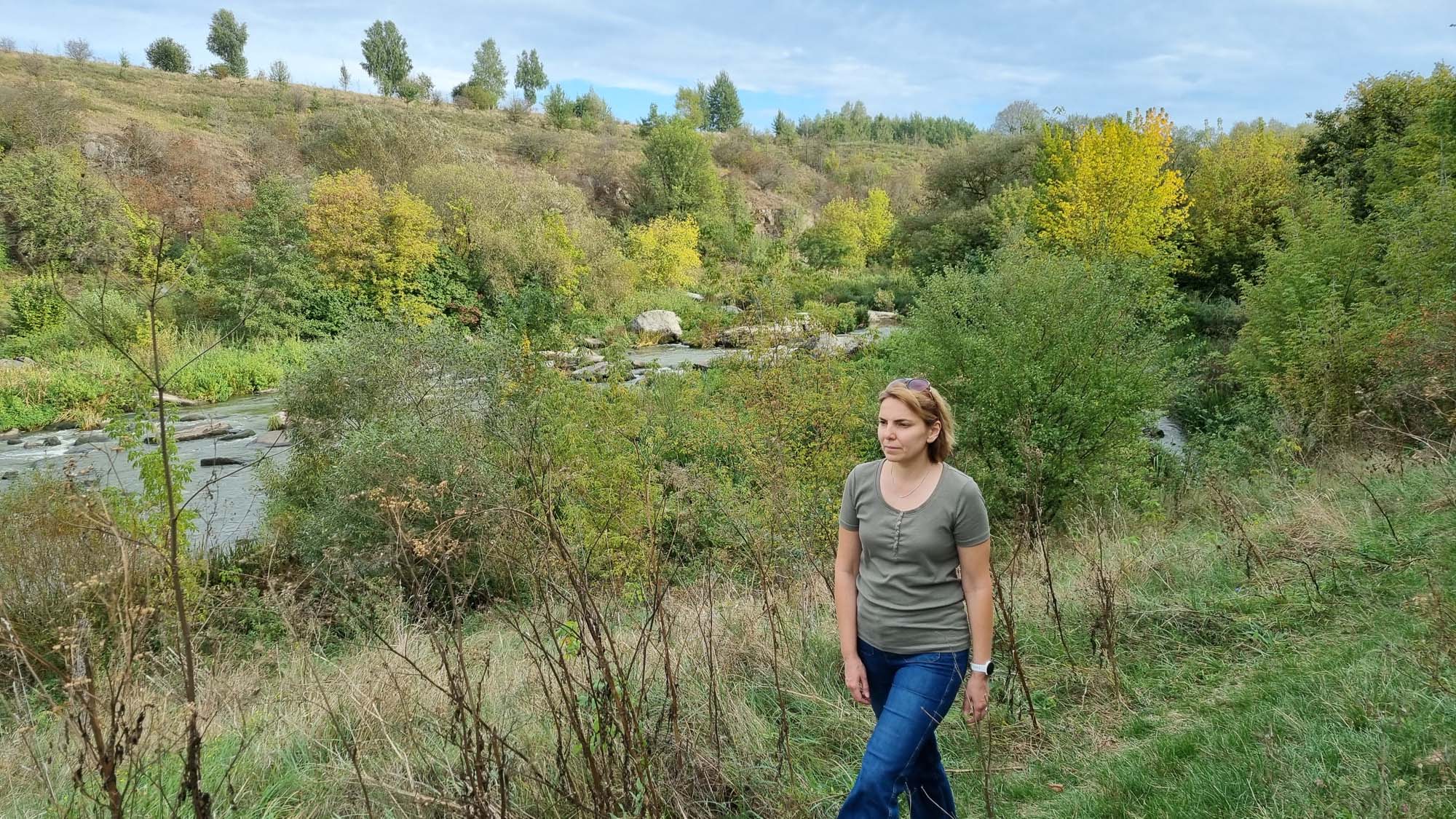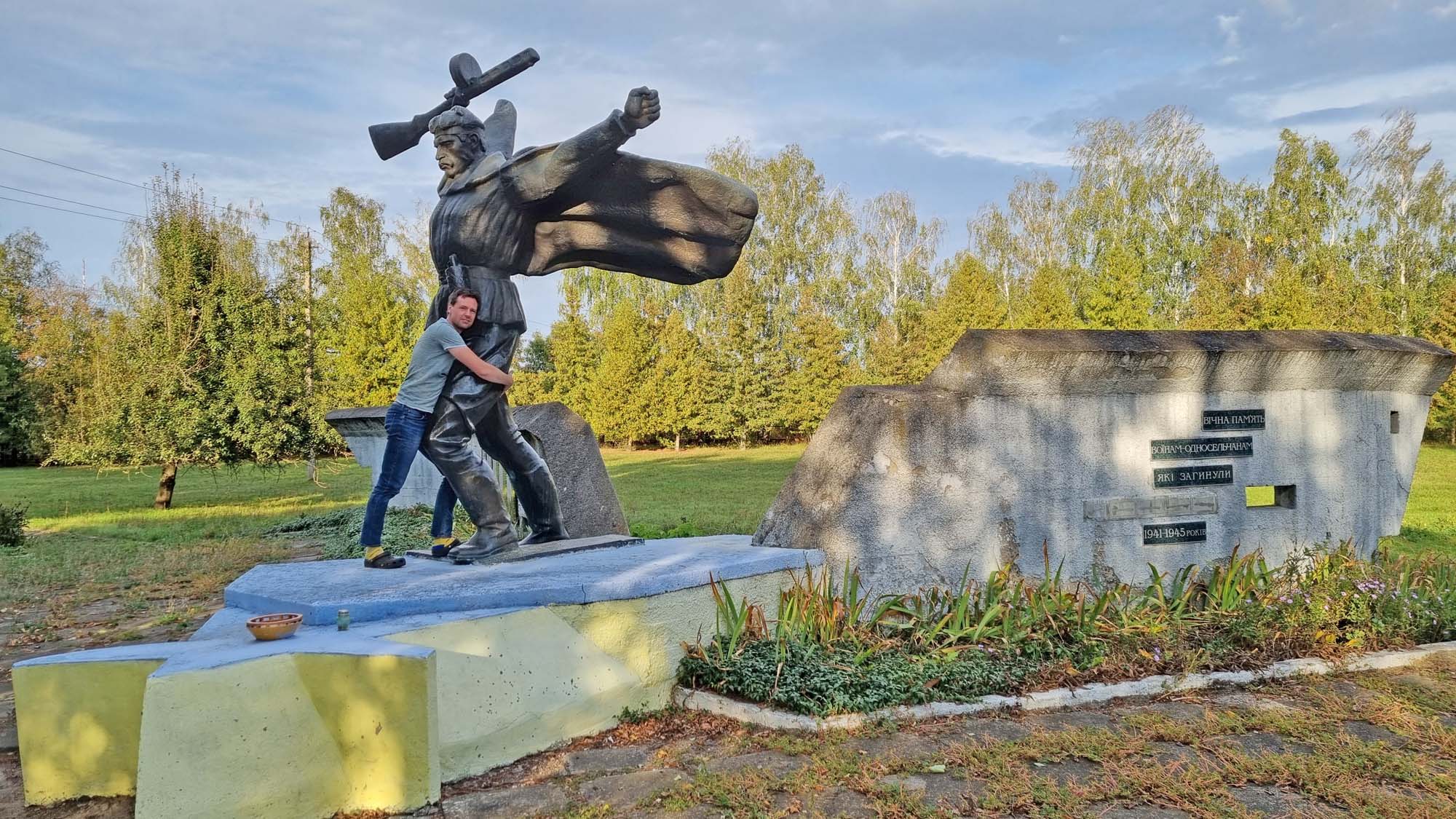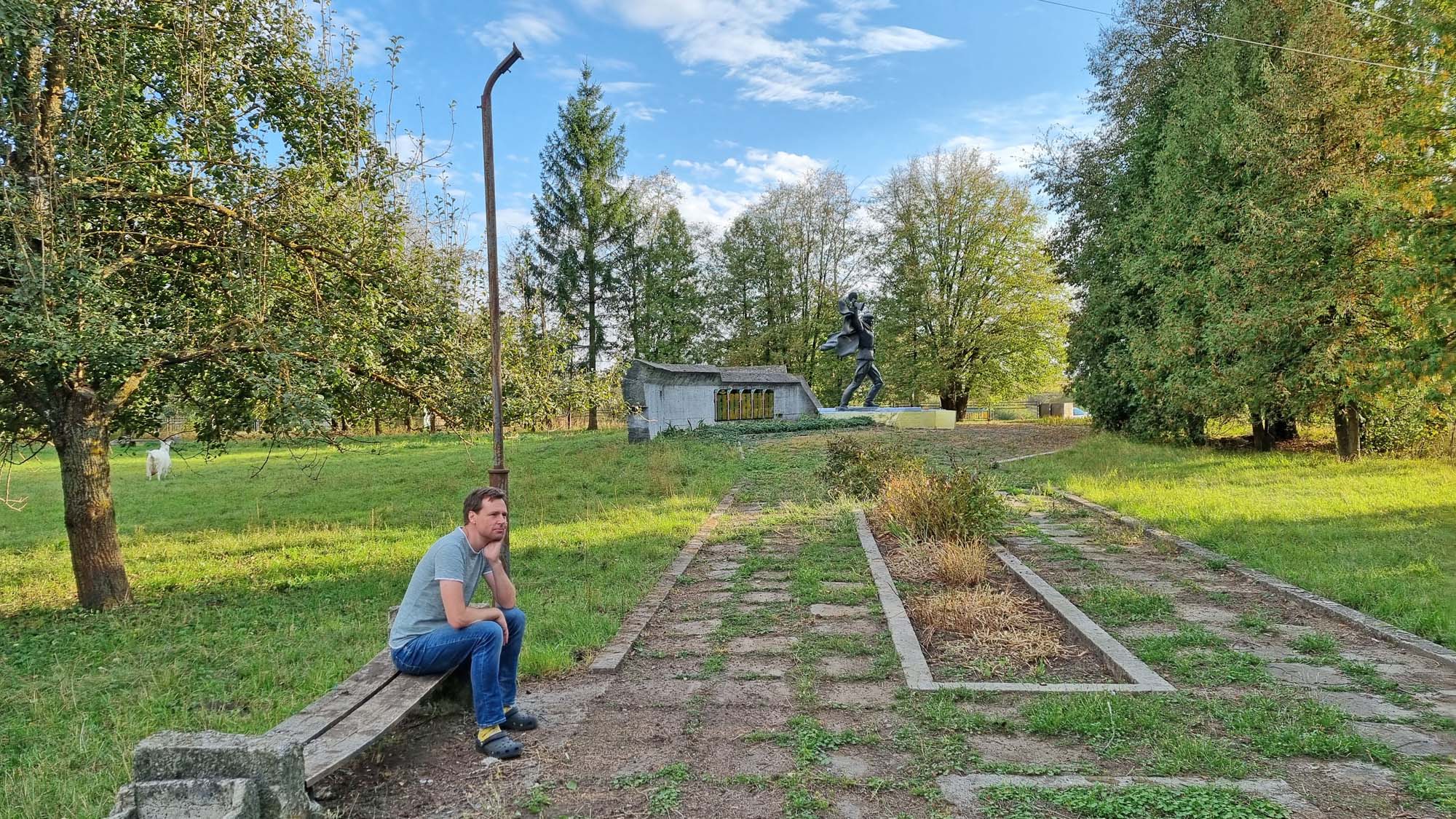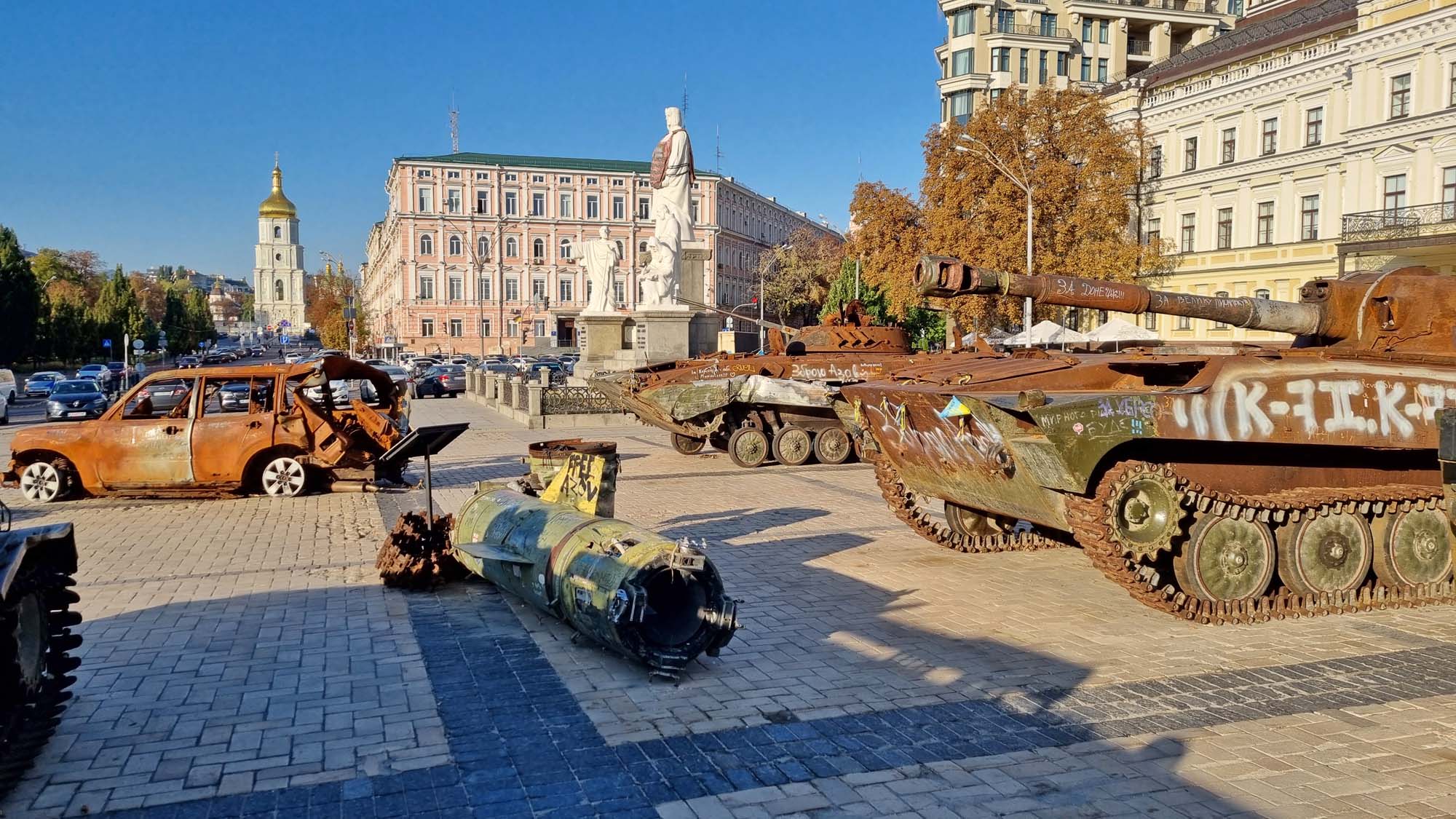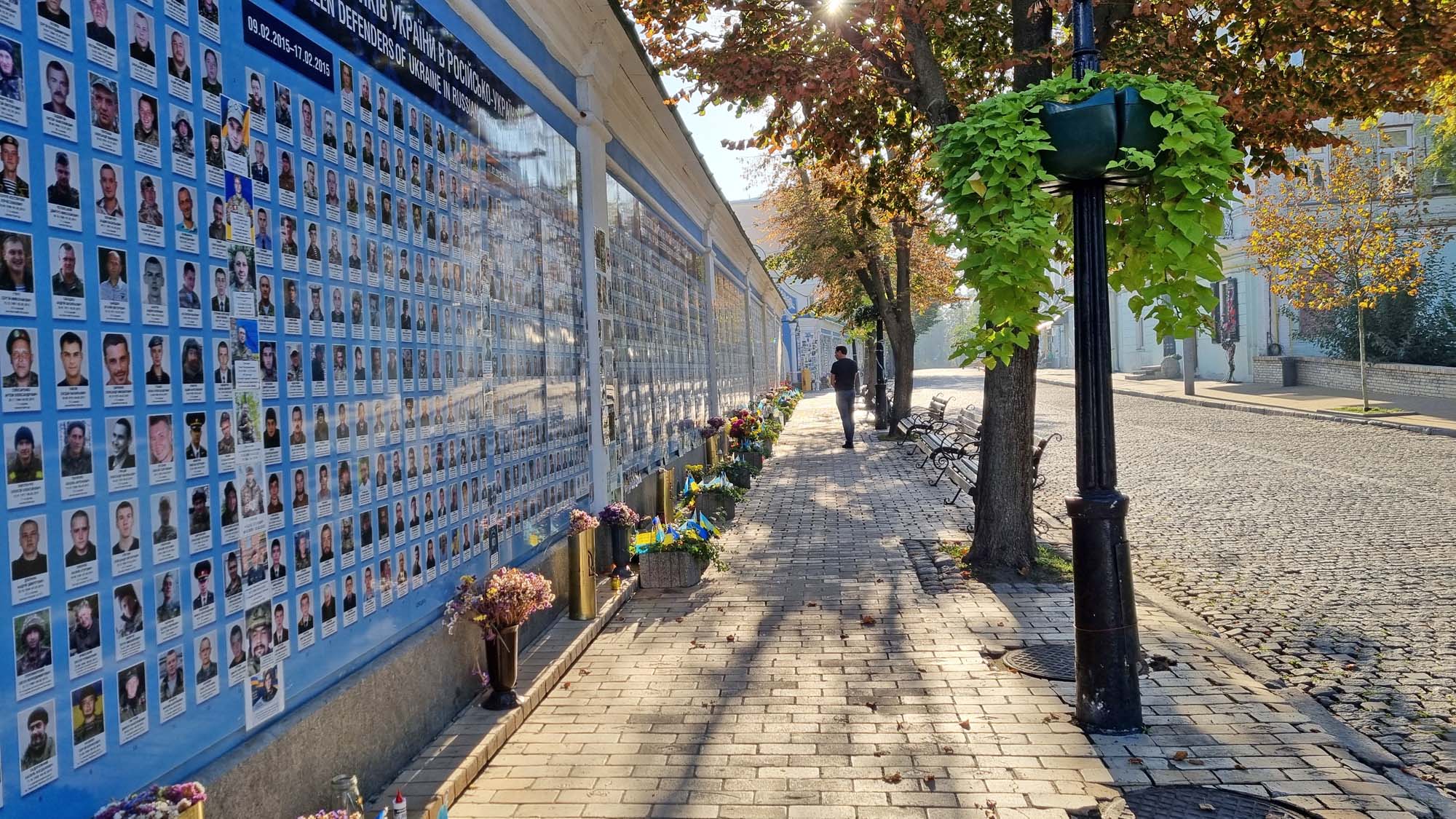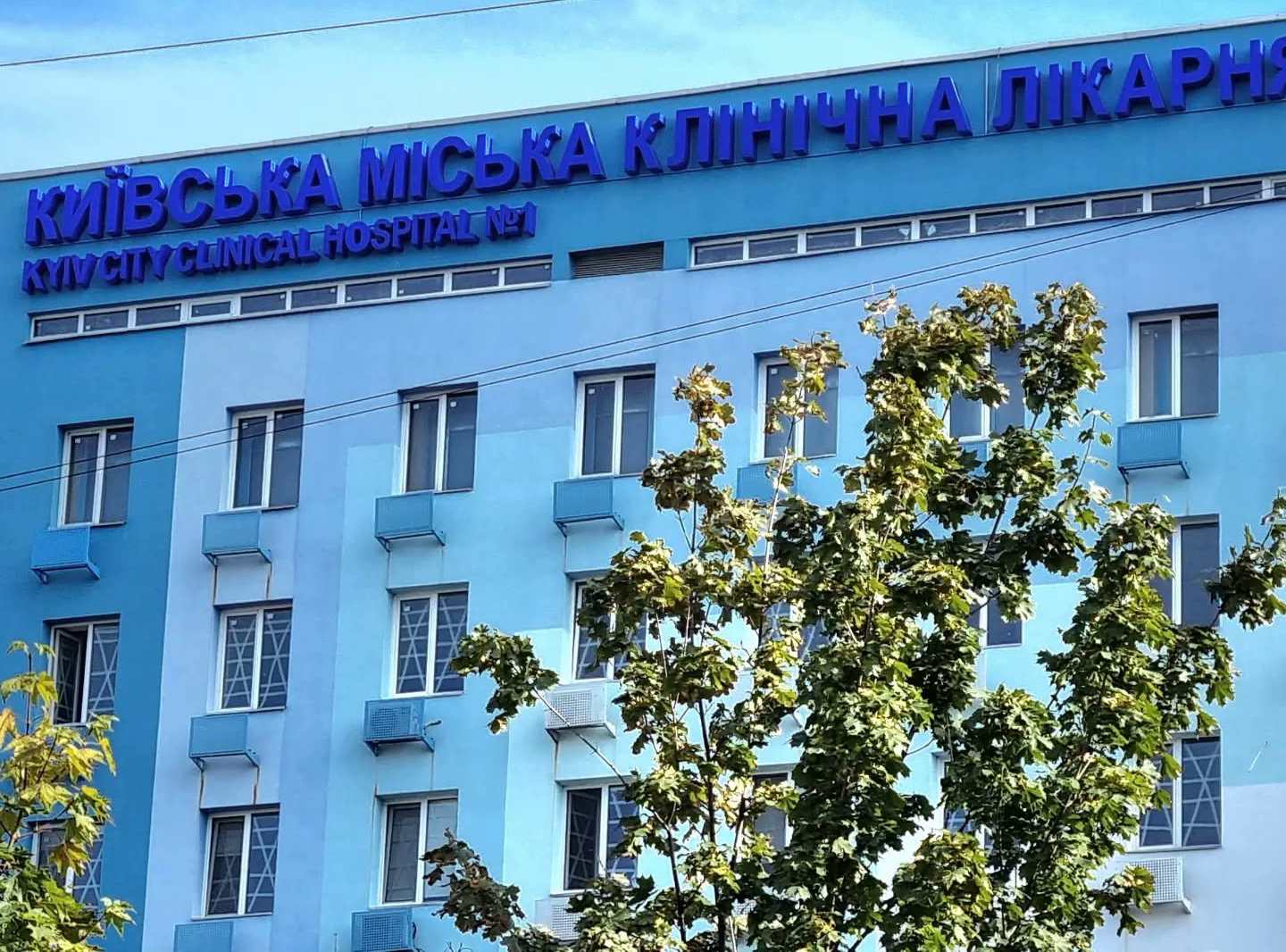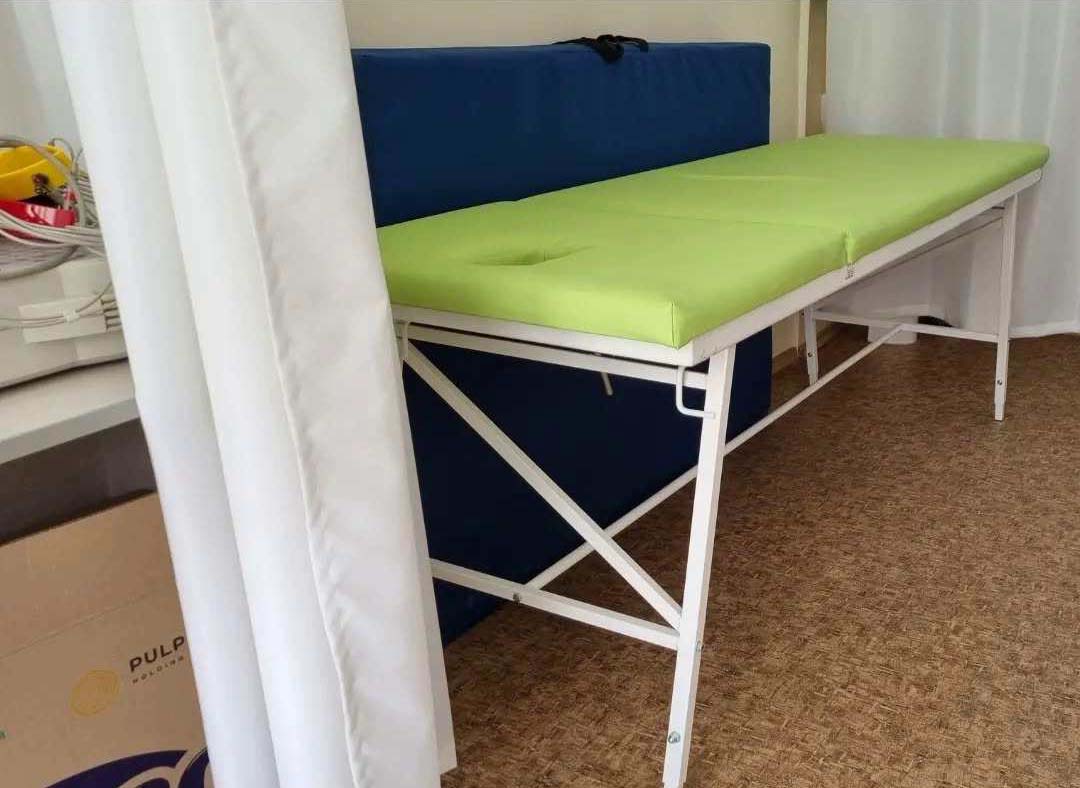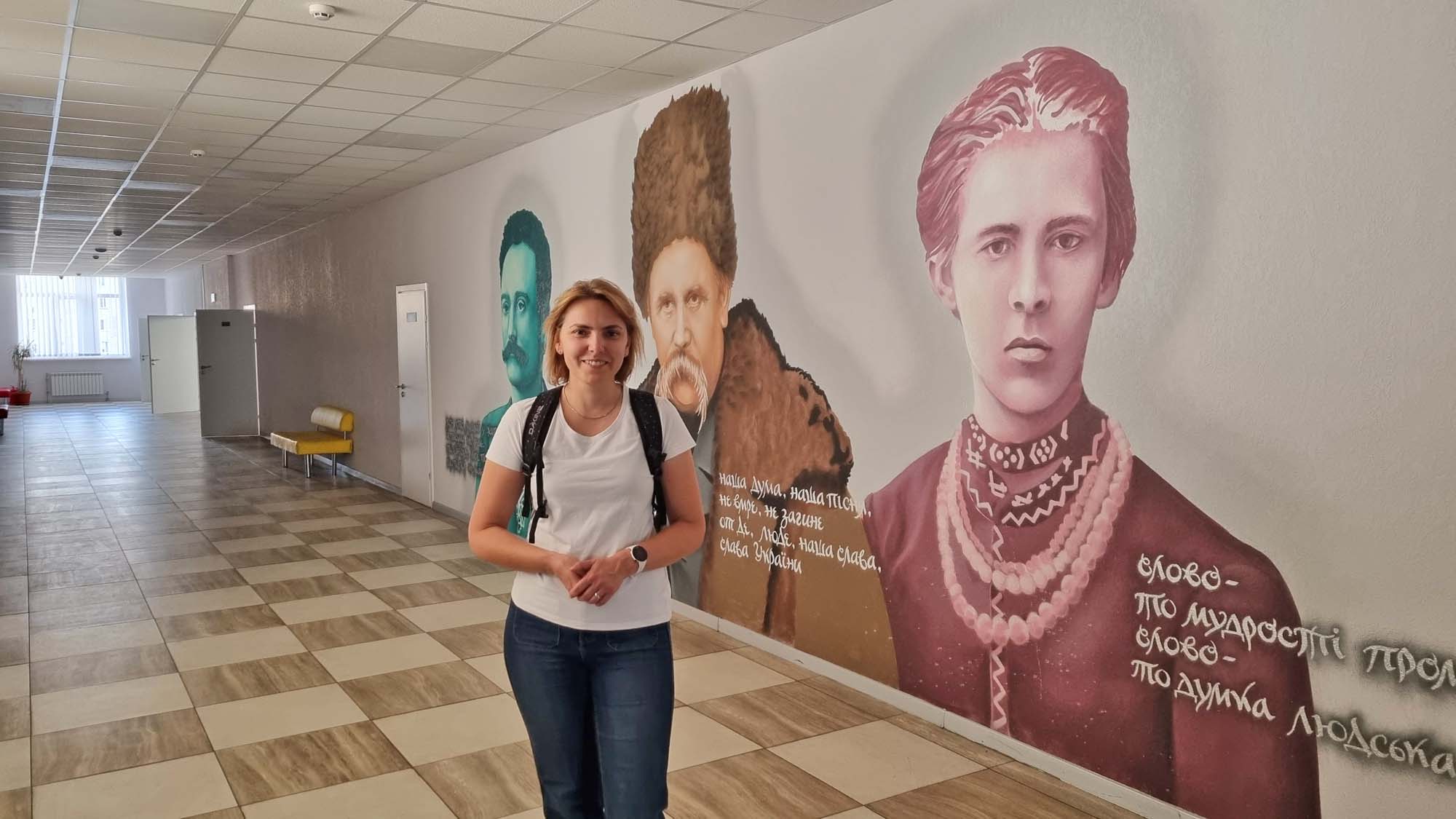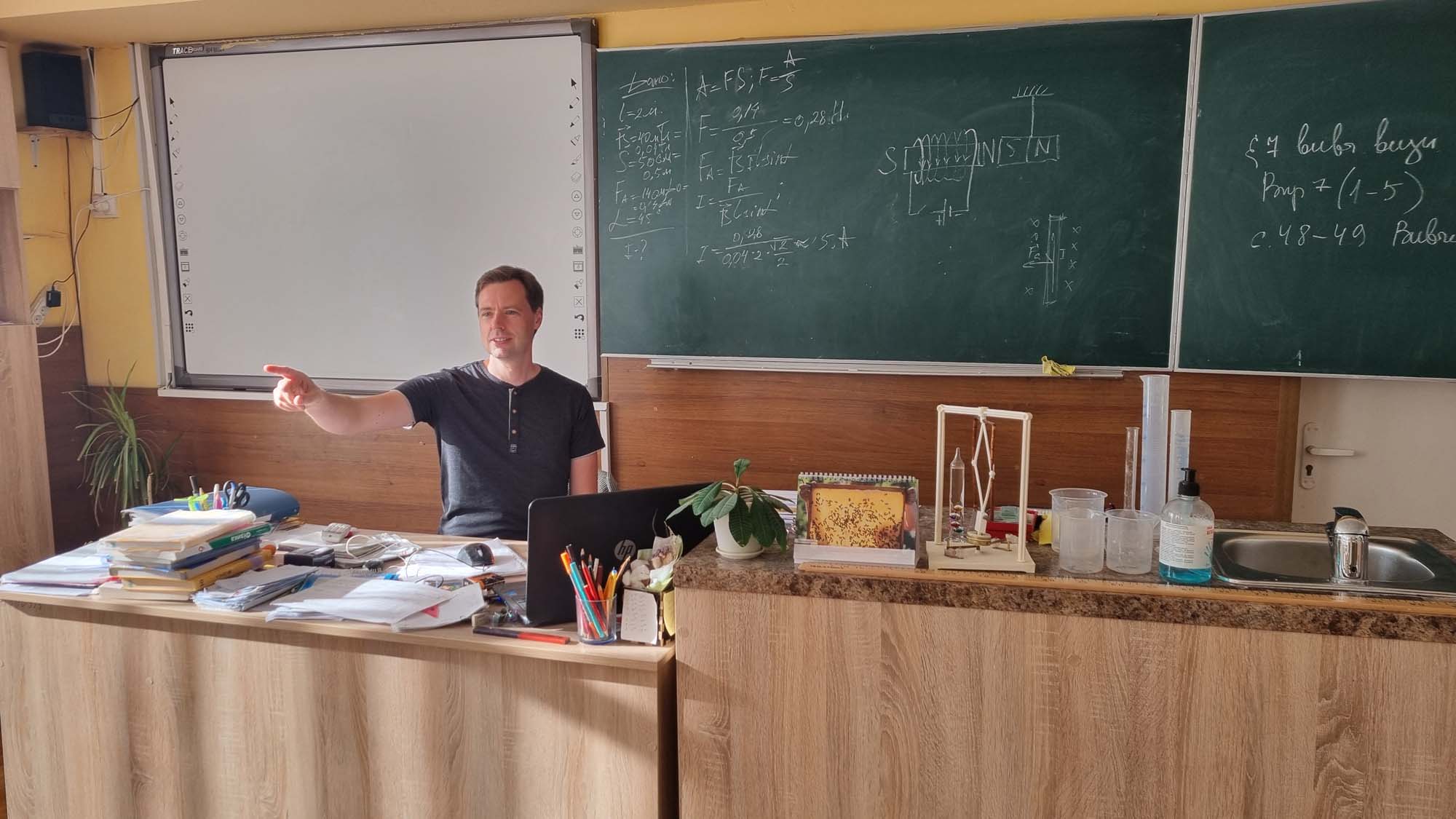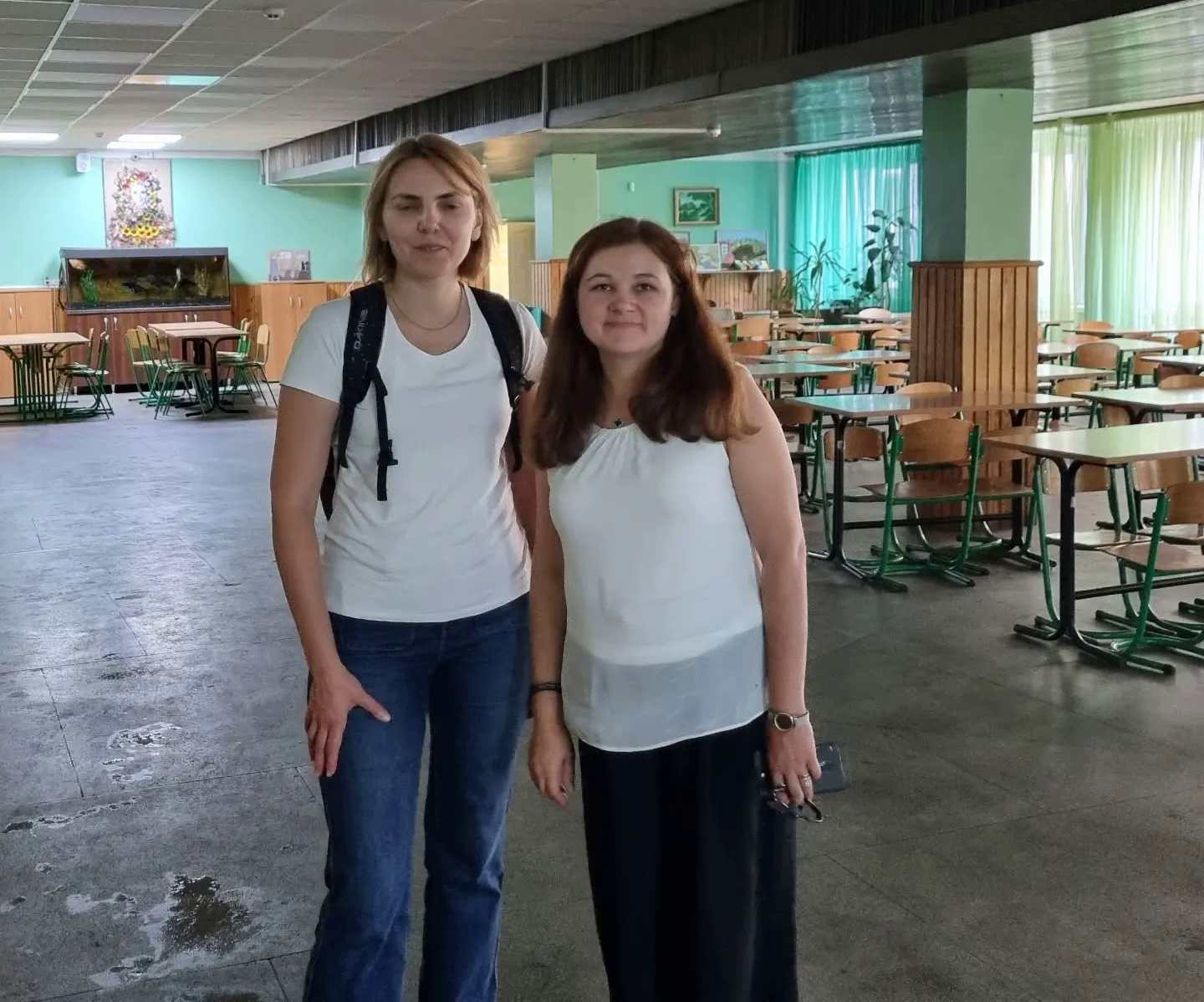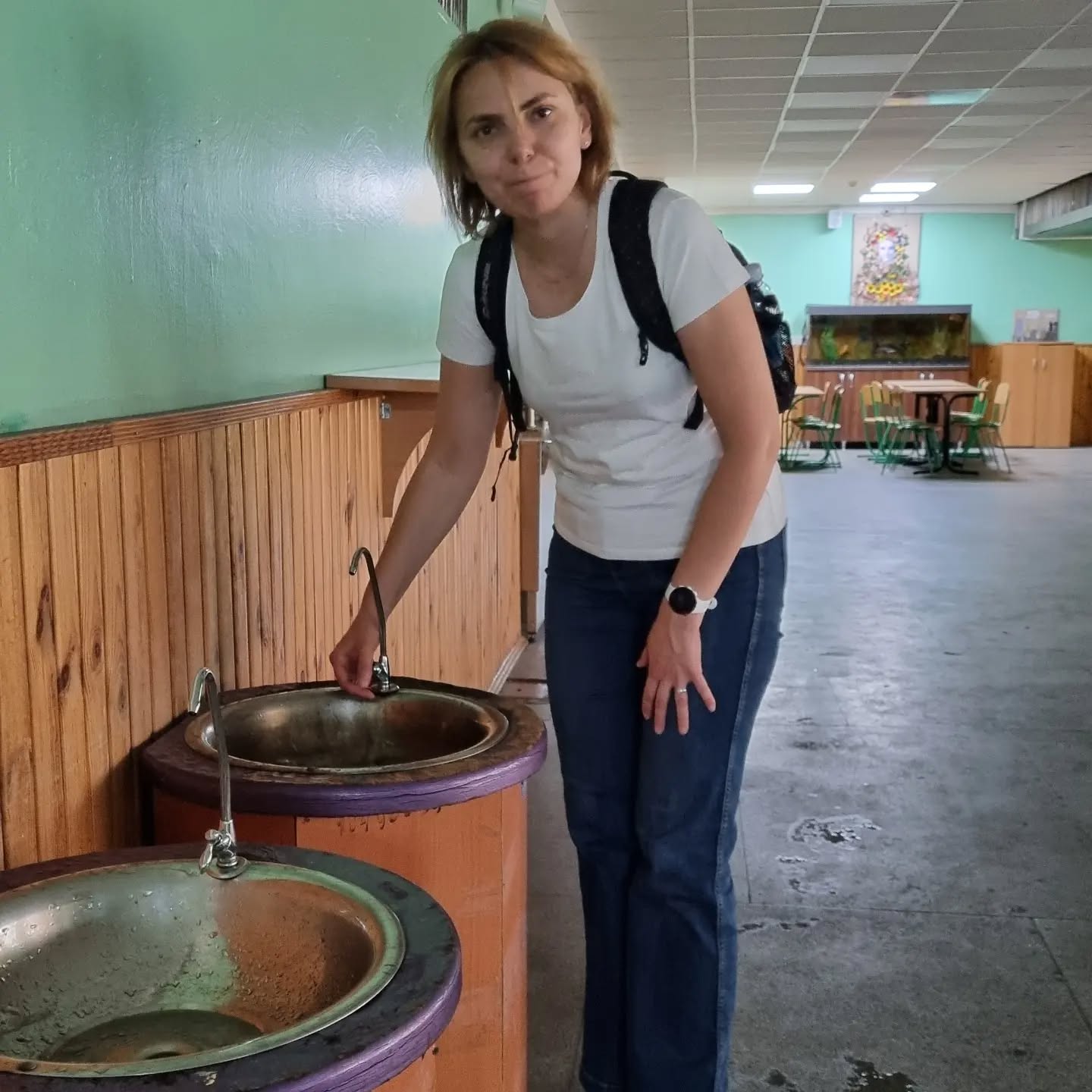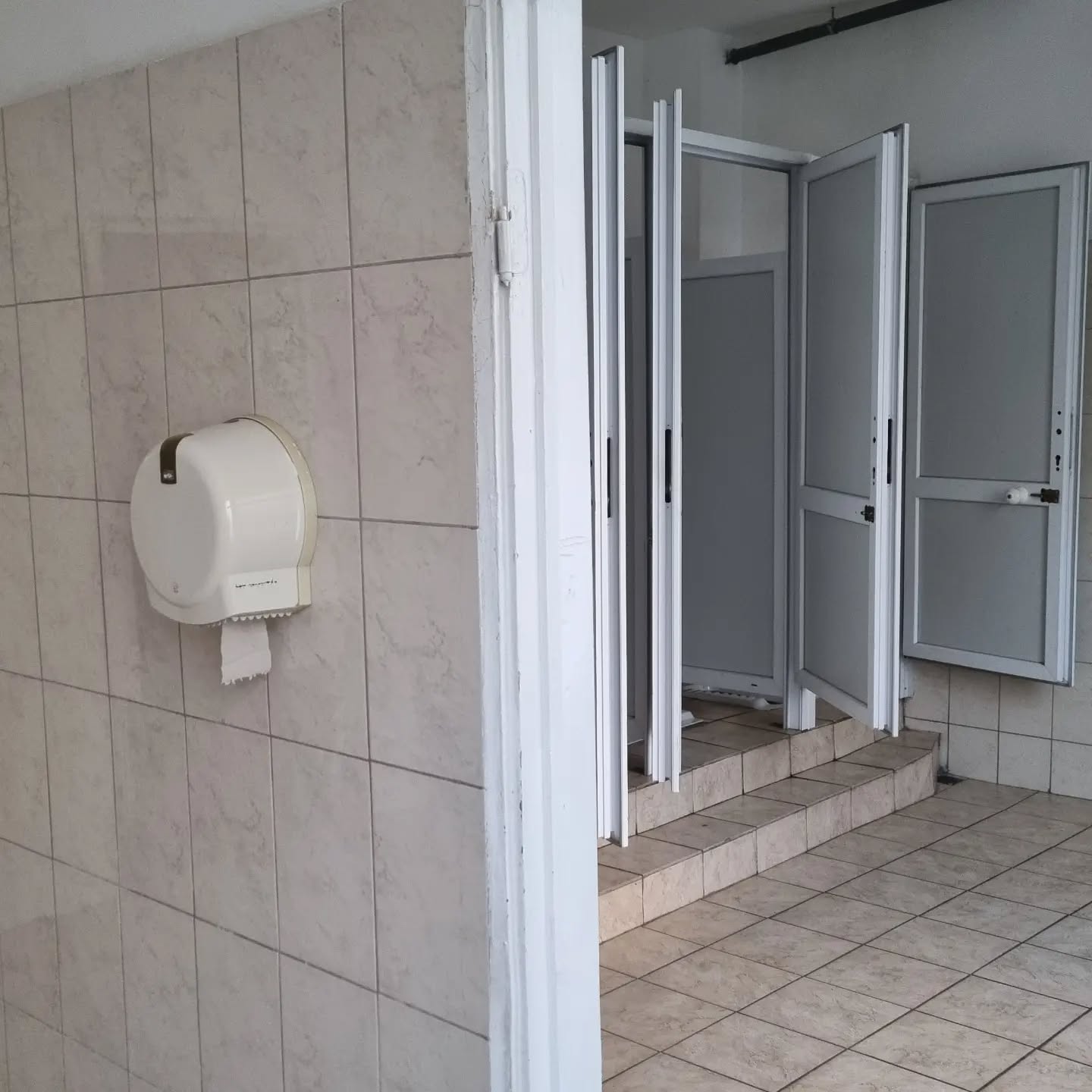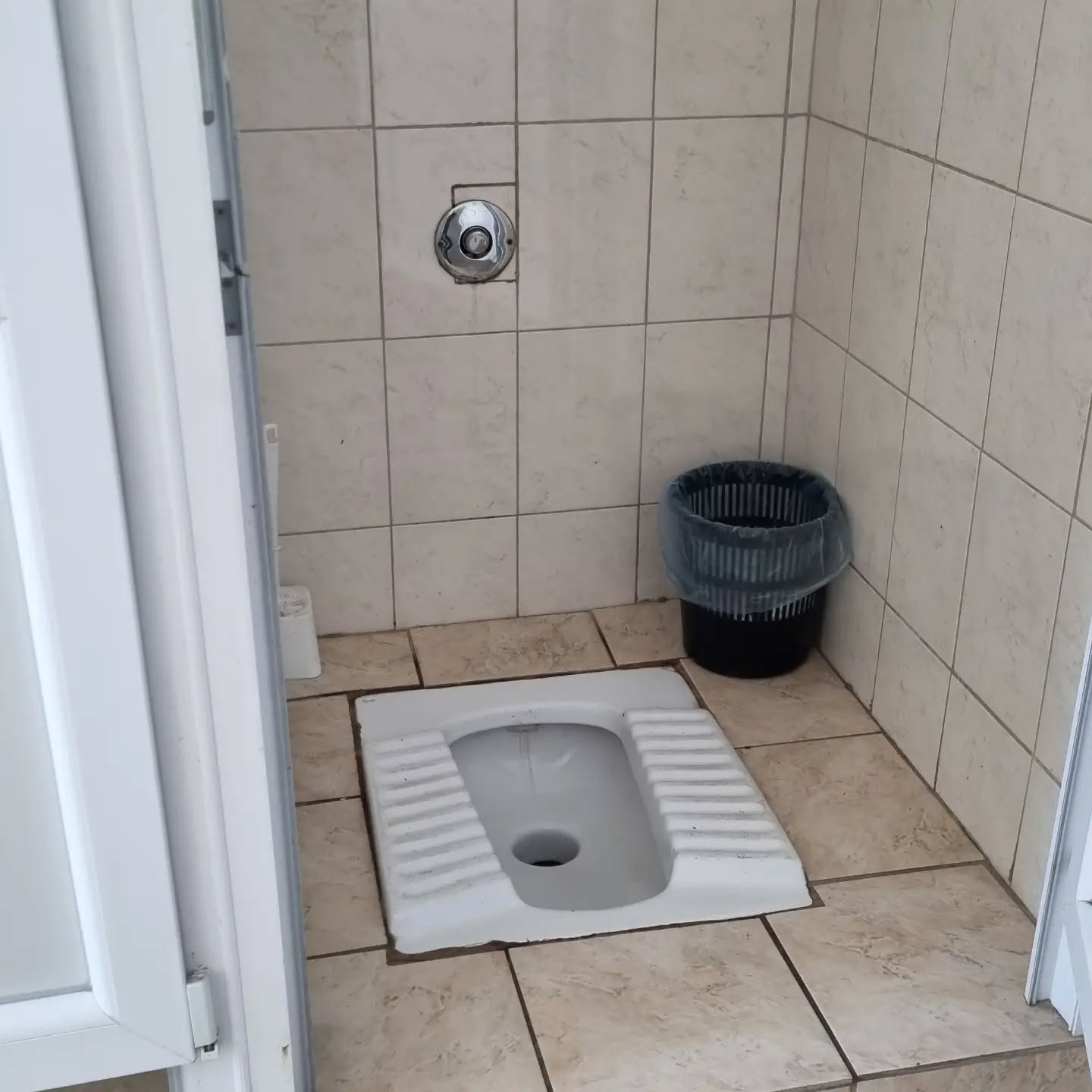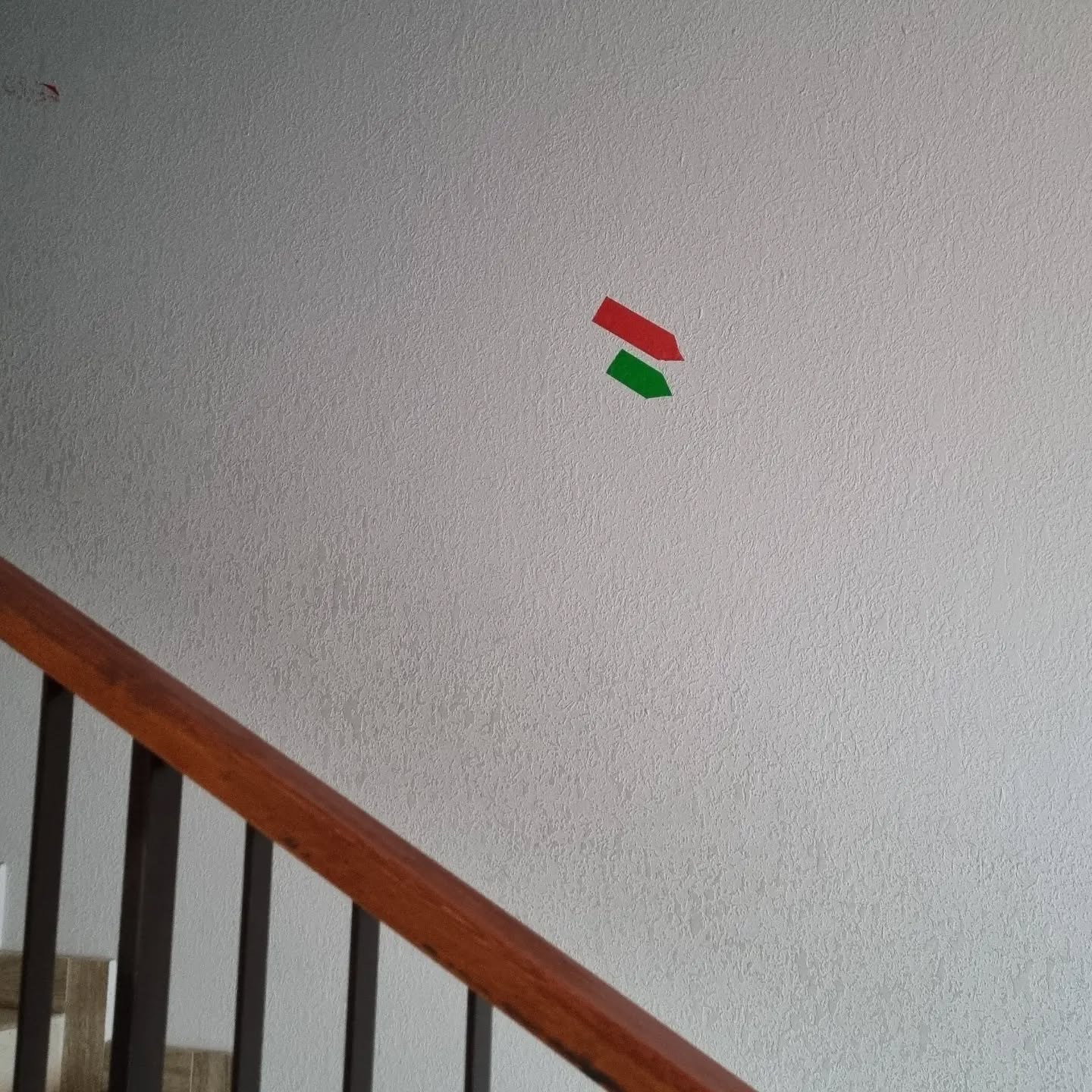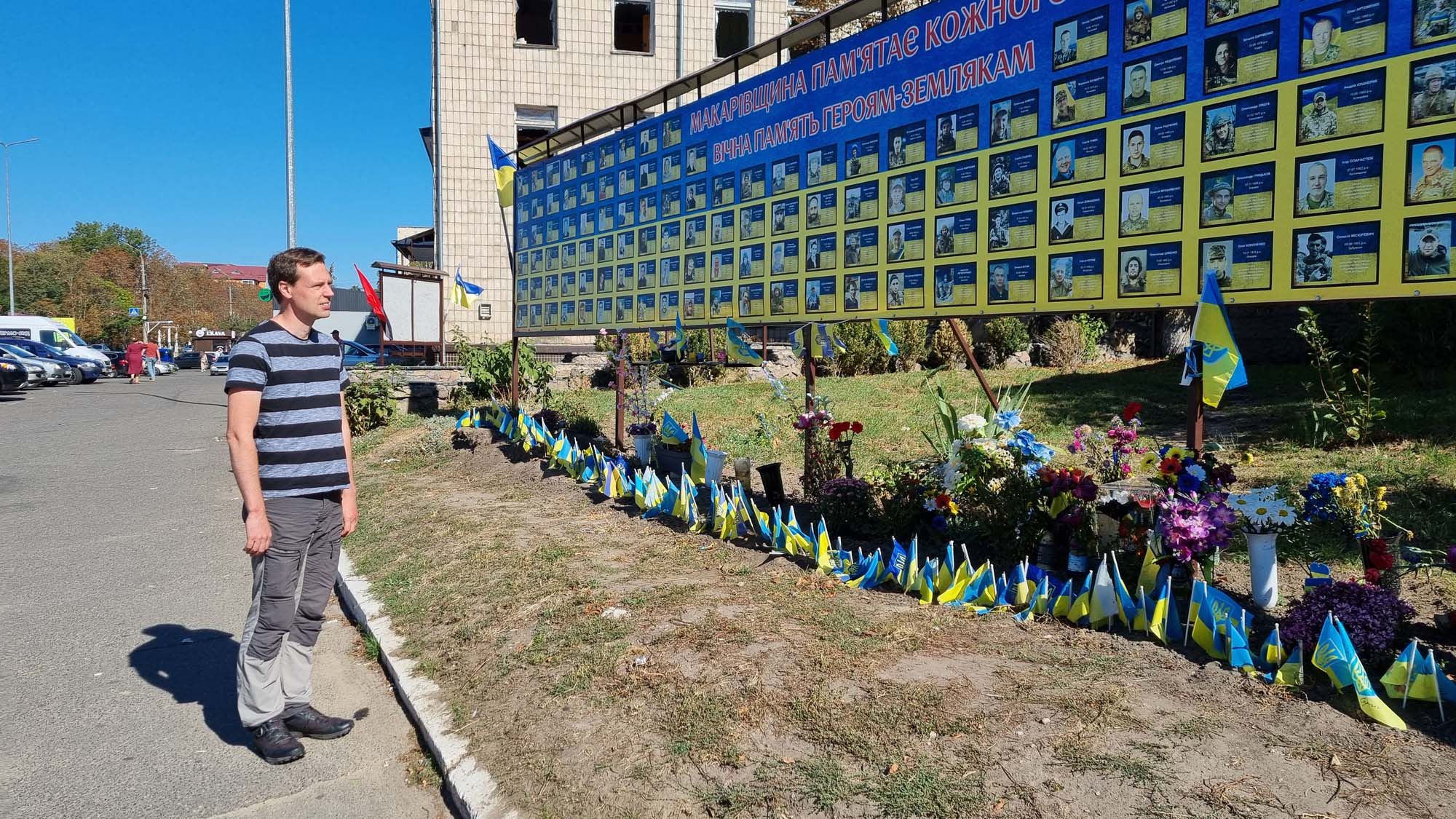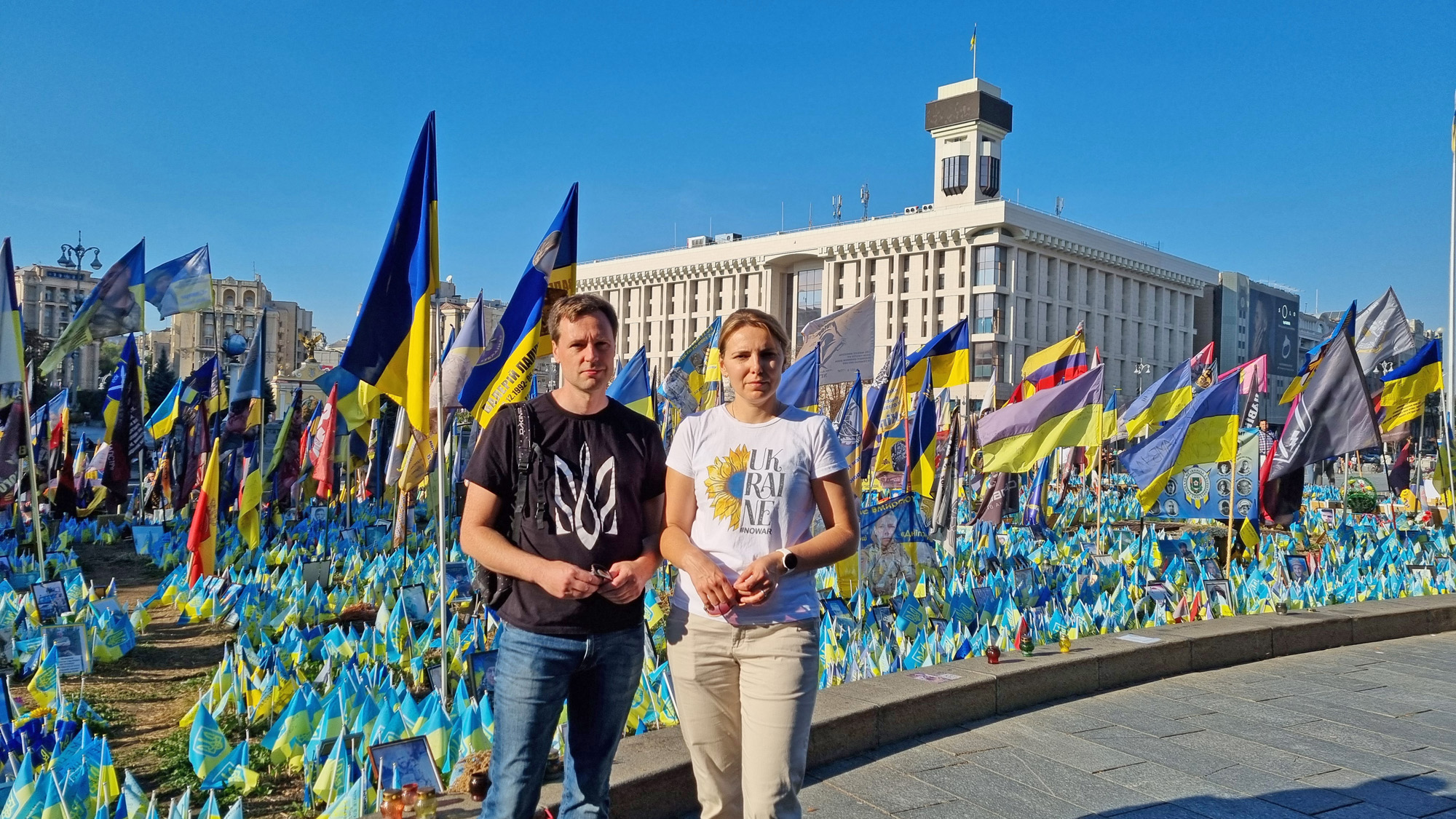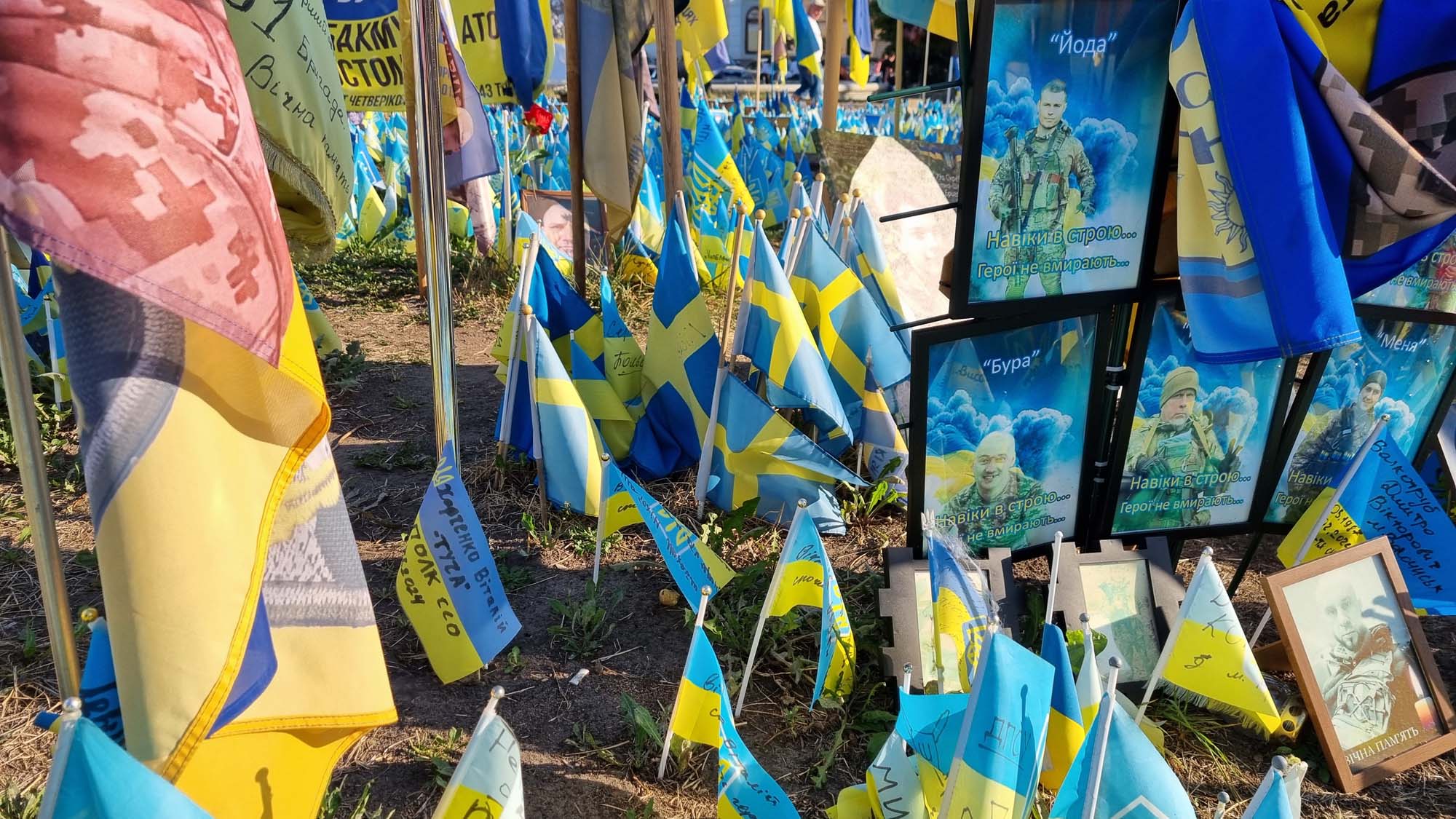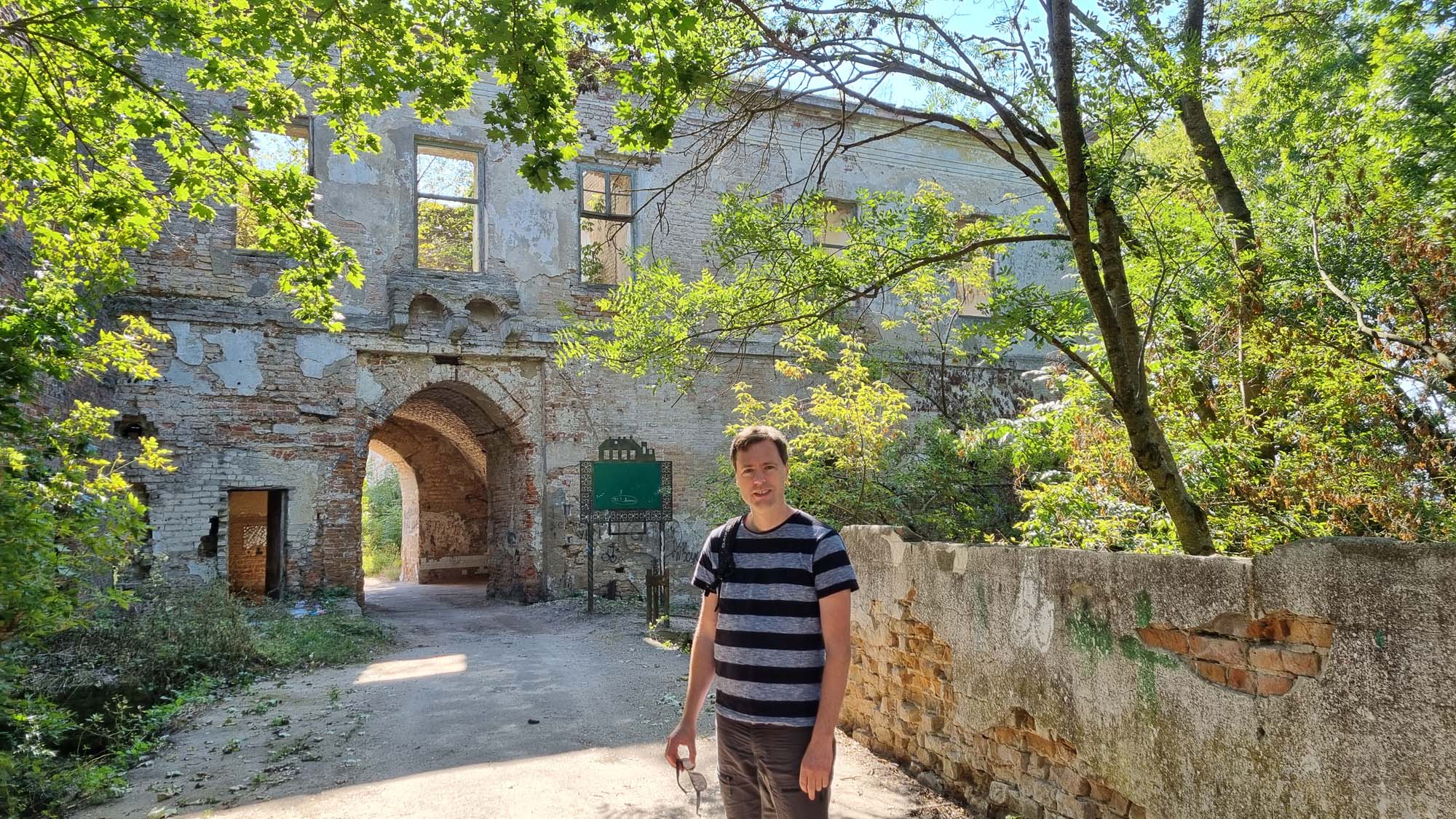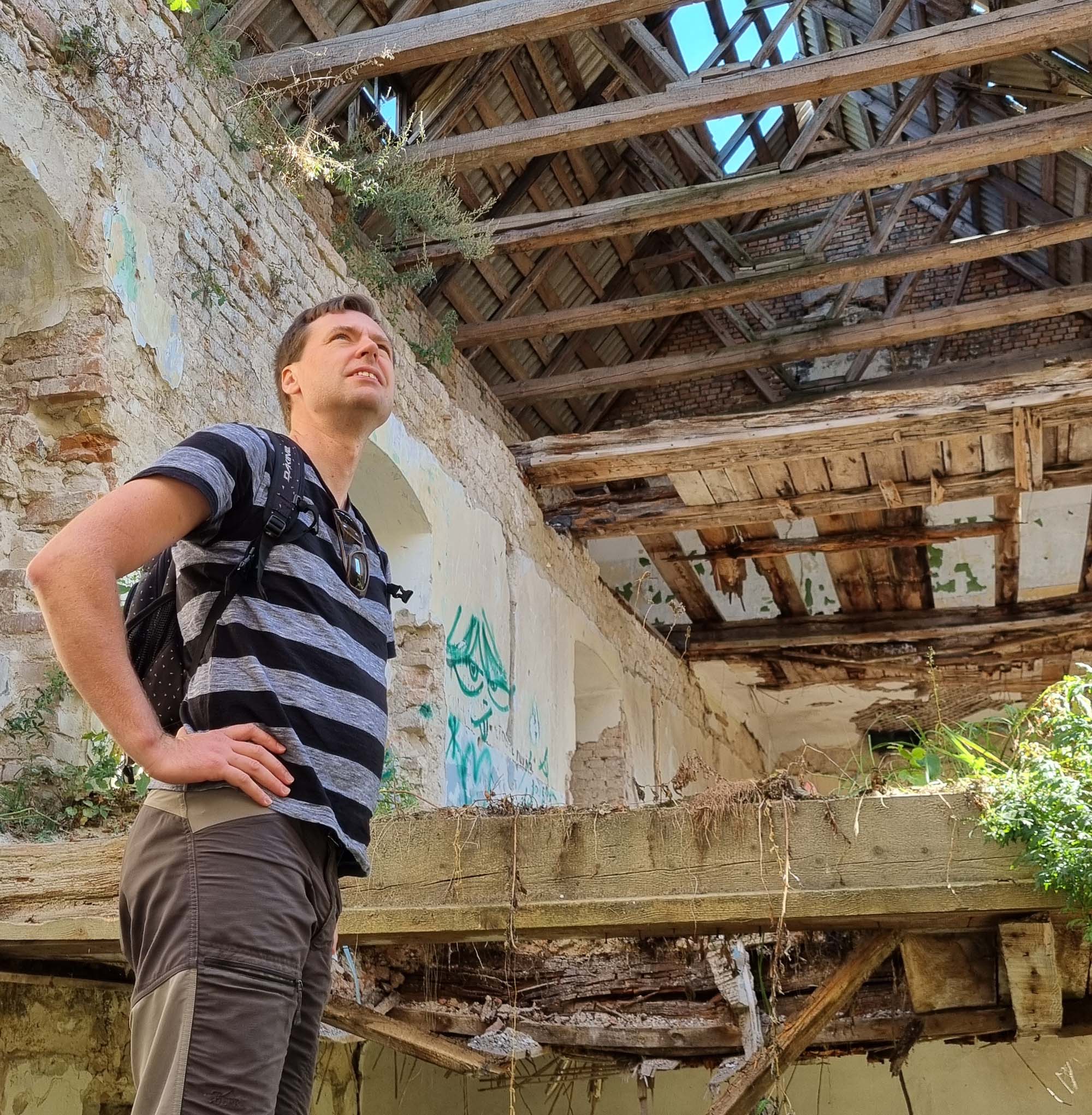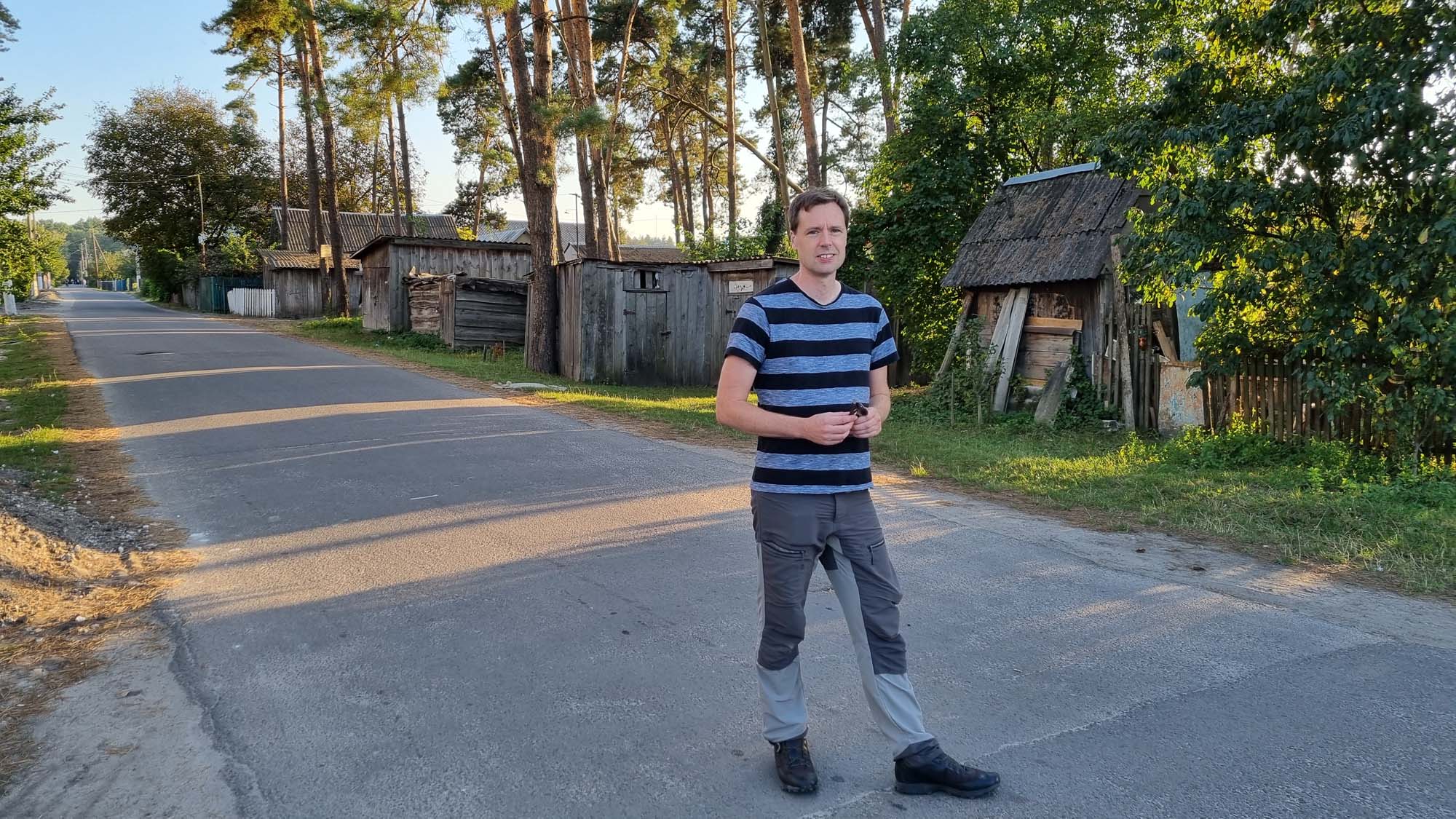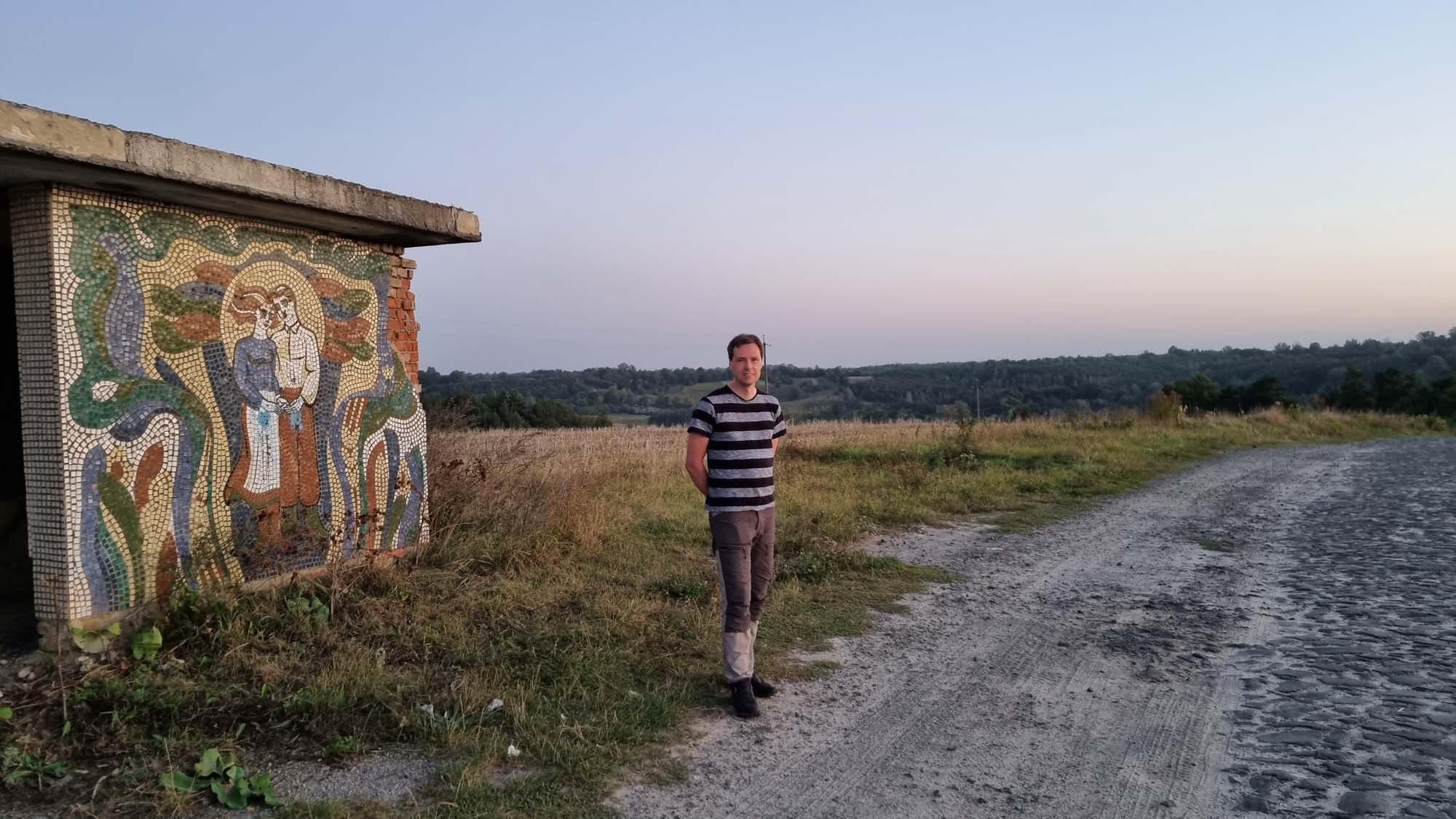Yesterday, we received a very exciting assignment. We were to drive to a military facility and deliver stoves and pallets. The EU pallets are used for various purposes, including as flooring in tents and bunkers, with carpets laid over them. We drove through a training area with burning tires, trenches, obstacle courses, an area for urban combat training, and much more. Everywhere, there were soldiers training and the sound of gunfire echoed. We passed by a group that might have been returning to their tents after training. They looked tired and determined. Some of them were women. Further ahead, we reached the area where they live. It almost looked like an Eastern European campsite—tents with cars parked wherever possible, clothes hanging to dry, and some tables and chairs. We continued driving and passed an area likely used to acclimate soldiers to fighting with or against tanks. However, this area had sandy soil, so it did not look as dreadful as Donbas.
Soldiers helped us unload, making the process incredibly fast. Then, I told the major how fascinating it was to see this area and managed to get myself a little extra tour. The military had actually ordered us to leave as quickly as possible since they had been bombed the day before and feared a follow-up attack. We got a look inside a bunker, a logistics tent, and a tent where the staff managed their planning—almost like an office.
Today was the best day of the entire trip. I had previously been assigned the task of arranging a delivery to the women who had set up a retirement home. Since I am not only here to deliver supplies but also to learn more about life here—and life during wartime—I sent strong signals that the women picked up on. So, we started by attending a concert for the elderly, and I could imagine that it was a type of performance that might have taken place in a Soviet-era community center. Then, we participated in the food distribution. The food is delivered warm by World Central Kitchen, a nonprofit organization. Today, it was a type of large meatball made with ground meat, eggs, and rice, served with boiled buckwheat and a banana for dessert. There were some portions left over. My colleague did not want to take food from the refugees, but I was eager to taste it, and it was undoubtedly delicious. Some vegetables would have been nice, but the residents keep their own food supplies in their rooms to supplement the meals.
Then it was time to leave. My colleague is usually the talkative one, but now I was the one chatting away while he made several attempts to stand up from his chair. Eventually, my delaying tactics worked. A 93-year-old woman had fallen a week ago and fractured her arm. After the hospital visit, it was determined that she needed more care, so she was moved to a private care facility costing 2200 SEK per month. The average pension is 1500 SEK. However, she was unhappy in the new home and wanted to return to the women, and we were asked if we wanted to come along. I said YES. My colleague said NO. Since I had mentally prepared for this, I quickly suggested that my colleague take the car to the warehouse while I stayed behind.
The private care facility was in a nice, modern house with high fences surrounding it. To enter or exit through the gate, someone had to press a button at the reception. There was a beautiful garden with three cats. The reception was tiled, with a fine visitor’s sofa. But then, the conditions changed rapidly. The elderly lay in both rooms and corridors, with minimal space for personal belongings. The 93-year-old was impressively alert for her age and was annoyed by the mentally ill patients pacing back and forth or making various noises. However, the women’s retirement home lacked the resources to care for a 93-year-old woman with a broken arm. This issue was solved when the women arranged for a caregiver who, for 1500 SEK per month, would help her with hygiene, grocery shopping, and similar needs. So overall, she was moving to a better place for a lower cost. Rent at the women’s home is 40 SEK (which goes to the house owner), and beyond that, she only needed money for medicine, breakfast, and supplements for the provided lunch and dinner.
I spent seven hours with the women, and we delved deep into their lives, opinions, and assessments of Ukraine. I had mostly spoken with men aged 50–60 before, which had given me a rather bleak impression. But now, the age range was 22–38, and they saw gradual improvements. They told me that everyday corruption had significantly decreased. The most common examples of everyday corruption used to be bribing the police when caught speeding and giving money under the table to hospital doctors. But none of them had paid bribes for at least the past five years. If they received fines or other penalties, they had to be paid at the bank. Bribing the police was something they wouldn’t dare try—it was illegal, and there was a risk that the situation could become even worse. They also mentioned that their parents were used to giving money under the table, but now they sometimes faced the embarrassment of having their bribes refused.
Schools are improving. Children with different needs (ADHD, autism) are integrated into regular classrooms as much as possible. Children are generally not afraid of their teachers and could cooperate with them in a Western manner. Some old-fashioned authoritarian teachers remained, but a sort of compromise existed—these teachers knew about modern educational approaches, and parents taught their children that they would encounter such people in life and must find ways to work with them.
The people I spoke with belonged to Ukraine’s middle class in a major city, and while change varied in speed, they believed progress was happening in the villages as well. Some of them had grown up in smaller communities. In the cities, at least, there are extracurricular activities for children. The problem was that these usually cost money, which excluded the poor. All of them viewed Zelenskyy very positively and were annoyed by those who complained about everything he hadn’t done. They felt that people didn’t understand that Zelenskyy couldn’t decide everything on his own—there was a large number of "old political elites" obstructing progress. However, they did not want Zelenskyy to have more power. They did not want a “Putin” in Ukraine who could do whatever he wanted.
One concern was taxes. Roads and buildings are often in poor condition. One had to be insightful and a certain type of person to see the improvements and understand that change takes time—especially when so much money had to be spent on the war. They also felt it was unfair that low-wage earners making the minimum salary of 1800–2500 SEK per month still had to pay 30% in taxes. In general, the willingness to pay taxes was very low, and many tried to avoid it.
We had a long and interesting discussion about gender equality. It started when a delivery of furniture arrived, and the girls immediately stepped aside while several men, including myself, carried everything inside. "Of course, we could carry things – but we have men for that," was their response when I commented on how different this was from Sweden. It was fascinating to hear young women reason so differently than Swedes.
I occasionally asked slightly provocative questions to see if they truly believed what they were saying. In summary, both men and women should help at home, but with different tasks. Some things are done by men, others by women. And they were completely fine with the fact that, as women, they would have less "free time" than men—because men are expected to bring in more money for the household.
When I explained how things work in Sweden, they could see some advantages but considered them low-priority issues. The only aspect they found interesting to adopt was the Swedish approach that both boys and girls should learn the same basic life skills—how to cook, do laundry, do carpentry, sew, and so on.
In the evening, I rejoined my colleagues for a farewell dinner. Before the westbound train departed, I went into a store to buy some food for the journey. There, I was confronted by a military man in his 50s or 60s who, speaking 99% Ukrainian, talked to me for at least five minutes. He was so grateful for the foreign aid and for my presence that tears began to flow. From what I understood, he had fought in Donbas for three months, often without food or water. He had just arrived by train for a few days of leave. He was generally optimistic but carried visible sorrow and pain. When he mentioned Trump, I saw anger. I think he was trying to say that people are dying for freedom and democracy and that Trump had blood on his hands. There were many firm handshakes and hugs. It was the most overwhelming experience I’ve had hera, and it felt almost wrong to board a train away from the battle that will determine what kind of future my daughter Sonia will have.
